
Geography of Bliss
by
Eric Weiner
Published 1 Jan 2008
“Bhutan is the first nation to officially say ‘No’ and the first to challenge the idea that money alone is absolutely good,” writes Jeff Johnson in the compendium Gross National Happiness and Development. John Ralston Saul, the Canadian philosopher, describes Gross National Happiness as a brilliant trick. “What it does is go ‘Snap!’ and changes the discourse. Suddenly you’re talking about something else. You’re not trying to amend the old discourse—you’re introducing a new discourse from the core; that’s what’s so important and clever about GNH.” Drukpa Kunley, the Divine Madman and trickster extraordinaire, would have loved Gross National Happiness. It is so absurd, so outlandish, that it shakes us out of our stupor.
…
This is the problem—one of many—with Gross National Happiness. It is a fuzzy concept, easily co-opted by anyone with a cause—a good cause, perhaps, but still a cause. Once that happens, Gross National Happiness becomes just another slogan and not a new economic template, not a new way to live our lives. The film is over, and everyone breaks for an intermission. I tail the home minister, who has made a beeline for the buffet table outside. He is balancing a plate of momos in one hand and a glass of apple juice in another when I make my move. “What does Nagasaki have to do with Gross National Happiness?” I ask. Surprise flashes across his face.
…
In 2002, his Strategy Unit convened a “life-satisfaction” seminar. Some (not Blair) called this group the Department of Happiness. The group published an analytical paper suggesting—just suggesting, mind you—ways in which government might boost national happiness. Among the proposals: a happiness index, akin to Bhutan’s Gross National Happiness; teaching “happiness skills” in schools; encouraging “a more leisured work-life balance”; and imposing higher taxes on the wealthy. It was the last suggestion, as you can imagine, that got the most attention. The notion of higher taxes as a path to happiness was first proposed by British economist Richard Layard.
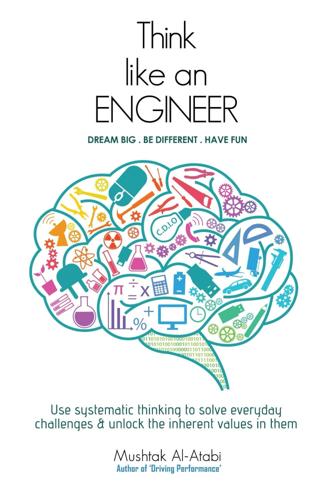
Think Like an Engineer: Use Systematic Thinking to Solve Everyday Challenges & Unlock the Inherent Values in Them
by
Mushtak Al-Atabi
Published 26 Aug 2014
However, the GDP is inadequate to measure the well-being of the nation and a new approach to measure well-being effectively is required.” He said this in his opening remarks before chairing the 2014 Budget Focus Group Meeting on “Developing A Malaysian Happiness Index: Work-Life Balance.” Clearly, academic institutions have a unique opportunity to lead the society in promoting holistic human development, which seems to be a pressing need in this complex and rapidly changing world we are living in. Domains of the Gross National Happiness Index GNHI 1 Psychological well-being 2 Health 3 Time use 4 Education 5 Cultural diversity and resilience 6 Good Governance 7 Community vitality 8 Ecological diversity and resilience 9 Living standards GIHI Emotional well-being Health and Safety Time use Learning and Staff Development Cultural diversity and resilience Good Governance Community vitality Sustainability Living standards Outlining the different indicators for each domain is beyond the scope of this chapter and if you are interested in getting more information on our experience measuring the Happiness Index and/or collaborating in this effort, please get in touch.
…
I experience that first hand when I interview academics applying for jobs and I see their eyes lit the moment I explained Mission Zero. 14.4 Engineering a Culture Change: Happiness Index The Kingdom of Bhutan is a small country in the Himalayas. While nations traditionally measure their performance using the Gross Domestic Product (GDP), former king of Bhutan, King Jigme Singye Wangchuck wanted for his country to measure the quality of life in more complete terms using what he called the Gross National Happiness (GNH), striking a balance between the spiritual and material needs. Last year, on a planning retreat with the senior management team of our university, we were asked to develop strategies to be implemented to improve the experience of our various stakeholders.
…
Index 5 Whys, 210, 213 awareness, 2, 13, 30, 45-48, 53-54, 58, 63, 151, 180 ABC, 99 abundance, 62, 101 abundant, 13 achievement, 3, 44, 47, 49, 51, 106, 120, 125, 168 ACID, 94 adaptability, 44, 49 adaptable, 23 adaptive, 83 aeronautical, 5 aeroplane, 7-8 Aerospace, 121 aesthetics, 101 affective, 47, 150-151 affordability, 101 affordance, 94, 100,128 Africa, 61 agriculture, 10, 14 Airbus, 6-7 aircrafts, 112 airframe, 7 airline, 8, 79-80, 180, 186 airlines, 111, 180, 186-187 Amazon, 77 analytical, 24 anthropometric, 132 anthropometry, 132-133 AoN, 167 APA, 148 architecture, 37, 94, 97 artefact, 67, 155 auditory, 19 automobile, 221 automotive, 178 avionics, 7 avoidance, 101 Bible, 11 biology, 19-20, 22, 24, 26, 28, 30, 32, 34, 36, 38, 40, 53, 126, 150 biomedical, 5, 15 Biomimicry, 89 Blattaria, 32 Blendtec, 140-141 Blue Ocean Strategy, 78-82, 215 BoM, 98-99, 102 Bozan, Tony 71 brain, 3, 6, 15-16, 19-28, 30-32, 34-36, 38-40, 42, 44-45, 49-50, 53, 67, 71, 89, 140, 143, 220 Brain Rewiring, 30-31, 49-50, 196, 217, 220, 222, 228 Brainology, 19-20, 22, 24, 26, 28, 30, 32, 34, 36, 38, 40 brainstorming, 71-72, 90, 215 Brimo, Adam 189-190 Business Plan, 182-183 CDIO, 3, 5-9, 20, 30, 34-35, 42, 69-70, CDIO, 3, 5-9, 20, 30, 34-35, 42, 69-70, 125, 145, 159, 175, 184, 220 checklist, 107, 111-114 Christensen, Clayton 186 Chunking, 39 Cirque du Soleil, 81-82 civilisation, 4, 10, 16, 67, 83 classification, 31-32, 73, 171 classifying, 31-32, 34, 172 cockroach, 31-32 cognitive, 10, 25, 35-36, 43-44, 136, 150-151 Cognitive Ergonomics, 133 collaborate, 172, 217 collaborating, 26, 172, 227 collaboration, 44-45, 58 collaborative, 150 commodity, 184, 186-187 communication, 12, 15, 26, 44, 55, 58, 63, 118, 137-138, 140-142, 144, 146, 148-152, 154, 156, 158, 168-169, 172, 175, 222 complexity, 5, 36, 110, 160-162 complexity, 5, 36, 110, 160-162 70, 72, 74, 76, 78, 80, 82-84, 86, 88, 90, 92, 115, 118, 137, 155, 175, 184, 220 concrete, 138, 141, 143-144 Configuration, 95 Configuration Design, 94, 96-97 Create, 2, 12, 27-28, 36, 39, 46, 67-69, 78-81, 113, 127, 138, 148, 173-174, 176, 180-181, 187-188, 191, 200, 202, 209, 211-212, 219, 226-227 Critical Thinking, 3, 9, 36, 44 Crossing the Chasm, 185 Crowdfunding, 195 Crowdfunding, 195 226, 228 cyberspace, 15-16 Design Optimisation, 99 Design Process, 54, 94-95, 126-128 designer, 6, 53-54, 89, 97-101, 138 desirable, 9, 91, 101, 178, 184 Detailed Design, 94, 98 Disruptive Innovation, 186-187 Drucker, Peter 159, 173 Dweck, Carol 20 ecological, 37, 227 economical, 7, 13, 94, 115, 212 economically, 9, 91, 101, 110 ecosystem, 179, 182, 188, 225 Edison, 19, 198, 201 efficiency, 14, 89 Einstein, 13, 39, 67, 198 Eliminate, 78, 80-81, 207 Elliot, 25-26 E-mail, 148 E-mail, 148 46, 48-50, 52, 54-56, 58, 60, 62, 64, 66, 70, 156, 216-219, 221-223 emotions, 21, 24, 42, 44-46, 48, 53-54, 142, 144, 149, 151, 217, 222-223 empathy, 42, 53-54, 70, 151 enterprise, 55 entertainment, 16, 81, 142 entrepreneur, 26, 173-177, 181-182, 187, 191, 194-196, 220 entrepreneurial, 173-176, 180, 182, 184, 193-194, 218, 220, 226 Entrepreneurial Ecosystem, 178-183 entrepreneurialism, 44 entrepreneurialism, 44 180, 182, 184, 186, 188, 190, 192-196, 200, 216-220 EPIC Homes, 55-57 ergonomic, 26, 155 ergonomically, 133 Ergonomics, 126, 128, 130, 132, 134, 136 ERIC, 78-80, 191 evolution, 10, 30, 85-88, 115, 153-154, 186 evolutionary, 3, 9, 94-95, 191 Facebook, 55, 83, 88, 131, 157 failure, 2, 7, 29-30, 37, 59, 61, 100, 115, 128, 145, 188, 191, 196, 198, 200-207, 221 feasibility, 160 feasible, 9, 91, 101, 160 feedback, 28-30, 96-97, 126, 128-130, 185, 191, 200-201 financers, 182 Fishbone Diagram, 210, 213 Forming, 21, 40, 104, 154-155 FMRI, 21 Gantt Chart, 162-164 GDP, 226-227 GIHI, 226-227 Gladwell, Malcolm 27, 138 Global Entrepreneurship, 219 GNH, 226-227 GNHI, 227 Goleman, Daniel 42-43, 45-46, 49, 53 Gross Domestic Product, 226-227 Gross Institutional Happiness Index, 226 Gross National Happiness, 226-227 habits, 9, 20, 22-23, 27-28, 32-35, 50, 173 habitually, 137 happiness, 29, 34, 38, 45, 58, 174, 217, 226-228 hardware, 20, 98, 104-106 hardwired, 19-20, 24 hardwiring, 27 HATI, 192 HATI, 192 217, 227-228 Holistic Education, 42, 44, 216-219, 223 Human Centred Design, 126, 128, 130, 132, 134, 136 humankind, 12-13, 69 ideation, 69, 71, 74, 76, 89-90 IDEO, 126 ikea, 111, 149-150 Implement, 3, 5, 8-9, 16, 27, 34, 72, 104, 106, 108, 115, 137, 155, 161, 175, 184, 194, 220, 228 implementation, 7, 104, 113, 118, 163, 175 Increase, 51-52, 71, 78-80, 85, 100, 159, 168, 177, 198, 210, 212 infrastructure, 16, 115 infrastructure, 16, 115 174, 176, 178, 180, 182, 184, 186-188, 190-192, 194, 196, 200 innovative, 14, 26, 49-50, 56, 72, 78, 88, 111, 174-175, 177-178, 188, 200, 219, 228 innovator, 173, 185, 186, 188, 201, 219 INSEAD, 78 inspiration, 89 inspirational, 29, 58-59 integrated, 7, 42, 44, 90, 93, 95, 106, 151-152, 176, 218 Integrated Design, 94, 98 intellectual, 9, 34, 53, 81, 91, 98, 145, 181, 200, 225 intelligence, 43, 67, 106, 137 intention, 77, 225 intentional, 4, 22-23, 27, 36, 38, 69, 127 intentionally, 6, 50 IQ, 43-44 Joffres, Kal 191-192 Kahneman, Daniel 35, 134-135 Kelly, David 34, 126 kickstarter, 194 Kim, W.
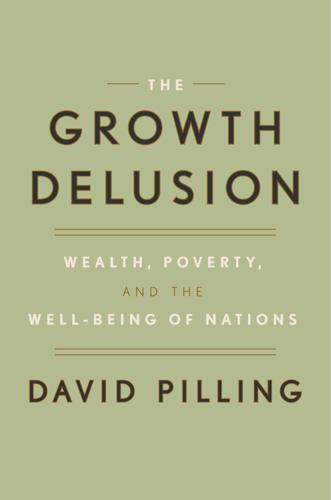
The Growth Delusion: Wealth, Poverty, and the Well-Being of Nations
by
David Pilling
Published 30 Jan 2018
Ibid. 26. According to 2016 IMF figures, it has a GDP of just over $8,227 in purchasing-power parity terms, which adjust for local prices. 27. All figures from Unesco. 28. Bill Frelick, “Bhutan’s Ethnic Cleansing,” New Statesman, February 1, 2008: www.hrw.org. 29. Bhutan’s 2015 Gross National Happiness Index, Centre for Bhutan Studies and GNH Research, November 2015: www.bhutanstudies.org.bt. CHAPTER 13: GDP 2.0 1. Tobin became most famous for his proposed tax on foreign exchange transactions to reduce risky and what he considered useless speculation. 2. “Against the Human Development Index”: econlog.econlib.org. 3.
…
In 1972 the fourth king of Bhutan, Jigme Singye Wangchuck, still a teenage monarch, made his country the first in the world to declare gross national happiness and not gross domestic product the prime orientation of policy. His decree, hailed as enlightened by many development economists, drew on a long national tradition of emphasizing happiness. Bhutan’s legal code, dating from unification in 1729, states, “If the government cannot create happiness (dekid) for its people, there is no purpose for the government to exist.”23 Gross national happiness (GNH) is different from the type of happiness studied by most Western academics. Unlike the sort of work Layard does, GNH is not focused primarily on subjective well-being or self-reported happiness.
…
How should we interpret his ideas on human happiness today? More precisely, the subject at hand is the feasibility of measuring happiness at all and whether it is a worthwhile enterprise. In economics the happiness discussion has been unhelpfully hijacked by Bhutan and that small, mountainous country’s promotion of what it calls gross national happiness. Mention measuring happiness to some people and they’ll look at you with a slightly knowing look and say, “What, like Bhutan?” I’ll deal with Bhutan later, but the more interesting discussion on happiness has to do with attempts in the great universities of America and Europe to measure it.
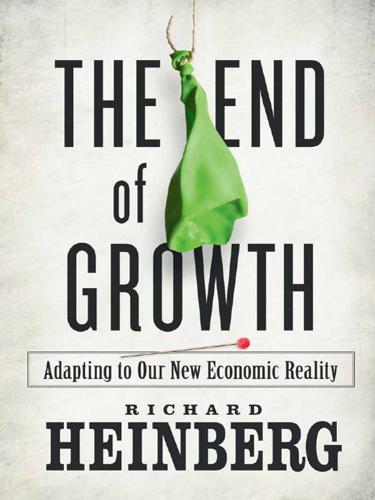
The End of Growth: Adapting to Our New Economic Reality
by
Richard Heinberg
Published 1 Jun 2011
“David Cameron Aims to Make Happiness the New GDP,” The Guardian, November 14, 2010. 65. “Seattle Area Happiness Initiative,” Sustainable Seattle.org, sustainableseattle.org. 66. “ABAC Poll: Thai People Happiness Index Rose to 8 Out of 10 Points,” eThailand.com, posted December 6, 2010. 67. “Coronation Address of His Majesty King Khesar, the 5th Druk Gyalpo of Bhutan,” Gross National Happiness.com, November 7, 2008. 68. Cliff Kuang, “Infographic of the Day: Happiness Comes at a Price,” fastcodesign.com, posted December 8, 2010; happyplanetindex.org. 69. Helena Norberg-Hodge, Steven Gorelick, and John Page, “The Economics of Happiness,” a documentary movie, International Society for Ecology & Culture, 2011. 70.
…
In 1972, shortly after ascending to the throne at the age of 16, Bhutan’s King Jigme Singye Wangchuck used the phrase “Gross National Happiness” to signal his commitment to building an economy that would serve his country’s Buddhist-influenced culture. Though this was a somewhat offhand remark, it was taken seriously and continues to reverberate. Soon the Centre for Bhutan Studies, under the leadership of Karma Ura, set out to develop a survey instrument to measure the Bhutanese people’s general sense of well-being. Ura collaborated with Canadian health epidemiologist Michael Pennock to develop Gross National Happiness (GNH) measures across nine domains: • Time use • Living standards • Good governance • Psychological well-being • Community vitality • Culture • Health • Education • Ecology Bhutan’s efforts to boost GNH have led to the banning of plastic bags and re-introduction of meditation into schools, as well as a “go-slow” approach toward the standard development path of big loans and costly infrastructure projects.
…
Concern for community.55 Cooperatives have the potential to avert overuse of resources by placing other values, including the interests of future generations, ahead of profit. Indeed, the organization “Coop America,” which began as a sort of cooperative of US cooperatives, in 2009 changed its name to “Green America.” Gross National Happiness After World War II, the industrial nations of the world set out to rebuild their economies and needed a yardstick by which to measure their progress. The index soon settled upon was the Gross National Product, or GNP — defined as the market value of all goods and services produced in one year by the labor and property supplied by the residents of a given country.
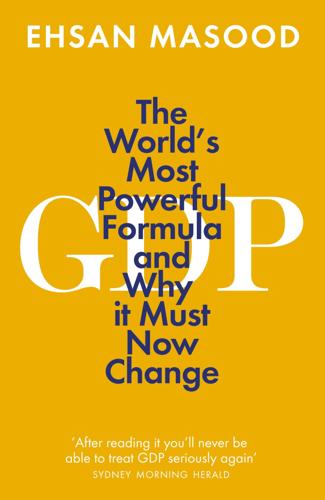
GDP: The World’s Most Powerful Formula and Why It Must Now Change
by
Ehsan Masood
Published 4 Mar 2021
A short while later he gathered a small team of researchers from around the world, and together they attempted to give precision to the king’s vision for Gross National Happiness. Dasho Karma is a genial man with a dry sense of humor and a mischievous laugh. In an interview in 2014 he told me that Gross National Happiness is an attempt to quantify what the fourth King Wangchuck had tried to envision all those years ago: “That certain things should not be given up even if they may not make money. We need to preserve those things that are directly counter to making money and therefore to boosting GDP.” In contrast to GDP, Gross National Happiness would measure those things that are important to Bhutan’s people, including self-reliance, a green environment, health, and literacy.
…
It would also be firmly rooted in its country’s cultural story. It would be a way to organize economy and society, just as GDP is.8 Gross National Happiness, in the words of Dasho Karma, amounts to an “offensive” against GDP. How Gross National Happiness offends GDP is in its status as official filter for many (but not all) economic development projects—projects that in many countries would go ahead if they were good for GDP. In Bhutan, however, they have to pass the Gross National Happiness test. Since the late 1980s, most of Bhutan’s ministries have been measuring their activity according to GNH, alongside GDP.
…
In the five years between 2008 and 2012, spending by households doubled to around $645 million. Government spending nearly doubled to $300 million in the same period.11 And so to the broader question: Can Gross National Happiness be exported to countries outside the Himalayan kingdom? Is it realistic to think that it could have a place elsewhere? If it is, then is it possible to imagine Gross National Happiness becoming a viable alternative to GDP? To use the language of accounting, on the plus side Gross National Happiness counts among its fans no less than the former UK prime minister. David Cameron is among many world leaders to enthusiastically endorse government-sponsored happiness surveys.
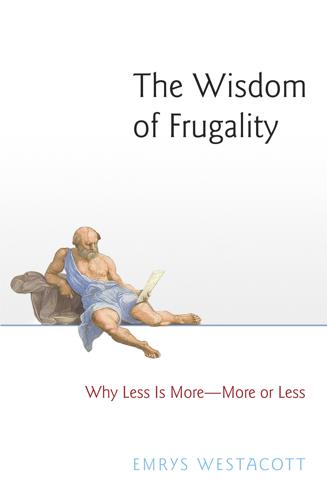
The Wisdom of Frugality: Why Less Is More - More or Less
by
Emrys Westacott
Published 14 Apr 2016
For instance, between 1999 and 2013, per capita GDP in the United States rose by about 25 percent, yet during that same period the median household income declined by 8.7 percent.11 And even where rising GDP does reflect a general increase in material prosperity, social scientists remain divided over the extent to which it brings about an increase in the general level of happiness.12 Those who oppose using GDP to guide government policy have likened what they see as a misguided obsession with it, on the part of many economists and politicians, to a driver paying attention to only one gauge on a car’s dashboard, the speedometer, while ignoring those that measure such important things as fuel level, engine temperature, or oil pressure.13 Some even argue that the excessive focus on GDP has been a major obstacle to progress in many areas, including material prosperity.14 For these reasons numerous alternatives to GDP as measures of a society’s well-being have been proposed. One that has attracted quite a lot of attention is the Gross National Happiness Index pioneered by the government of Bhutan. Others include the Human Development Index, which emphasizes life expectancy, education, and standard of living, and the Social Progress Index, which uses fifty-two indicators, including such things as health, safety, sustainability, and individual freedom.
…
K., 285–86 Gandhi, Mohandas, 32, 64 Gaugin, Paul, 118 generosity, 145 gift giving, 195–96 Gilbert, Daniel, 95 Giuliani, Rudolph, 165 global warming, 249–51 Goethe, Johann Wolfgang von, 183 golden age, 38, 207–10. See also nostalgia Goncharov, Ivan, 146 greed, 156, 158, 161–62, 216. See also acquisitiveness Green, Hetty, 49–50 Grice, Paul, 60 gross domestic product (GDP), 217–21 Gross National Happiness Index, 219 Habermas, Jürgen, 60, 247 Handel, George Frideric, 118 happiness: and acquisitiveness, 156–57; and basic needs, 87–99, 156–57; difficulty of measuring, 211; and economic prosperity, 216–24; and GDP, 218–21; and income, 222–24; and inequality, 151–52, 223–24; and simple living, 73–135; and virtue, 74–76; and wealth, 148, 152–55 happiness-income paradox, 220–21, 223 hardiness, 31, 275–76 Hardy, Thomas, 118 Heaney, Seamus, 118 hedonic adaptation, 112–16.

Geek Heresy: Rescuing Social Change From the Cult of Technology
by
Kentaro Toyama
Published 25 May 2015
Happiness and Its Discontents Social causes seek economic prosperity, social justice, human dignity, and expanded freedoms, so packaged interventions aim for these goals, too. But what if the goals are themselves misguided? In 1972, King Jigme Singye Wangchuk of Bhutan proposed an alternative measure of progress. He announced that instead of Gross National Product, his country would judge itself by what he called Gross National Happiness. And before we deride a young king of a small, far-off land for his idealism, it’s worth remembering that Thomas Jefferson, representing a once young, once far-off land, enshrined “the pursuit of happiness” as an inalienable right on par with life and liberty. Jefferson and the Bhutanese king knew what they were talking about.
…
In 2009, French president Nicholas Sarkozy commissioned a group featuring five Nobel Prize winners to devise a metric that captured true quality of life.46 In 2010, British prime minister David Cameron prompted his government to start measuring happiness.47 And at his second inauguration in 2013, President Barack Obama reprised Jefferson: “That is our generation’s task – to make . . . life, and liberty, and the pursuit of happiness real for every American.”48 The Ant and the Grasshopper If you had to suppress a giggle at the mention of Gross National Happiness – or perhaps you didn’t even bother to suppress it – you’re not alone. Happiness seems like cotton candy, pink and fluffy. It calls to mind a laughing young satyr prancing about in some meadow while others hunker down to the serious business of life. Scholars try to make happiness more respectable by calling it “subjective well-being,” but that doesn’t make it any less fluffy.
…
See also Shanti Bhavan school Ghana Ashesi University, 125–129, 149–150, 152–153, 159–162 Digital Green partnerships, 110 Soronko, 151–152 Ghonim, Wael, 32–33, 35, 37, 67, 72 Ghose, Anirban, 198, 200, 204 Gingrey, Phil, 42 Gladwell, Malcolm, 36 Glenn, John, 104 Glennerster, Rachel, 236–237(n14) Global Polio Eradication Initiative, 65, 238(n27) Goleman, Daniel, 252(n16) Governance NREGA and technology, 112–114 European Enlightenment, 96–98 mass values, 187–188 packaged interventions, 69 repressive regimes, technology assisting, 23 technology amplifying power, 31–32 women’s status, 178 See also Corruption; Democracy and democratization Grameen Bank, 59, 61, 71–72 Grameen Foundation, 247(n16) Grassroots collective action, 50–52. See also Collective action Green Foundation, 106–107 Green Revolution, 207, 273(n19) Grit, 135 Gross Domestic Product (GDP), 43, 88, 95, 97, 176, 187, 216, 245(n56) Gross National Happiness, 87–88 “Gross National Wisdom,” 172–191 Group intrinsic growth, 136–139, 174–191 Happiness, 87–91, 137, 166, 244(nn45,51), 244–245(n52), 245(n54) Hatch, John, 71 Health and health care cost containment through technology, 42–44 government subsidies, 86–87 group intrinsic growth, 136–137 health systems, 136–137, 254(n25) heart, mind, and will, 111–112 I-TECH and PEPFAR, 136–139 mentorship initiatives, 207 packaged interventions, 64–65, 69, 238–239(n37) telecenters, 104–105 vaccines, 64–65 Heart, mind, and will, 111–112, 129–132 Ashesi University students, 127, 129–130 character strengths, 253(n20) defining, 111–112, 129–132 discernment, 111, 131 education and, 143–146 external conditions and intrinsic growth, 173–174 growth and progress in, 172–173, 209–210, 253(n22) growth of India’s high-tech sector, 185 intention, 111, 130 internalization of, 252–253(n17) national health-care systems, 138–139 orthogonality of, 135–136, 253(n23) personal initiative and effort, 250–251(n13) personal transition to social activism, 154–155 self-control, 111, 131–132 self-improvement, 174–177 social change, 132–133 synonyms for, 132 transcending fiscal incentives, 155–156 virtue building blocks, 135–136 voluntary life change, 156–159, 263(n40) See also Discernment; Intention; Intrinsic growth; Self-control Heckman, James, 252(n16), 263(n43) Heeks, Richard, 72 Heilbroner, Robert, 20–21, 229(n2) Helping People Help Themselves (Ellerman), 272(n14) Hercules, 14, 209 Hernández Caballero, Eva Yanet, 59 Hierarchy of needs.
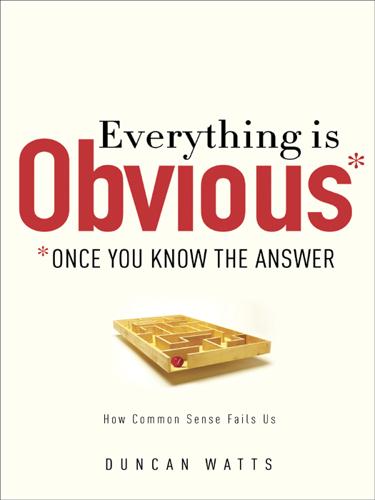
Everything Is Obvious: *Once You Know the Answer
by
Duncan J. Watts
Published 28 Mar 2011
In principle, therefore, one might be able to aggregate all this activity to form a real-time picture of the world as viewed through the interests, concerns, and intentions of the global population of Internet users. By counting the number of searches for influenza-related terms like “flu,” and “flu shots,” for example, researchers at Google and Yahoo! have been able to estimate influenza caseloads remarkably close to those reported by the CDC.11 Facebook, meanwhile, publishes a “gross national happiness” index based on users’ status updates,12 while Yahoo! compiles an annual list of most-searched-for items that serves as a rough guide to the cultural zeitgeist.13 In the near future, no doubt, it will be possible to combine search and update data, along with tweets on Twitter, check-ins on Foursquare, and many other sources to develop more specific indices associated with real estate or auto sales or hotel vacancy rates—not just nationally, but down to the local level.14 Once properly developed and calibrated, Web-based indices such as these could enable businesses and governments alike to measure and react to the preferences and moods of their respective audiences—what Google’s chief economist Hal Varian calls “predicting the present.”
…
“Online Experiments: Practical Lessons.” Computer, 82–85. Kohn, Alfie. 1993. “Why Incentive Plans Cannot Work.” Harvard Business Review 71(5):54–63. Kossinets, Gueorgi, and Duncan J. Watts. 2006. “Empirical Analysis of an Evolving Social Network.” Science 311 (5757):88–90. Kramer, Adam D. I. 2010. “An Unobtrusive Model of ‘Gross National Happiness’ ” Proceedings of CHI. ACM Press. 287–290. Krueger, Joachim, and Russell W. Clement. 1994. “The Truly False Consensus Effect: An Ineradicable and Egocentric Bias in Social Perception.” Journal of Personality and Social Psychology 67:596–610. Krueger, Joachim I. 2007. “From Social Projection to Social Behaviour.”
…
And see Sheng, Provost, and Ipeirotis (2008) for a method for improving turker reliability. 11. See Polgreen et al. (2008) and Ginsberg et al. (2008) for details of the influenza studies. Recently, the CDC has reduced its reporting delay for influenza caseloads (Mearian 2009), somewhat undermining the time advantages of search-based surveillance. 12. The Facebook happiness index is available at http://apps.facebook.com/usa-gnh. See also Kramer (2010) for more details. A similar approach has been used to extract happiness indices from song lyrics and blog postings (Dodds and Danforth 2009) as well as Twitter updates (Bollen et al. 2009). 13. See http://yearinreview.yahoo.com/2009 for a compilation of most popular searches in 2009.
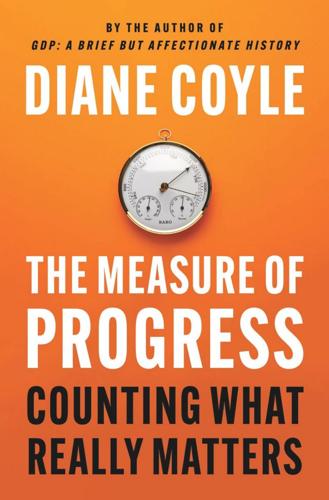
The Measure of Progress: Counting What Really Matters
by
Diane Coyle
Published 15 Apr 2025
The alternative some economists favour is some form of direct measurement of well-being. It has influential advocates and popular appeal. Many of t hose who are keen on the Beyond GDP agenda often cite policy approaches such as New Zealand’s Living Standards Framework or even Bhutan’s Gross National Happiness Index. Well-being measures are, just like GDP and its component statistics, backward looking. Using them to guide policy is still steering through the rearview mirror. Only assets valued at shadow prices directly embed societal sustainability, as they are forward looking. Beyond that, there is a sense in which well-being measurement has exactly the same aim as any other approach to economic measurement, which is to assess whether things are getting better or not.
…
See also Beyond GDP movement generalized exactly additive decomposition, 49–50 General Theory of Employment, Interest, and Money (Keynes), 24 generative artificial intelligence (AI): data-driven decision-making and, 29; economic progress/economic change and, 2, 4; impact on occupations, 165; productivity growth and, 40–41 Genuine Progress Indicator, 244 gig employment, 20, 105, 116–20 GlaxoSmithKline, 79–80 globalisation, 154–56 global material footprint, 205, 206 global value chains (GVCs) (global production networks (GPNs)), 74, 157–62 globotics, 164–65 GM cars, subscription services and, 94 i n de x goods: accounting methods for new, 188–90; counted in GDP, 106; prices and hours for selected, 194, 194–95; welfare benefits of new, 193 Google, 87, 95, 96, 112, 146, 164, 167 Google cloud computing services, 89, 92 government: digital initiatives, 172–75; measuring economic activity and, 22–27; need for good statistics to function, 240–41; resource allocation and, 60 grocery shopping, changes in experience of, 99–101 Gross National Happiness Index (Bhutan), 233 growth, sustainability and ethics of, 219–21. See also economic growth growth accounting, 42–47 Guide to Measuring Global Production (UNECE), 77–78 happiness, measuring, 233, 235 hard to measure conundrum, 179–80, 180 health: in economic measurements, 1–2, 244; human capital estimations and, 63, 215, 226–27 hedonic adjustment, 189, 237; quality change and, 180, 191–92 hedonic index, real output growth rates and, 192 hedonic regression, 201; adjusting price indices and, 138–39 Hicksian reservation price, 183, 190 household: innovation for, 107; shifting market transactions to, 99–102 household capital, 113–16 household/home production, 105; GDP and, 106–7; lack of attention paid to, 124–25; productivity growth and transfer of time input to, 67–70, 68; technology and substitution of for market production, 110; user-generated digital products, 129, 143–45 household satellite accounts, 107–9, 108 301 How to Pay for the War (Keynes), 24 HP printers, 95, 96 human capital accounting, 224–27; comprehensive wealth framework and, 251; economic statistics and, 63; estimating stock of, 227; including health status in, 215 Human Development Index (HDI), 236, 243 human footprint, 205, 206 hybrid work, 120–21, 163 hyperscalers, 89, 167–69, 169–70, 196 ICT (digital information and communication technologies): enabling remote work, 163; factoryless goods production and, 79; firm-level productivity and, 52, 53, 54; production networks, 57–58 imputation: for barter, 131–33; in GDP statistics, 17–18, 18; of value of digital goods and services, 20 inclusive wealth, 214 income distribution, measurement of economic welfare and, 260 index method, 48 Index of Sustainable Economic Welfare, 244 India, IT services sector in, 163 India Stack, 173–74 indicators, in alternative indices, 245–46, 246 inflation: constant utility construct for measuring, 192–93; consumer price indices and, 184; distributional consequences of, 188; measuring, 178–79; politics of statistics on, 185 Information Rules (Shapiro & Varian), 127–28 infrastructure: comprehensive wealth framework and, 248; data on, 62–63; defined, 60–61; digital public, 171–76; internet, 166–67; social, 61 Infrastructure as a Service (IaaS), 88, 168, 169 innovation: for the household, 107; questioning benefits of some, 3–4; S-shaped logistic curve for spread of, 9; von Hippel, 140–42 innovative property, as intangible asset, 229 302 inputs: growth accounting and, 43–47; time as, 121–24 intangible assets, 61, 152, 157, 215, 229, 229, 231 intangible investment, scale of, 228–29, 229, 230 intangibles, 97, 157, 228–33 intellectual property rights, subscription economy and, 95 International Trade in Services Survey (ITIS), 160 iPhone, 102, 102–3, 155 J curve, 39, 70 John Deere, subscriptions and, 41, 94 Jorgenson-Fraumeni approach, 226 KLEMS (capital, labour, energy, materials, and services) growth accounting framework, 11, 43–46, 55 labour: gig employment, 20, 105, 116–20; hybrid and remote work, 120–21; substitution of capital for, 100–1 labour productivity, 35, 35–36; decomposing, 48–52; defining, 50; growth accounting and, 45–47; time and, 66 Laspeyres index, 181–82, 183, 193 leisure/consumption, time-based approach to productivity and, 66, 67–69, 68, 70 leisure time: effect of hybrid and remote work on, 120–21; SNA accounting for, 107–8 life satisfaction, measuring, 234, 235, 236–37; as measure of well-being, 241–42 lifetime earnings, human capital and, 225 Light as a Service model, 82–83 Likert scale, 234 living standards: democratic institutions and increasing, 221; leisure time and, 107–108; productivity and, 34, 36–37; slow growth in, 3–4, 5 Living Standards Framework (LSF), 233, 236, 245, 246 i n de x machine learning (ML), decision-making and, 29–31.
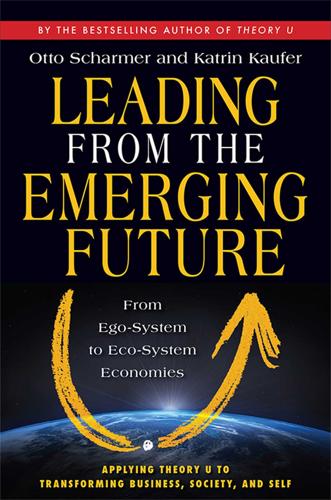
Leading From the Emerging Future: From Ego-System to Eco-System Economies
by
Otto Scharmer
and
Katrin Kaufer
Published 14 Apr 2013
Leadership: Close the feedback loop from leadership to the emerging future of the whole (through practices of co-sensing, co-inspiring, and co-creating). 6. Consumption: Close the feedback loop from economic output to the well-being of all (through conscious, collaborative consuming and new indicators such as GNH, or gross national happiness, discussed later in this chapter). 7. Coordination: Close the feedback loop in the economy from the parts to the whole (through ABC, awareness-based collective action). 8. Ownership: Close the feedback loop from ownership rights to the best societal use of assets (through shared ownership and commons-based property rights that safeguard the interests of future generations).
…
The U.school has the potential to institutionalize the teaching and learning of these capacities in a way that could make them available on a scale that is commensurate with the crisis that we face—like the critical mass of people that we’re meeting in the Bronx who are ready to shift the terrain of social movements. THE GLOBAL WELL-BEING AND GROSS NATIONAL HAPPINESS LAB: INNOVATING BEYOND GDP What we want to see is nothing less than transformative—graduates who are genuine human beings, realizing their full and true potential, caring for others—including other species—ecologically literate, contemplative as well as analytical in their understanding of the world, free of greed and without excessive desires; knowing, understanding, and appreciating completely that they are not separate from the natural world and from others—in sum manifesting their humanity fully. … In the end, a GNH-educated graduate will have no doubt that his or her happiness derives only from contributing to the happiness of others.
…
THE GLOBAL WELL-BEING AND GROSS NATIONAL HAPPINESS LAB: INNOVATING BEYOND GDP What we want to see is nothing less than transformative—graduates who are genuine human beings, realizing their full and true potential, caring for others—including other species—ecologically literate, contemplative as well as analytical in their understanding of the world, free of greed and without excessive desires; knowing, understanding, and appreciating completely that they are not separate from the natural world and from others—in sum manifesting their humanity fully. … In the end, a GNH-educated graduate will have no doubt that his or her happiness derives only from contributing to the happiness of others. LYONCHEN JIGME Y. THINLEY, prime minister of Bhutan6 The job of Ha Vinh Tho, program coordinator of Bhutan’s Gross National Happiness (GNH) Centre in Thimphu, is to put this intention for the future on its feet. “The quote above,” says Tho, “is essentially the mandate for the GNH Centre.” A graduate of the Presencing Global Masterclass, Tho is developing this example of a U.school-type initiative with an intention that links it directly to a global ecology of like-minded initiatives.
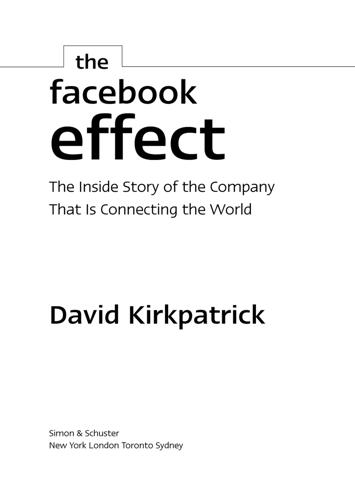
The Facebook Effect
by
David Kirkpatrick
Published 19 Nov 2010
Some have gone so far as to say it could evolve toward a kind of crude global brain. The reason people sometimes talk like that is that once all this personal data exists in one place it can be examined by sophisticated software in order to learn new things about aggregate sentiment or ideas. One company project announced in late 2009 is the Gross National Happiness Index. Analytic software measures the occurrence over time of words and phrases on Facebook that suggest happiness or unhappiness. That produces a chart that is intended to be “indicative of how we are collectively feeling,” according to a post on the Facebook Blog. Initially it will only plumb data produced by English-speakers in the United States.
…
S., 49 Ellison, Nicole, 68 El-Maayirgy, Sherry, 280 email, 16, 67, 188, 274 engagement ads, 260–61 eUniverse, 75 Evans, Katherine, 211 Evite.com, 216 Evolution of God, The (Wright), 202 f8 event, 222–25, 226, 227, 228, 231, 245 Facebook: Accel’s meetings and deal with, 117–18, 119–20, 124–26, 129, 130, 143, 146–47, 170, 183, 318, 320, 322, 323 advertising on, 37–38, 42, 43, 44, 55, 60, 61–62, 101–3, 109–10, 111–12, 132, 139–43, 177–79, 221, 232, 235, 237, 246, 255, 256–68, 270–73, 307 American values and, 278–80 amount of content on, 11–12 board of, 125–26, 138, 146–48, 236, 320–21; see also specific board members capital of, 42, 62, 63, 86 chat on, 219 as circumscribed to university students, 84, 88, 91–92, 100, 149–50 company cars of, 57, 98 company “pages” on, 246 complaints about, 165–66, 189–195, 196, 197, 201, 249, 304, 308–10 conventional media and, 295–98 corporations and, 298–301 Courses application on, 226 customer support requests to, 132–33 data centers of, 225–26, 285 early college-based growth of, 32–33, 34–39, 88, 89, 92, 94, 100, 101, 110–11, 140, 149–51, 179 Emerson Street office of, 117–18, 121, 129, 130–31, 151 exhibitionism and, 13 in expansion beyond colleges, 98, 149–51 expenditures of, 55, 59 “fans” on, 246, 310 friending on, 12–13, 14, 30, 32, 33, 34, 61, 92, 100, 173, 181, 193–94, 297, 312–13 Frisson party for, 103–4 frivolous gatherings organized on, 8 games on, 9, 228–30, 283 glitches in code of, 132 Google’s advertising talks with, 238–39, 242 Google’s desire to buy, 54, 326 groups on, 3–6, 7, 8–9, 93, 151, 189–92, 211, 263–64, 288, 289, 290, 294 growth chart of, 111 hiring and recruitment by, 47, 105, 106, 116, 129, 130–31, 132–34, 135, 138, 157–58, 165–66, 175, 188, 251–54, 256 housing subsidy offered to employees of, 137 human resources rating system at, 255 imitations of, 101, 171, 282, 284–85, 334 immaturity at, 128, 133, 198 incorporations of, 41, 53, 62–63, 99 inspiration for, 28–29 intellectual property theft accusation and lawsuit against, 40–41, 65, 66, 80–85, 97, 173 internal communication issues in, 162–64 investments in, 9–10, 30, 38, 41, 42–44, 53–54, 59, 62, 63, 86, 87–88, 89, 94, 107–27, 129, 130, 183, 232, 236, 244, 246, 284–85, 318, 322–23 invitations on, 216–17 launch of, 29–33, 34, 77, 78, 79 logo of, 30, 145 marketing with, 9, 15, 116 Microsoft’s ad deal with, 178, 179, 235–37, 239, 242–46, 249, 255, 257–58, 261, 273, 326–27 Microsoft’s desire to purchase, 239–42, 285 Mini-Feed on, 189, 220, 303 on mobile devices, 316 MySpace’s interest in buying, 138–39, 153 name change of, 145 News Feed on, see News Feed number of members of, 9, 16, 17, 30–31, 34, 35, 39, 59, 64, 86, 90, 92, 103, 110–11, 131, 151, 153, 177, 196, 197, 227, 250, 261, 267, 270–71, 303, 309, 311, 320, 329, 334 offers to buy, 11, 41, 54, 182–87, 195–98, 239–42, 285, 326 office routine at, 49–54 open registration on, 172, 184, 185, 195, 196–98 ownership of, 9–10, 34, 40, 62–63, 87–90, 94, 95, 96, 112, 113, 124, 126, 147–48, 170, 184, 269, 321, 322 Palo Alto house of, 44, 51, 52, 54–56, 63, 64–65, 86, 94–95 photos on, 33, 99, 153–57, 180, 194, 205, 206, 210, 216–17, 220, 227, 280, 302 platform strategy for, 11, 215–16, 217–34, 262–63, 278, 302, 305–7 “poke” option on, 32, 91, 92, 138, 173 political activism on, 2–6, 7, 8, 15, 192, 288, 289–95 possible IPO of, 321–22 private messaging on, 324 purpose of, 12 rambunctious reputation of, 129 recession and, 272 redesign of, 303, 311 registering of, 26 relationship status on, 194, 205–6 as replacement for address book, 93–94 returning users of, 111, 118 revenue of, 11, 41, 42, 43, 62, 101–2, 110, 112, 159, 170, 178, 232, 262, 273 romantic options on, 32, 91 salaries at, 59, 106 sales offices of, 271 Saverin’s differences with team at, 59–63, 64, 65, 89, 126 in self-promotion to developers, 222–25 servers used for, 29–30, 38, 57–58, 59, 63, 86, 87, 94, 132, 156, 175, 225, 256, 285, 325 shopping on, 316–17 simplicity of, 11, 61, 64, 82, 100, 144–45, 153–54, 276 software used by, 58–59 speed of, 58 stock of, 89–90, 106, 112, 113, 124–25, 133, 147–48, 236, 269, 305, 321, 322 tagging photos on, 154, 155, 156, 157, 212 timing of, 39 translation of, 16, 243, 275, 277, 282, 286, 302 transparency of, 14–15, 200, 202–203, 204–6, 207, 210–11, 214, 287–88, 319, 323 as trusted company, 209, 329–30 unorthodox computer code of, 132 user time spent on, 92–93, 108, 274 as “utility,” 144, 159, 160 valuations of, 43, 89–90, 95, 110, 121, 124, 126, 161, 168, 170, 174, 183, 184, 236, 239, 240, 244, 256, 267, 319, 322–23 Viacom’s desire to purchase, 113, 125, 159–60, 162, 164, 166–67, 168–71, 182 work networks at, 172–74, 185 WTI’s loans to, 95–96, 112–13 Yahoo’s desire to purchase, 182–87, 195–98 see also privacy Facebook Ads, 247–48, 250, 255, 258–59 Facebook API, 219 Facebook Blog, 332 Facebook Connect, 234, 251, 305–7, 314, 328, 335 Facebook credits, 262–63, 329 Facebook Fridays, 299 Facebook Global Monitors, 16, 275, 283, 328 “Facebook Is … Fostering Political Engagement: A Study of Online Social Networking Groups and Offline Participation,” 293 Facebook Lite, 317 Facebook Open Stream API, 314–15 Facebook phone, 282 Facebook Principles, 309 Facelift project, 144–45 Facemash, 23–25, 26, 27, 28, 29, 80, 82, 158 Fake, Caterina, 213 Fanbase, 306 Fanning, Shawn, 46, 48 Farmville, 229–30, 283 Favreau, Jon, 204, 205 Federal Trade Commission, 208–9, 249 Fenton, Peter, 115, 116, 117 Fetterman, Dave, 175, 219, 220 50 Cent, 138 Fight Club, 143 Filo, Jeff, 216 FIOS, 297, 298 First Amendment, 211 Fleischer, Ari, 294 Flickr, 115–16, 153, 213 Fluff Friends, 228 flyers, 102–3, 111 Food Fight, 228 Fortune, 10, 11, 166, 199, 206, 222, 249 Foursquare, 306 Fox, 153 Fragodt, Anikka, 274, 283 France, 16 Freeloader, 48, 73 Freston, Tom, 160, 168, 169 Friedman, Thomas, 7 FriendFeed, 304, 317 Friendster, 28, 29, 31, 70–72, 73, 75–76, 84, 85, 92 in Asia, 282, 283 Facebook’s borrowing from, 27 investments in, 46, 51, 71, 72, 88, 112, 115 success as curse to, 52, 58, 71–72, 74, 79, 86, 130, 132, 144 Frisson, 103–4 Fuerza Latina, 24, 25 Funwall, 231 Future of the Internet, The—and How to Stop It (Zittrain), 310 Gadre, Rudy, 243 Gandhi, Mohandas, 135 Garden State, 143 Gates, Bill, 213, 215, 216, 217, 218, 320 Gawker, 306 Gay, Rowena, 213 Genachowski, Julius, 334 Geocities, 67 Germany, 171, 282–83 gift economy, 287, 288, 293, 295 Gladwell, Malcolm, 103 Glassman, James, 291, 292 Gleit, Naomi, 138, 182, 198 globalization, 9–10, 278 global village, 332 Gmail, 188, 259 Goldberg, Adam, 36 Goldberg, Dave, 253 Goldman Sachs, 43 Google, 16, 104, 151, 165, 209, 245, 256, 275, 291, 297, 318, 323, 325, 331 advertising and, 111, 139, 178, 216, 237, 251, 254, 255, 259 antitrust investigations against, 326, 327 as competitor with Facebook for talent, 129–30, 327 Dodgeball acquired by, 184 Facebook investment of, 126 Facebook purchase as desire of, 54, 326 Facebook’s advertising talks with, 238–39, 241, 242 Friendster purchase proposed by, 71 IPO of, 170, 321 MySpace’s deal with, 177 News Corporation’s deal with, 237–38 Orkut bought by, 78, 87 Sandberg at, 251, 252, 253, 255 Google Android, 316 Google Checkout, 231 Google Docs, 269 Google One, 254 Google Zeitgeist, 238 Gordon, Susan, 92 Gould, Alan, 267 Graffiti, 228 Graham, Don, 107–9, 114, 119, 120–21, 123–24, 136, 254, 320, 321 Great America Theme Park, 198 Green, Joe, 24–25, 30 Causes created by, 224–25, 231–32 Greenspan, Aaron, 79, 81–82, 84–85 Greylock Partners, 170, 319, 322 Grimmelmann, James, 212 Gross National Happiness Index, 332 Grove, Andy, 53 Grown Up Digital (Tapscott), 265 Guantanamo Bay, 290 Gustav, Hurricane, 294 Hagel, John, 203, 299 Haiti, 296 Halicioglu, Taner, 53, 64, 94 Halo, 56, 98 Hamel, Gary, 298 Harper, Julius, 308, 309 Harvard Connection, 26, 40–41, 80–81, 83, 85 launch of, 101 Harvard Crimson, 23, 24, 26, 28, 31, 33, 37–38, 40, 63, 80, 102, 108, 295 Harvard University, 6, 12, 14–15, 17, 19–41, 64, 90, 93, 108, 157, 209, 253, 331 endowment fund of, 114 “facebooks” at, 23, 28, 79, 90 shopping week at, 32 Hasbro, 229 Hi5, 152 Highlights, 311 Hills, The, 167 Hirsch, Doug, 154, 155, 163, 165 HIV, 295 Hoffman, Reid, 72–73, 87–88, 105, 116, 128, 172, 202, 322 “Hollaback Girl” (song), 141, 142, 247 Holtzbrinck publishing firm, 171 Hong Kong, 275, 282, 283 Hotmail, 188, 241–42 houseSYSTEM, 79, 81, 85 HTML, 53, 75 Huffington Post, 298, 306 Hughes, Chris, 14, 21, 30, 35, 45, 107, 293, 322 in departure from Facebook, 269–70 as Facebook spokesman, 40, 64, 103, 134 at Frisson party, 103 and open registration, 195 simplicity pushed by, 64 Hutchison Whampoa, 282 IBM, 67 Iceland, 275 impressions, of engagement ads, 261 InCircle, 78 India, 78, 282 Indonesia, 8, 16, 73, 282, 283, 286, 289–90 information overload, 14 Inside Facebook (Baloun), 137 InsideFacebook.com, 16 Inside Network, 230, 262 instant messaging, 16, 27, 29, 137, 144, 162, 187, 219 Intel, 53, 300, 313–14 Interactive Advertising Bureau, 264 Interpublic Group, 177, 179 Interscope Records, 141, 142 Investment Club, 30 IPC, 187 iPhones, 50, 226, 230, 306, 316 iPod, 218, 300 Iran, 6–7, 8 Israel, 275, 279 Italy, 16, 276, 279, 280 iTunes, 102 Iverson, Joshua, 43 James, Josh, 266 Janzer, Paul, 133 Japan, 276, 281, 282, 283 Jarvis, Jake, 226 JavaScript, 53 Jin, Kang-Xing, 26, 257 Jobs, Steve, 257, 320 Johnson, Kevin, 240, 242 Justice Department, U.S., 327 Kazakhstan, 265 Keep, Elmo, 213 Kelly, Chris, 13, 150, 201, 208 Kendall, Tim, 257 Kennedy, Ted, 294 KickMania, 232 Kirkpatrick, Clara, 219 Kleiner Perkins Caufield & Byers, 71, 112 Korea, 276 Koyi K Utho, 280 Kurds, 291 Lafley, A.

A Line in the Tar Sands: Struggles for Environmental Justice
by
Tony Weis
and
Joshua Kahn Russell
Published 14 Oct 2014
Restoring an economics that makes sense for upcoming generations needs to be a priority. In our community, we think of this as economics for the seventh generation. In our teachings, we have some clear direction: our intention is Minobimaatisiiwin, a spiritual, mental, physical, and emotional happiness—sort of an Anishinaabe version of Bhutan’s Gross National Happiness Index. Within our cultural teachings lie these Indigenous Economic Principles: intergenerational thinking and equity (thinking for the seventh generation); inter- and intra-species equity (respect); and valuing those spiritual and intangible facets of the natural world and cultural practice (not all values and things can be monetized).
…
See Enbridge Alberta Energy and Utilities Board, 116 Alberta Enterprise Group, 40 Alberta Federation of Labour, 14, 86 “Alberta is Energy” campaign, 37–38 Alberta Synthetic Crude Oil (SCO), 46–47 Alberta Taciuk Process (ATP), 108 Albright, Adam, 53 Alfred, Taiaiake, 259 Algeria, oil imports from, 31 Aliceville (Alabama), 182 alienation, 255, 299 Altvater, Elmar, 24, 25, 35 Amalgamated Transit Union (ATU), 220 American Federation of Labor and Congress of Industrial Organizations (AFL-CIO), 218–21; Center for Green Jobs, 219; Energy Task Force, 218 American Petroleum Institute, 60, 221 Americans for Prosperity, 282 ammonia, 182 Amos, Chief Henry (Gupsalupus), 155–56 Anishinaabe people, 17, 231, 253; worldview of, 237–38 Anonymous Collective, 164 anti-apartheid campaign, 290–91 anti-Asian attitudes, 92–93, 98 anti-capitalism, 69, 75, 263, 273, 311 anti-Chinese racism, 96, 98 anti-colonialism, 75, 244, 246, 259, 260–63, 265, 269, 275, 352n9 Anticosti Island, 82 anti-environmental lobbying, 282, 351n8 anti–fossil fuel campaigns, 309 anti-globalization, 96, 169 anti-nuclear movement, 81, 169, 319 anti-oppression, 244, 246, 263, 343n6 anti-pollution rules, 318 anti-racism, 244, 246, 261, 265 anti-sexism, 261 anti–shale gas movement, 82 anti-systemic escalation, 294–95 anti–wind turbine campaigns, 69 Apollo Alliance, 243, 245 Arctic, exploration and drilling in, 29, 31, 308, 315 Arctic National Wildlife Refuge, 242 Asian Pacific Environmental Network, 280 Assembly of First Nations, 69 asthma, 116 asymmetry, grappling with, 287–89 Athabasca Chipewyan First Nation (ACFN), 12, 18, 208–9, 211, 254, 271, 275 Athabasca River Basin, 5, 8–10, 15, 17, 32, 230; First Nations of, 12, 13, 16, 237 Attawapiskat, diamond mining in, 125 Australia, oil shale exploration and experimentation in, 100 Avatar, 249–50, 323n14 Baird, John, 62 Baker Estates (Michigan), 198, 200–201 Barlow, Maude, 94, 170, 323n14 Bass, Rick, 283 Bateman, Kenneth, 149 Bay of Fundy, toxic threats to, 78 Bayou Corner (Louisiana), sinkhole in, 182 Beaver Lake Cree, 18, 119–24, 271, 274 Bentley, Robert, 183 benzene, 10, 135, 182, 197, 202 Bernard, Elaine, 97 Berry, Thomas, 239 Berry, Wendell, 170 Bhutan: Gross National Happiness Index, 238 Big Greens, 168 Big Oil, 49, 53, 70, 72, 119, 123, 126, 240, 242–47 Bilateral Investment Treaties (BITs), 97 bioaccumulation, 9 Bishop, Mike, 192 bitumen, 4–7, 9, 15–17, 20, 46, 77, 117, 119, 152, 162, 167, 179, 206, 247, 253–54, 269–70, 281, 287, 291–93, 305, 310, 312, 314; in Chemical Valley, 135–37, 139–40; cleanup of, 198; diluted (“dilbit”), 137, 146, 183, 195–99, 202, 205, 232, 236, 254, 302; environmental and health risks of mining, transporting, and refining of, 10–12; extraction of, 8–9, 51–52, 95, 100–103, 120, 129, 142; and Gulf Coast, 182–83; in Kalamazoo, 195–206; in Madagascar, 104–5; as nationalized resource in Venezuela, 102; and Northern Gateway project, 146–47, 149–50, 152; refining of, 8, 79; toxic, 78; in Trinidad and Tobago, 103; as “ultra-heavy” oil, 101 Bitumen—Adding Value conference, 134–35, 143 Bitumen: Canada’s National Disaster demonstration, 135 Blackheath Camp for Climate Action, 208 Blaney, Ta’Kaiya, 164 Bloch, Ernst: The Principle of Hope, 320 blockades, 80, 114, 143–44, 157–58, 189, 288, 293; as direct action, 343n2 (ch.17).
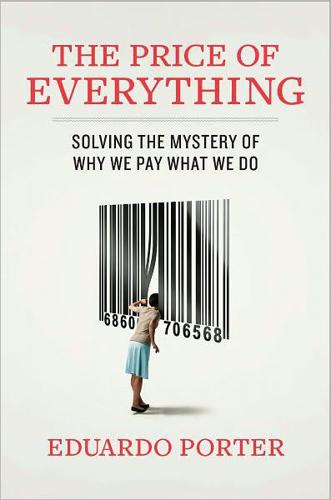
The Price of Everything: And the Hidden Logic of Value
by
Eduardo Porter
Published 4 Jan 2011
“The time is right for our measurement system to shift emphasis from measuring economic production to measuring people’s well-being,” the report concluded. Government, it suggested, should supplement standard economic data with other information, including citizens’ sense of happiness with their lives. The tiny Buddhist kingdom of Bhutan, high in the Himalayas, has stretched the idea further—devising a quantity it calls “gross national happiness,” which it plans to use to evaluate policies and keep track of the country’s well-being. King Jigme Singye Wangchuck coined the term in 1972, but it became a reality only after he abdicated thirty-six years later, when Bhutan had its first-ever democratic election, and the Bhutanese approved a new constitution that established the world’s first GNH index.
…
Kennedy Presidential Library (at http://www.jfklibrary.org/Historical+Resources/Archives/Reference+Desk/Speeches/RFK/RFKSpeech68Mar18UKansas.htm, accessed 08/16/2010). The “Report by the Commission on the Measurement of Economic Performance and Social Progress,” by Joseph Stiglitz, Amartya Sen, and Jean-Paul Fitoussi for the French government can be found at www.stiglitz-sen-fitoussi.fr. The account of Bhutan’s gross national happiness draws from Seth Mydans, “Recalculating Happiness in a Himalayan Kingdom,” New York Times, May 7, 2009; the Center for Bhutan Studies (grossnationalhappiness. com/gnhIndex/intruductionGNH.aspx, accessed 08/12/2010); Swaminathan S. Anklesaria Aiyar, “Bhutan’s Happiness Is Large Dam, Fast GDP,” Times of India, November 1, 2009; and Ben Saul, “Cultural Nationalism, Self-Determination and Human Rights in Bhutan,” International Journal of Refugee Law, Vol. 12, No. 3, July 2000, pp. 321-353.
…
The story about the impact of a concrete floor on happiness in Mexico’s Coahuila state is in Matias Cattaneo, Sebastian Galiani, Paul Gertler, Sebastián Martínez, and Rocio Titiunik, “Housing Health and Happiness,” World Bank Policy Research Paper, April 2007. The data on happiness among the rich and the poor come from Rafael Di Tella and Robert MacCulloch, “Gross National Happiness as an Answer to the Easterlin Paradox?” Journal of Development Economics, Vol. 86, No. 2, April 2008, pp. 22-42. Robert Frank’s statement is in Robert Frank, “Does Absolute Income Matter?” in P. L. Porta and L. Bruni, eds., Economics and Happiness (New York : Oxford University Press, 2005), p. 67.
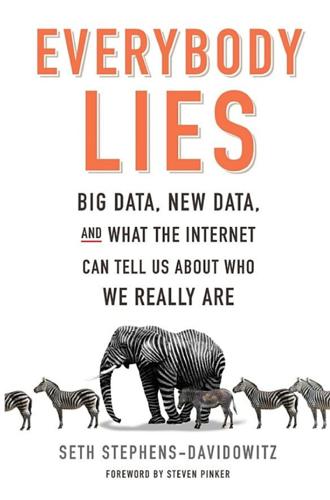
Everybody Lies: Big Data, New Data, and What the Internet Can Tell Us About Who We Really Are
by
Seth Stephens-Davidowitz
Published 8 May 2017
If you are alone and miserable on Christmas, do you really want to bother all of your friends by posting about how unhappy you are? I suspect there are many people spending a joyless Christmas who still post on Facebook about how grateful they are for their “wonderful, awesome, amazing, happy life.” They then get coded as substantially raising America’s Gross National Happiness. If we are going to really code Gross National Happiness, we should use more sources than just Facebook status updates. That said, the finding that Christmas is, on balance, a joyous occasion does seem legitimately to be true. Google searches for depression and Gallup surveys also tell us that Christmas is among the happiest days of the year.
…
If someone writes “I am sad thinking about all the world’s death and depression,” sentiment analysis would code that as extremely sad text. Other pieces of text would be somewhere in between. So what can you learn when you code the mood of text? Facebook data scientists have shown one exciting possibility. They can estimate a country’s Gross National Happiness every day. If people’s status messages tend to be positive, the country is assumed happy for the day. If they tend to be negative, the country is assumed sad for the day. Among the Facebook data scientists’ findings: Christmas is one of the happiest days of the year. Now, I was skeptical of this analysis—and am a bit skeptical of this whole project.
…
See customers/consumers contagious behavior, 178 conversation, and dating, 80–82 corporations consumers blows against, 265 danger of empowered, 257–65 reviews of, 265 correlations causation distinguished from, 221–25 and predicting the stock market, 245–48, 251–52 counties, zooming in on, 172–90, 239–40 Country Music Radio, 202 Craigslist, 117 creativity, and understanding the world, 280, 281 crime alcohol as contributor to, 196 and danger of empowered government, 266–70 and prison conditions, 235 violent movies and, 193, 194–95, 273 Cundiff, Billy, 223 curiosity and benefits of digital truth serum, 162, 163 Levitt views about, 280 about number of people who finish books, 283–84 and understanding the world, 280, 281 cursing, and words as data, 83–85 customers/consumers blows against businesses by, 265 and price discrimination, 265 truth about, 153–57 Cutler, David, 178 Dahl, Gordon, 191–93, 194–96, 196–97n, 197 Dale, Stacy, 238 Dallas, Texas, “Large and Complex Datasets” conference (1977) in, 20–21 data amount/size of, 15, 20–21, 30–31, 53, 171 benefits of expansion of, 16 bodies as, 62–74 collecting the right, 62 government, 149–50, 266–70 importance of, 26 individual-level, 266–70 as intimidating, 26 Levitt views about, 280 as money-maker, 103 nontraditional sources of, 74 pictures as, 97–102, 103 reimagining of what qualifies as, 55–103 sources of, 14, 15 speed for transmitting, 55–59 and understanding the world, 280 what counts as, 74 words as, 74–97 See also Big Data; data science; small data; specific data data science as changing view of world, 34 and counterintuitive results, 37–38 economists role in development of, 228 future of, 281 goal of, 37–38 as intuitive, 26–33 and who is a data scientist, 27 dating and examples of Big Data searches, 22 physical appearance and, 82, 120n and rejection, 120n and Stormfront members, 138–39 and truth about hate and prejudice, 138–39 and truth about sex, 120n and words as data, 80–86, 103 Dawn of the Dead (movie), 192 death, and memorable stories, 33 DellaVigna, Stefano, 191–93, 194–96, 196–97n, 197 Democrats core principles of, 94 and origins of political preferences, 170–71 and words as data, 93–97 See also specific person or election depression Google searchs for, 31, 110 and handling the truth, 158 and lying, 109, 110 and parents prejudice against children, 136 developing countries economies of, 101–2, 103 investing in, 251 digital truth serum abortion and, 147–50 and child abuse, 145–47, 149–50 and customers, 153–57 and Facebook friends, 150–53 and handling the truth, 158–63 and hate and prejudice, 128–40 and ignoring what people tell you, 153–57 incentives and, 109 and internet, 140–45 sex and, 112–28 sites as, 54 See also lying; truth digital world, randomized experiments in, 210–19 dimensionality, curse of, 246–52 discrimination and origins of notable Americans, 182–83 price, 262–65 See also bias; prejudice; race/racism DNA, 248–50 Dna88 (Stormfront member), 138 doctors, financial incentives for, 230, 240 Donato, Adriana, 266, 269 doppelgangers benefits of, 263 and health, 203–5 and hunting on social media, 201–3 and predicting future of baseball players, 197–200, 200n, 203 and price discrimination, 262–63, 264 zooming in on, 197–205 dreams, phallic symbols in, 46–48 drugs, as addiction, 219 Duflo, Esther, 208–9, 210, 273 Earned Income Tax Credit, 178, 179 economists and number of people finishing books, 283 role in data science development of, 228 as soft scientists, 273 See also specific person economy/economics complexity of, 273 of developing countries, 101–2, 103 of Philippines cigarette economy, 102 and pictures as data, 99–102 and speed of data, 56–57 and truth about hate and prejudice, 139 See also economists; specific topic Edmonton, water consumption in, 206 EDU STAR, 276 education and A/B testing, 276 and digital revolution, 279 and overemphasis on measurability, 253–54, 255–56 in rural India, 209, 210 small data in, 255–56 state spending on, 185 and using online behavior as supplement to testing, 278 See also high school students; tests/testing Eisenhower, Dwight D., 170–71 elections and order of searches, 10–11 predictions about, 9–14 voter turn out in, 9–10 elections, 2008 and A/B testing, 211–12 racism in, 2, 6–7, 12, 133, 134 and Stormfront membership, 139 elections, 2012 and A/B testing, 211–12 predictions about, 10 racism in, 2–3, 8, 133, 134 Trump and, 7 elections, 2016 and lying, 107 mapping of, 12–13 polls about, 1 predicting outcome of, 10–14 and racism, 8, 11, 12, 14, 133 Republican primaries for, 1, 13–14, 133 and Stormfront membership, 139 voter turn out in, 11 electronics company, and advertising, 222, 225, 226 “Elite Illusion” (Abdulkadiroglu, Angrist, and Pathak), 236 Ellenberg, Jordan, 283 Ellerbee, William, 34 Eng, Jessica, 236–37 environment, and life expectancy, 177 EPCOR utility company, 193, 194 EQB, 63–64 equality of opportunity, zooming in on, 173–75 Error Bot, 48–49 ethics and Big Data, 257–65 and danger of empowered government, 267 doppelganger searches and, 262–63 empowered corporations and, 257–65 and experiments, 226 hiring practices and, 261–62 and IQDNA study results, 249 and paying back loans, 257–61 and price discrimination, 262–65 and study of IQ of Facebook users, 261 Ewing, Patrick, 33 experiments and ethics, 226 and real science, 272–73 See also type of experiment or specific experiment Facebook and A/B testing, 211 and addictions, 219, 220 and hiring practices, 261 and ignoring what people tell you, 153–55, 157 and influence of childhood experiences data, 166–68, 171 IQ of users of, 261 Microsoft-Cambridge University study of users of, 261 “News Feed” of, 153–55, 255 and overemphasis on measurability, 254, 255 and pictures as data, 99 and “secrets about people,” 155–56 and size of Big Data, 20 and small data, 255 as source of information, 14, 32 and truth about customers, 153–55 truth about friends on, 150–53 and truth about sex, 113–14, 116 and truth about the internet, 144, 145 and words as data, 83, 85, 87–88 The Facebook Effect: The Inside Story of the Company That Is Connecting the World (Kirkpatrick), 154 Facemash, 156 faces black, 133 and pictures as data, 98–99 and truth about hate and prejudice, 133 Farook, Rizwan, 129–30 Father’s Day advertising, 222, 225 50 Shades of Gray, 157 financial incentives, for doctors, 230, 240 First Law of Viticulture, 73–74 food and phallic symbols in dreams, 46–48 predictions about, 71–72 and pregnancy, 189–90 football and advertising, 221–25 zooming in on, 196–97n Freakonomics (Levitt), 265, 280, 281 Freud, Sigmund, 22, 45–52, 272, 281 Friedman, Jerry, 20, 21 Fryer, Roland, 36 Gabriel, Stuart, 9–10, 11 Gallup polls, 2, 88, 113 gambling/gaming industry, 220–21, 263–65 “Gangnam Style” video, Psy, 152 Garland, Judy, 114, 114n Gates, Bill, 209, 238–39 gays in closet, 114–15, 116, 117, 118–19, 161 and dimensions of sexuality, 279 and examples of Big Data searches, 22 and handling the truth, 159, 161 in Iran, 119 and marriage, 74–76, 93, 115–16, 117 mobility of, 113–14, 115 population of, 115, 116, 240 and pornography, 114–15, 114n, 116, 117, 119 in Russia, 119 stereotype of, 114n surveys about, 113 teenagers as, 114, 116 and truth about hate and prejudice, 129 and truth about sex, 112–19 and wives suspicions of husbands, 116–17 women as, 116 and words as data, 74–76, 93 Gelles, Richard, 145 Gelman, Andrew, 169–70 gender and life expectancy, 176 and parents prejudice against children, 134–36, 135n of Stormfront members, 137 See also gays General Social Survey, 5, 142 genetics, and IQ, 249–50 genitals and truth about sex, 126–27 See also penis; vagina Gentzkow, Matt, 74–76, 93–97, 141–44 geography zooming in by, 172–90 See also cities; counties Germany, pregnancy in, 190 Ghana, pregnancy in, 188 Ghitza, Yair, 169–70 Ginsberg, Jeremy, 57 girlfriends, killing, 266, 269 girls, parents prejudice against young, 134–36 Gladwell, Malcolm, 29–30 Gnau, Scott, 264 gold, price of, 252 The Goldfinch (Tartt), 283 Goldman Sachs, 55–56, 59 Google advertisements about, 217–19 and amount of data, 21 and digitalizing books, 77 Mountain View campus of, 59–60, 207 See also specific topic Google AdWords, 3n, 115, 125 Google Correlate, 57–58 Google Flu, 57, 57n, 71 Google Ngrams, 76–77, 78, 79 Google searches advantages of using, 60–62 auto-complete in, 110–11 differentiation from other search engines of, 60–62 as digital truth serum, 109, 110–11 as dominant source of Big Data, 60 and the forbidden, 51 founding of, 60–62 and hidden thoughts, 110–12 and honesty/plausibility of data, 9, 53–54 importance/value of, 14, 21 polls compared with, 9 popularity of, 62 power of, 4–5, 53–54 and speed of data, 57–58 and words as data, 76, 88 See also Big Data; specific search Google STD, 71 Google Trends, 3–4, 3n, 6, 246 Gottlieb, Joshua, 202, 230 government danger of empowered, 266–70 and predicting actions of individuals, 266–70 and privacy issues, 267–70 spending by, 93, 94 and trust of data, 149–50 and words as data, 93, 94 “Great Body, Great Sex, Great Blowjob” (video), 152, 153 Great Recession, and child abuse, 145–47 The Green Monkey (Horse No. 153), 68 gross domestic product (GDP), and pictures as data, 100–101 Gross National Happiness, 87, 88 Guttmacher Institute, 148, 149 Hannibal (movie), 192, 195 happiness and pictures as data, 99 See also sentiment analysis Harrah’s Casino, 264 Harris, Tristan, 219–20 Harry Potter and the Deathly Hallows (Rowling), 88–89, 91 Hartmann, Wesley R., 225 Harvard Crimson, editorial about Zuckerberg in, 155 Harvard University, income of graduates of, 237–39 hate and danger of empowered governments, 266–67, 268–69 truth about, 128–40, 162–63 See also prejudice; race/racism health and alcohol, 207–8 and comparison of search engines, 71 and digital revolution, 275–76, 279 and DNA, 248–49 and doppelgangers, 203–5 methodology for studies of, 275–76 and speed of data transmission, 57 zooming in on, 203–5, 275 See also life expectancy health insurance, 177 Henderson, J.
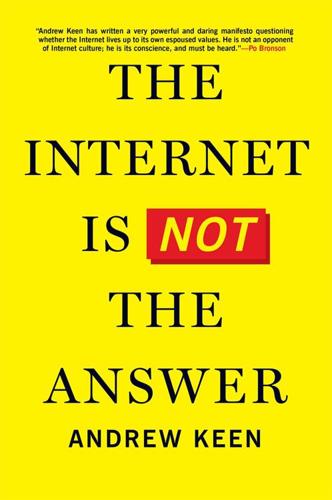
The Internet Is Not the Answer
by
Andrew Keen
Published 5 Jan 2015
We are drifting into a Benthamite world in which everything—from our fitness to what we eat to our driving habits to how long and how hard we work—can be profitably quantified by companies like Google’s smart home device manufacturer Nest, which is already building a lucrative business managing the electricity consumption of consumers on behalf of energy utilities.41 And with its Gross National Happiness Index and its secret experiments to control our moods, Facebook is even resurrecting Bentham’s attempt to quantify our pleasure and pain. In an electronic panopticon of 50 billion intelligent devices, a networked world where privacy has become a privilege of the wealthy, it won’t just be our televisions, our smartphones, or our cars that will be watching us.
…
As Kirkpatrick notes, McLuhan “is a favorite at the company” because “he predicted the development of a universal communications platform that would unite the planet.”92 Zuckerberg shares McLuhan’s narrative fallacy, seeing the Internet “as just this massive stream of information. It’s almost the stream of all human consciousness and communication, and the products we build are just different views of that.”93 One ominous 2009 Facebook project was thus the Gross Happiness Index, a classically utilitarian attempt to measure the mood of its users by analyzing the words and phrases that they publish on their Facebook page. Another was the even creepier 2012 company study that altered the news feeds of 700,000 Facebook users to experiment with their mood swings.94 Sergey Brin’s “big circle” of data is, for Mark Zuckerberg, the recursive loop of the social Web.
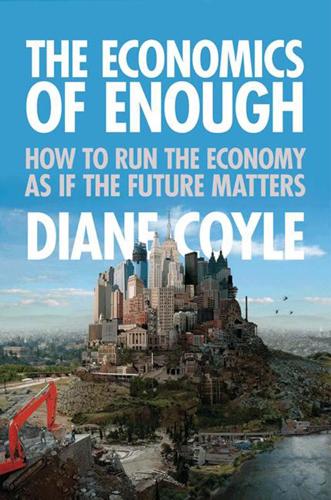
The Economics of Enough: How to Run the Economy as if the Future Matters
by
Diane Coyle
Published 21 Feb 2011
One response to this list of inadequacies is to produce an adjusted or alternative measure. A well-known example is the Index of Sustainable Economic Welfare (ISEW), originated by Herman Daly and John Cobb in 1989. The ISEW adjusts for the first three points above and therefore paints a much gloomier picture than the conventional economic statistics.16 “Gross National Happiness” is another contender.17 The most recent one of this type is the Happy Planet Index from the New Economics Foundation.18 All are similar in their emphasis on subtracting environmental impacts from GDP, and in showing next to no “progress” in recent decades. This is wholly because of the way they are constructed.
…
Barry Schwartz has written about The Paradox of Choice, whereby the great variety of goods and services available to Western consumers only makes us unhappy (despite the fact that consumers do buy a huge variety of products). The Kingdom of Bhutan has become an icon for its policy pursuit of Gross National Happiness, despite the country’s miserably poor human development indicators. However, recently the evidence on growth and happiness has been persuasively reassessed. As described below, recent research strongly suggests that there is no paradox, as growth and happiness are in fact usually positively linked.
…
See also markets goodwill, 150 Google, 195, 291 Gore, Al, 60, 74 governance: definition of, 16; growth and, 270, 275, 288, 292; institutions and, 242, 247, 255–58, 261–62; measurement and, 183, 186; sense of, 18; technology and, 17; trust and, 151, 162–65, 173–77; values and, 211, 217, 238; wider crisis of, 255–58 government: bailouts and, 1, 88, 91, 99–100, 145; communism and, 96, 182–83, 209–13, 218, 226, 230, 239–40; debt and, 3–4, 11, 84–86, 89–94, 98–105, 108, 150, 248, 271, 275, 286–87, 294; decentralization and, 246; defining, 15–16, 269; distrust of, 150, 157, 162, 172, 175–76, 247; failure of, 183, 240–44, 257; fairness and, 121, 123, 131, 136; first ten steps for, 294–98; growing challenge to authority and, 245–46; growth and, 268–72, 275–89, 293–97; happiness and, 22–26, 29–32, 38–40, 43–45, 50–54; higher social spending and, 243–44; influence of over social norms, 280–84; infrastructure spending and, 93; institutions and, 240–63; interest groups and, 242–43, 285; Intergovernmental Panel on Climate Change (IPCC) and, 59, 66–69, 82, 297; intrusive regulatory practices and, 244; market control and, 14–15; measurement and, 182–88, 191, 193, 196, 202–3, 206; nature and, 58–62, 65–71, 82–84; New Public Management and, 245–47; OECD countries and, 4, 11, 38, 52, 60, 68, 87, 93–94, 97–99, 112, 125–26, 160, 171, 201, 212, 243–44, 246, 273–74, 281, 283, 287, 291, 293; online access of, 287–88; as organizing economy, 218–19; police service and, 5, 35, 163, 193, 200, 247; policy and, 2 (see also policy); posterity and, 85–95, 98–113; as shareholder, 88; stimulus packages and, 91, 100–103, 111; values and, 14, 210–11, 215–20, 225–26, 229–30, 234 government debt, 3–4, 84, 150, 248; cradle-to-grave social systems and, 104; credibility and, 101; default on, 110–12; deficit spending and, 101, 203, 287; demographic implosion and, 95–100; Gross on, 287; higher retirement age and, 106–7; importance of, 100–104; increased saving and, 105–6; legacy of, 90–92; less leisure and, 106–7; migration and, 108–9; policy for, 104–12, 271, 275, 286–87, 294; posterity and, 85–86, 90–94, 98–100, 105, 108; productivity improvements and, 107–8; reduced consumption and, 105–6; retirement age and, 98; as social issue, 113; Stein’s Law and, 104; as time bomb, 104 Great Crash, 28 Great Depression, 3, 28, 35, 61, 82, 109, 150, 208, 281 Greece, 3, 260, 276, 287, 295 greed, 248; bankers and, 277–78; fairness and, 129; happiness and, 26, 34, 54; high salaries and, 130, 143–44, 193, 223, 277–78, 286, 296; option pricing theory and, 222; policy recommendations for, 277–79; posterity and, 88; trust and, 150; values and, 221–23 Green, Stephen, 279 greenhouse gases, 23, 29, 35, 59, 61–63, 68, 70–71, 83 green lifestyle, 55, 61, 76, 289, 293 Greenspan, Alan, 129 Gross, Bill, 287 gross domestic product (GDP), 10, 12; Easterlin Paradox and, 39–44; fairness and, 127; growth and, 270, 274, 281, 294; happiness and, 22–23, 28, 32–42, 51–53; logarithm of, 41–42; measurement and, 41–42, 187–91, 198, 201–8; nature and, 56–60, 75–76, 80–82; policy recommendations for, 270, 274, 281, 294; posterity and, 91–94, 98–99, 103, 108, 111; trust and, 157, 160; values and, 212, 218, 232 Gross National Happiness, 36, 40 growth: antigrowth alternative and, 39–44; capitalism and, 268, 275, 290, 293, 297; Commission on the Measurement of Economic Performance and Social Progress and, 37–38; community and, 27, 51, 65, 117–18, 137, 141, 152–54; comprehensive wealth and, 81–82, 202–3, 208, 271–73; consequences of inequality and, 135–36; consumption and, 280, 295; cultural suspicion of capitalist, 26–29; democracy and, 268–69, 285–89, 296–97; downgrading consumption and, 11; fairness and, 114–16, 121, 125, 127, 133–37; governance and, 270, 275, 288, 292; government and, 268–72, 275–89, 293–97; gross domestic product (GDP) and, 270, 274, 281, 294; happiness and, 9–12, 22–29, 32–44, 51–53; increasing affluence and, 12; Industrial Revolution and, 27, 149, 290, 297; of information, 205, 291; innovation and, 201–7, 271–73, 281, 290–92; institutions and, 258, 261, 263; limits to, 13, 190, 231; Manifesto of Enough and, 267–98; measurement and, 181–85, 188–90, 194, 201–5, 208; mercantile economy and, 27–28; morals and, 275–76, 279, 293, 295, 297; nature and, 56–59, 62–66, 69–72, 76, 79–82; new conventional wisdom on, 23–24; paradox of prosperity and, 174; as policy goal, 22; politics and, 33; population, 29, 63, 70, 81, 89, 95–96, 108, 168; posterity and, 90, 95, 97, 99, 102, 105–8, 111; productivity and, 189–90, 194, 199–201, 206–7 (see also productivity); public goods and, 185–86, 190, 199, 211, 229, 249, 261; statistics and, 270–74, 290–94; sustainability and, 240, 244, 248 (see also sustainability); trust and, 152–56, 160, 174; values and, 13, 210–13, 222, 231–36; welfare and, 9–12 Groysberg, Boris, 143 Gutenberg press, 7 Haidt, Jonathan, 45–49, 117 Haldane, Andrew, 174 Hall, Peter, 140–41 Hamilton, Kirk, 81 handcrafting, 11, 55 happiness: absorbing work and, 10, 48–49; anomie and, 48, 51; anxiety and, 1, 25, 47–48, 136–38, 149, 174; capitalism and, 25–29, 33, 45, 53–54; charitable giving and, 33; choice and, 10–11; coherence and, 49; Commission on the Measurement of Economic Performance and Social Progress and, 37–38; commuting and, 45–47; conflict in relationships and, 47; consumer electronics and, 36–37; consumption and, 22, 29, 45; as correct guide for life, 29–32; cultural suspicion of growth and, 26–29; Easterlin Paradox and, 39–44; efficiency and, 9, 29–30, 61; emotional response to, 21; fairness and, 53; formula for, 46; freedom and, 10, 13, 26, 42–44, 50–53; globalization and, 24; government and, 22–26, 29–32, 38–40, 43–45, 50–54; gross domestic product (GDP) and, 22–23, 28, 32–42, 51–53; Gross National Happiness and, 36; growth and, 9–12, 22–29, 32–44, 51–53; health issues and, 24, 33–38, 42–43, 48, 50; Human Development Index (HDI) and, 36; inequality and, 25, 36, 42, 44, 53; innovation and, 37; lack of control and, 47; literacy and, 36; measurement and, 35–39; mercantile economy and, 27–28; morals and, 22, 26, 30, 34, 43, 48–49; more money and, 56; movement of, 10; nature and, 56–59, 75–76, 80–84; new conventional wisdom on, 23–24; noise and, 47; philosophy and, 21, 27, 31–32, 49–50; politics and, 22–30, 33, 43–44, 50–54; productivity and, 27, 38, 42, 51; psychology of, 44–50; religion and, 32–33, 43, 50; sense of flow and, 48–49, 51; shame and, 47; Slow Movement and, 27–28, 205; social engagement and, 10; social welfare and, 25–26, 30–32, 35, 39–42, 50–53; statistics and, 35–42, 51–52; technology and, 24–25, 35–37, 44, 53–54; unemployment and, 56; utiltariansim and, 31–32; volunteering and, 46–49 Happiness: Lessons from a New Science (Layard), 39 Happy Planet Index, 36 Harvard, 100 Hayek, Friedrich von, 215–16 health care, 4–5, 11; fairness and, 137–43; happiness and, 24, 33–38, 42–43, 48, 50; institutions and, 247, 252–53; measurement and, 181, 188–93, 200, 207; Obama administration and, 285; policy reform and, 285, 290, 293; politics and, 269; posterity and, 89, 93–94, 97–99, 103, 106, 111–13; trust and, 172 hedonic treadmill, 40 Henderson, David, 68 Himalayan glaciers, 66–67 hippies, 27 Hirsch, Fred, 190, 213 Hobbes, Thomas, 114 HSBC, 279 Hugo, Victor, 131 human capital, 81, 203–4, 282 Human Development Index (HDI), 36 Hume, David, 120 Hungary, 239 hybrid cars, 61 hyperinflation, 110–11 Idea of Justice, The (Sen), 43 illegal downloading, 196–97 incandescent light bulbs, 59–60 income.
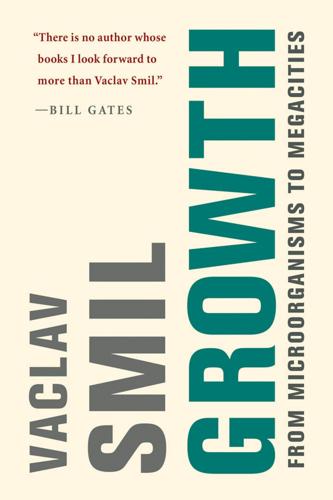
Growth: From Microorganisms to Megacities
by
Vaclav Smil
Published 23 Sep 2019
All of these attempts to fix GDP’s shortcomings have one thing in common: their valuations of natural capital or environmental services would be very different if they could monetize such fundamental changes as the loss of biodiversity and the biospheric impacts of anthropogenic climate change. As already noted in chapter 1, there is also a debate about replacing GDP with a measure assessing well-being, happiness, or subjective satisfaction with life, with Bhutan actually using its Gross National Happiness index. Easterlin’s (1974) initial examination of the link between GDP and happiness correctly noted that the happiness differences between rich and poor countries that might be expected on the basis of within-country differences based on economic status are not supported by international comparisons.
…
Perhaps the most interesting addition to this new accounting has been the quantifications of happiness or satisfaction with life. Small Himalayan Bhutan made news in 1972 when Jigme Singye Wangchuck, the nation’s fourth king, proposed to measure the kingdom’s progress by using the index of Gross National Happiness (GNH Centre 2016). Turning this appealing concept into an indicator that could be monitored periodically is a different matter. In any case, for the post-WWII US we have a fairly convincing proof that happiness has not been a growth variable. Gallup pollsters have been asking Americans irregularly how happy they feel since 1948 (Carroll 2007).
…
Global Footprint Network. 2017. Global Footprint Network. https://www.footprintnetwork.org/. Glynn, J. 1849. Rudimentary Treatise on the Construction of Cranes and Machinery for Raising Heavy Bodies, for the Erection of Buildings, and for Hoisting Heavy Goods. London: John Weale. GNH Centre. 2016. The story of GNH [Gross National Happiness]. http://www.gnhcentrebhutan.org/what-is-gnh/the-story-of-gnh/. Godwin, W. 1820. Of Population: An Enquiry Concerning the Power of Increase in the Numbers of Mankind, Being an Answer to Mr. Malthus’s Essay on That Subject. London: Longman, Hurst, Rees, Orme & Brown. Gog, J. R., et al. 2014.
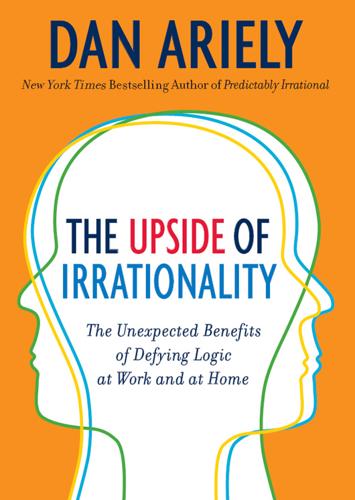
The Upside of Irrationality: The Unexpected Benefits of Defying Logic at Work and at Home
by
Dan Ariely
Published 31 May 2010
In our first experiment, we asked some participants to look at a list of three problems one at a time and generate their own proposed solution for each. (We called this the creation condition.) The problems were: Question 1: How can communities reduce the amount of water they use without imposing tough restrictions? Question 2: How can individuals help to promote our “gross national happiness”? Question 3: What innovative change could be made to an alarm clock to make it more effective? Once the participants finished generating their three solutions, we asked them to go back and rate each one on practicality and probability of success. We also asked them to tell us how much of their own time and money they would donate to promote their proposed solutions.
…
But even if their ideas weren’t superior to ours overall, it could have been that our participants’ notions fit better with their own unique perspectives of the world. This principle is called an idiosyncratic fit. As an extreme example of this, imagine that a devoutly religious individual answered the question “How can individuals help to promote our ‘gross national happiness’?” by suggesting that everyone attend religious services daily. A steadfast atheist might respond to the same question by suggesting that everyone give up religion and focus instead on following the right kind of diet and exercise program. Each person may prefer his or her idea to ours—not because he or she came up with it but because it idiosyncratically fits with his or her underlying beliefs and preferences.
…
Remember that each participant saw only three of these problems with our proposed solutions and came up with solutions for the remaining three. Problem 1: How can communities reduce the amount of water they use without imposing tough restrictions? Proposed solution: Water lawns using recycled gray water recovered from household drains. Problem 2: How can individuals help to promote our “gross national happiness”? Proposed solution: Perform random acts of kindness on a regular basis. Problem 3: What innovative change could be made to an alarm clock to make it more effective? Proposed solution: If you hit snooze, your coworkers are notified via e-mail that you overslept. Problem 4: How can social networking sites protect user privacy without restricting the flow of information?
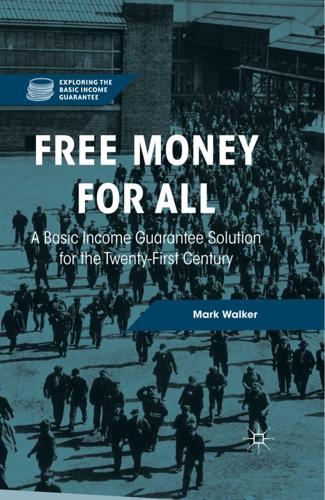
Free Money for All: A Basic Income Guarantee Solution for the Twenty-First Century
by
Mark Walker
Published 29 Nov 2015
Chapter 5 looks at how the revolution in robotics and advanced computers threatens the aim of full employment. It is argued that BIG is a good and necessary means to keep the peace: displaced workers will be angry, and justifiably so, if they do not reap at least some of the rewards of this economic revolution. Chapter 6 argues that BIG is the best policy in the economic realm to increase gross national happiness. The basic thought in this chapter is that a given dollar buys more happiness for the poor than the wealthy. Giving $1,000 to a homeless person will do more to boost his or her happiness than giving the same $1,000 to uber-rich people such as Warren Buffett or Bill Gates. The present distribution of wealth and income in the United States is not the most efficient for converting dollars to happiness.
…
To bring the point home to BIG, we can also see that taking half the income from someone earning $2,000,000 a year will reduce his BIG HAPPINESS 131 or her happiness by X, but redistributing in the manner described would add 100X, so the next gain would be 99X. It is this almost magical creation of happiness that pushes utilitarians to income redistribution. Without increasing the size of the economy one iota, we can increase gross national happiness (GNH). It may help here to contrast this thinking with the way economists long thought about the relationship between happiness and economic output, which was that gross domestic product (GDP) was a reasonable proxy for the average happiness of a nation.22 On this thinking, the way to improve GNH is to increase GDP.
…
Similarly, both parties, for whatever reason, have proven to be stalwarts against progressive changes, at least since the Regan era. What is needed is a party that looks to the future, rather than clings to the past. Consider the Happiness and Freedom Party (HFP) that has BIG as its central plank, along with universal health care, and other measures that are designed to increase the gross national happiness and freedom of the nation. One thing that offers a ray of hope is that, under the present system, candidates do not need a majority to win an election. In theory, under the present system, a candidate in a three-way race can win with 34 percent of the votes when the other two candidates have 33 percent each.
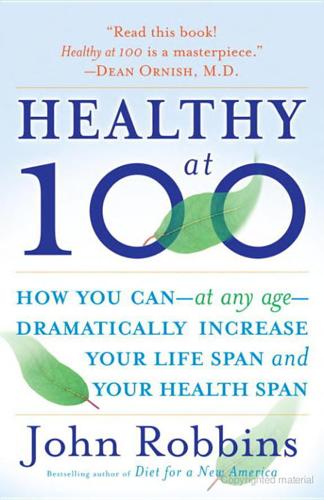
Healthy at 100: The Scientifically Proven Secrets of the World's Healthiest and Longest-Lived Peoples
by
John Robbins
Published 1 Sep 2006
In April 1987, Bhutan’s young monarch, King Jigme Singye Wangchuck, was interviewed by the Financial Times. Asked about his nation’s economic development, which was among the world’s lowest, he replied, “Gross National Happiness is more important than Gross Domestic Product.”13 Though Bhutan has its problems,14 King Wangchuck’s statement was not an idle remark. Under his leadership, Bhutan has made Gross National Happiness its official index for evaluating development. As a result, the guiding principles of all Bhutanese policies have been to ensure that prosperity is shared across society, that cultural traditions are honored, the environment is protected, and the government is kept responsive to the real needs of the people.
…
Most of their meals are centered on red rice, accompanied by chili peppers and other vegetables, all home-grown, with occasional cheese from local cows. There is not a single McDonald’s, Burger King, KFC, or Pizza Hut in the entire country.16 Perhaps the most remarkable part of Bhutan’s commitment to Gross National Happiness is a stunning dedication to preserving the country’s natural resources. While the forests of all its neighboring countries have been decimated in recent years, Bhutan retains the highest original forest cover of any nation on earth.17 The hunting of animals is prohibited, as is fishing in the rivers.
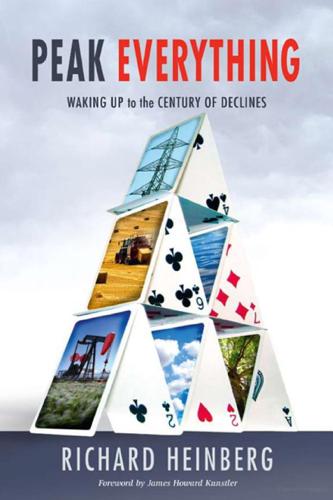
Peak Everything: Waking Up to the Century of Declines
by
Richard Heinberg
and
James Howard (frw) Kunstler
Published 1 Sep 2007
If GDP is set to decline relentlessly in a post-growth world economic regime, then we need a way to focus our collective attention on non-consumptive aspects of economic and civic life so as to motivate useful action in directions where progress is still possible. Fortunately, alternative economic indicators are beginning to garner attention in cities and nations around the world. I discuss the Genuine Progress Indicator (GPI) on page 17 of the Introduction, but it’s also important to mention Gross National Happiness (GNH). That term was coined in 1972 by Bhutan’s former King Jigme Singye Wangchuck to signal his commitment to building an economy that would preserve Bhutan’s Buddhist culture as the nation opened trade with the West. Canadian health epidemiologist Michael Pennock helped design GNH, and has advocated for the adoption of a “de-Bhutanized” version of it in his home city of Victoria, British Columbia.
…
Political Wellness: Indicated via direct survey and statistical measurement of political metrics such as the quality of local democracy, individual freedom and foreign conflicts. Contraction in population levels and consumption rates doesn’t sound like much fun, but a few decades of improvement in Gross National Happiness — potentially achievable under material circumstances that are by now unavoidable — should be an attractive notion to most people. The related idea that life can be better without fossil fuels is a core tenet of the Transition Town movement, which started in England in 2005 (I quote its founder, Rob Hopkins, on pages 135-136).
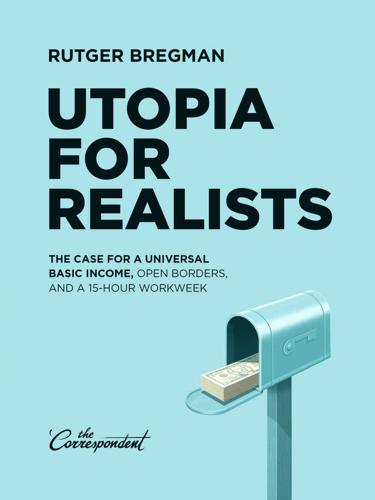
Utopia for Realists: The Case for a Universal Basic Income, Open Borders, and a 15-Hour Workweek
by
Rutger Bregman
Published 13 Sep 2014
But it’s precisely in a service-based economy that simple quantitative targets fail. “The gross national product […] measures everything […] except that which makes life worthwhile,” said Robert Kennedy.25 It’s time for a new set of figures. As long ago as 1972, the Fourth Dragon King of Bhutan proposed a switch to measuring “gross national happiness,” since GDP ignored vital facets of culture and well-being (for starters, knowledge of traditional songs and dances). But happiness seems no less one-dimensional and arbitrary a quality to quantify than GDP; after all, you could be happy just because you’re three sheets to the wind – ce qu’on ne voit pas.
…
If the Land of Plenty is a place where everybody is happy, then it’s also a place steeped in apathy. Had women never protested, they would never have gained the vote; had African Americans never rebelled, Jim Crow might still be the law of the land. If we prefer to salve our grievances with a fixation on gross national happiness, that would spell the end of progress. “Discontent,” said Oscar Wilde, “is the first step in the progress of a man or a nation.” So how about some other options? Two candidates are the Genuine Progress Indicator (GPI) and the Index of Sustainable Economic Welfare (ISEW), which also incorporate pollution, crime, inequality, and volunteer work in their equations.
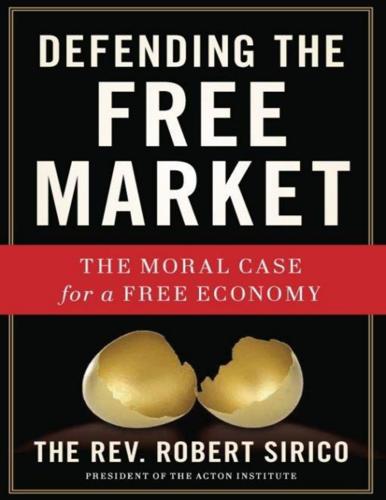
Defending the Free Market: The Moral Case for a Free Economy
by
Robert A. Sirico
Published 20 May 2012
In writing these words, the pope was echoing the vision of the Second Vatican Council’s document Gaudium et Spes: “Since property and other forms of private ownership of external goods contribute to the expression of the personality, and since, moreover, they furnish one an occasion to exercise his function in society and in the economy, it is very important that the access of both individuals and communities to some ownership of external goods be fostered. Private property or some ownership of external goods confers on everyone a sphere wholly necessary for the autonomy of the person and the family, and it should be regarded as an extension of human freedom.” 5 See chapter 5 of Arthur Brooks’s Gross National Happiness (Basic Books, 2008) and chapters 3 and 4 of Brooks’s The Battle: How the Fight between Free Enterprise and Big Government Will Shape America’s Future (Basic Books, 2010). Chapter Seven 1 Pope Benedict XVI, Encyclical Letter Deus Caritas Est, 2005, no. 26b, http://www.vatican.va/holy_father/benedict_xvi/encyclicals/documents/hf_ben-xvi_enc_20051225_deus-caritas-est_en.html. 2 Quoted in Michael B.
…
Simon, The Ultimate Resource 2 (Princeton University Press, 1996), 35–36. 17 On elephants, see “Using Market Incentives to Save the Elephants,” Community Markets for Conservation, 2010, http://www.itswild.org/market-incentives-to-save-elephants.On tigers, see Michael ’t Sas-Rolfes, “Who Will Save the Tiger?” PERC Policy Series, PS–12, February 1998, http://www.perc.org/files/ps12.pdf. 18 Richard L. Stroup, “Endangered Species Act: Making Innocent Species the Enemy,” PERC Policy Series, PS–3, April 1995, http://www.perc.org/articles/article648.php. Chapter Ten 1 Arthur Brooks, Gross National Happiness (Basic Books, 2008). See in particular chapter 5, “Does Money Buy Happiness?” 2 John Dalberg-Acton, Selected Writings of Lord Acton, vol.3, Essays in Religion, Politics, and Morality, ed. J. R. Fears, (Liberty Classics, 1988), 613. 3 Mother Teresa, No Greater Love, ed. Becky Benenate and Joseph Durepos (New World Library, 1989), 97–98. 4 Alexis de Tocqueville, Democracy in America (1835, 1840), trans.
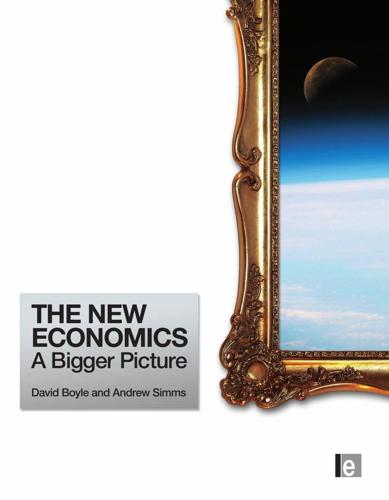
The New Economics: A Bigger Picture
by
David Boyle
and
Andrew Simms
Published 14 Jun 2009
That means, at least in the UK, we need to consign the GDP figures to some dusty corner of the Treasury, released on a quiet day in Parliament, and put centre stage in the annual budget statements a detailed set of national well-being accounts that would allow us to understand well-being better and track changes over time. A number of possible measures are already available, including the Index of Sustainable Economic Welfare and the Happy Planet Index: Bhutan already measures Gross National Happiness. Like so much else that is vital to our futures, this is something the government will find it hard to achieve by itself. The well-being figures will have to be treated as important by opposition politicians and media alike: they must fight their political battles over them as evidence of progress.
…
(John Kenneth) 41, 51 gambling 14–15, 152 Gandhi, Mohandas (Mahatma) 18, 19, 21, 110, 112 Gates, Bill 141 Gates, Jeff 141–2 GDP (gross domestic product) 10, 32, 36–40, 42, 43, 54, 79 alternatives to 40–2, 43 bad measure of success 10, 37, 55, 78 INDEX global 141 UK 4 see also growth genetically modified crops see GM crops Germany 33, 50, 58 Gladwell, Malcolm 68 Global Barter Clubs 57, 58 global commons 113, 148 global currencies 56, 61, 120, 147–8 global greenback 61 global warming 3, 3–4, 115, 155 see also climate change globalization 8, 28, 143, 153 see also interdependence GM (genetically modified) crops 91, 117, 119, 140–1 Goetz, Stephan 124 gold standard 8, 143 Good Life, The (BBC sitcom) 69 goods, local 19, 109, 110 Goodwin, Fred 142 government borrowing 37–8, 49–50, 58, 62, 141 governments 2, 28, 116, 129, 158 creating money 58–9, 62, 90 propping up banking system 6, 7 Graham, Benjamin 120 Grameen Bank 26, 143–4, 153 Great Barrington (Massachusetts) 57, 151–2, 153 Great Depression 3, 36, 57 green bonds 157 green collar jobs 106, 157 Green Consumer Guide, The (Elkington and Hailes, 1988) 26, 69, 72 green economics 23, 100, 117 green energy 26, 97, 102–3, 114, 156, 157 Green New Deal 156–8 green taxation 153 greenhouse gas emissions 3–4, 115, 148 gross domestic product see GDP Gross National Happiness 43 growth 2, 11, 12–13, 23, 36–7, 38–40, 42, 43 185 bad measure of success 10, 158 maximizing 25 and poverty 4, 39–40, 81–2 and progress 39, 78 wealth defined in terms of 32 and well-being 4–5 see also GDP guilds 80, 80–1 happiness 12, 18, 29, 41, 43, 45–6 Happy Planet Index 32–3, 34, 43 Hard Times (Dickens, 1854) 36 HBOS 7 health 46, 72, 78, 96, 115, 129 health costs 117 healthcare 13, 33, 44 hedge funds 5, 7, 97, 120 Helsinki (Finland) 102 HIV/AIDS 70, 111, 135, 148 Honduras 139, 141 house prices 36, 46, 79, 83, 91, 126–7, 151 London 53, 54, 91 see also mortgages Howard, Ebenezer 105, 158 HSBC 5 human interaction 67–8, 74 human needs 20, 24, 67, 86 human rights 110–11, 116, 147 ill-health 35, 38, 46 ‘illth’ 29, 35 IMF (International Monetary Fund) 27, 82, 91, 135–6, 139, 143, 147, 147–8 incomes 24, 37, 43, 44, 78, 79, 81 and happiness 45–6 inequalities 37, 81, 82, 142 of poorest 4, 81, 82, 112, 142 Index of Sustainable Economic Welfare see ISEW India 82, 91, 110, 119, 136, 139–40, 153 indigenous knowledge 82, 117 inequality 4, 81–2, 96, 112–13, 116 inflation 8, 22, 58, 90 information technology 58, 59, 115 186 THE NEW ECONOMICS intellectual property 82, 91, 110, 113, 116, 117 interdependence 111–20, 135–8 Keynes on 19, 109, 110, 115, 143 see also globalization interest 8, 11, 11–12, 58, 77, 157 interest rates 144, 144–5 interest-free money 43, 73, 84, 90 intergenerational equity 25, 117 international bankruptcy 147 International Monetary Fund see IMF investment 14, 45, 53, 60, 104, 118, 137–8 ethical 26, 69–70, 74, 154 involvement 71, 75, 128–30 Iraq 49, 60, 136 ISEW (Index of Sustainable Economic Welfare) 40–1, 43, 78 Islamic banking 58, 90, 146 islands, small 31–2, 33–4 Italy 33, 119–20, 138 Ithaca hours currency 57, 58 It’s a Wonderful Life (film, Capra, 1946) 38 Jacobs, Jane 56, 110, 126 Jaffe, Bernie 126 Japan 26, 50, 91, 113, 119, 128 Jefferson, Thomas 18, 20 Jersey 52, 53 Jones, Allan 103 Jubilee Debt campaign 137 junk bonds 1, 142–3 just-in-time 123–4, 155 Keynes, John Maynard 2, 13–14, 15, 17, 21, 37, 55 on interdependence 19, 109, 110, 115, 143 international currency 61, 120 on local production 19, 109, 110 on ‘practical men’ as ‘slaves of some defunct economist’ 10, 35, 67, 87, 159 Keynesian economics 8, 18, 22, 27, 28 Kinney, Jill 130 Knowsley (Merseyside) 104 Kropotkin, Peter 18 Krugman, Paul 52 land 19, 82, 96 land tax 43 landfill 97, 98, 100, 107 Layard, Richard 41 Lehigh Hospital (Pennsylvania) 129 Letchworth Garden City (Hertfordshire) 105 lets (local exchange and trading systems) 57 liberalism 18, 19, 27 Lietaer, Bernard 56, 61, 120 life 19, 29, 55, 69, 86, 91 need for meaning 42, 75 life expectancy 31, 32–3, 82 life poverty 82–3 life satisfaction 31, 33, 41, 42 Lima (Peru) 130–1 Linton, Michael 57, 58 Living Economy, The (Ekins, 1986) 24–5 LM3 (Local Money 3) 60, 104–5 loans see debt Local Alchemy programme 152–3 local circulation of money 103–5, 107, 124, 151–2 local currencies 26, 56, 57, 58, 59, 60, 151–2, 153 local economies 26, 81, 85, 86, 105–7, 118, 124, 133 local exchange and trading systems (lets) 57 local food 2, 118, 119–20, 151 local governments 6, 44, 60 local life 4, 81, 158 Local Money 3 see LM3 local production 109, 116, 118 local savings schemes 61 local shops 75, 82–3, 104, 124, 124–5, 126, 151 supermarkets and 80, 105, 125 local wealth 14, 53–4 localization 155–6, 159 London 52, 53, 61, 97, 102, 103 house prices 53, 54, 91 traffic speed 65–6 INDEX London Underground 147 Lutzenberger, Jose 26 Macmillan Cancer Care 88–9 McRobie, George 22, 24 mainstream 4–5, 26, 154, 159–60 see also economics Malawi 135–6, 137 Malaysia 51 Manchester United 155 manipulated debt 139–41 markets 10, 12, 51, 70, 158 financial 1–2, 52, 53, 55, 138, 154–5 free 22, 85, 112–13 new economics and 67, 72–5, 85 Marsh Farm estate (Luton) 104–5, 152–3 Maslow, Abraham 67 materialism 12, 46–7 Max-Neef, Manfred 24 Maxwell, Robert 143 MDGs (Millennium Development Goals) 39, 136 Mead, Margaret 129 meaning, need for 42, 75 measurement problem 36–40 measuring 12, 42, 55, 85 success 2, 8, 10, 43, 44, 55, 154, 156, 158 value 10, 15, 29, 53, 59, 115 wealth 32, 37–40, 53–4 well-being 4, 18, 32–3, 34, 43 mechanics, Cuban 95–6, 97 medieval economics 78–80, 80–1 mega-rich 120, 141, 142 mental health 4, 35, 36, 46, 68, 83 Merck 99 micro-credit 26, 143–4, 145, 146, 151, 153 Milkin, Michael 142 Millennium Development Goals see MDGs minimum wage 92 misery, of UK young people 35–6 Mishan, E.J. 40 Mogridge, Martin 65–6, 74 Mondragon (Spain), cooperatives 153 money 8, 11, 13, 18, 27, 29, 36, 95 187 as a bad measure 10, 15, 18, 53, 59, 90, 143, 154 creating 7, 56–7, 58–9, 84, 90, 120, 138, 147 designed for money markets 53 economics and 25, 127 externalities 35 and life 55, 86, 154, 159 local circulation 103–5, 107, 124, 151–2 means to an end 15 new economics view 15, 59–60, 89 new ways of organizing 56–60 re-using 103–5 replacing with well-being 42 slowing down 51–2, 60 too little 57 types of 14–15, 57, 59, 120 and value 10, 15, 53, 59 and wealth 15, 19, 32, 38, 78 and well-being 18, 21, 81 see also GDP; growth; price; trickle down money flows 26, 50–2, 60, 103–5, 107, 124, 136–8 money markets 1–2, 52, 53, 55, 138, 154–5 money poverty 81–2 money system 7–8, 50–6, 60 monopolies 8, 20, 83, 84–6, 89–90, 125–6, 133, 146 Monsanto 85, 140 moral philosophy 12, 19, 72–3 morality 8, 18, 28, 74, 115 economics and 12, 19, 22 Morris, William 18, 78, 151 mortgages 1, 4, 5–6, 6, 7, 46, 91 working to pay 46, 68, 73, 77–8, 79, 81, 83, 84, 89, 126–7, 140 see also house prices motivations 4–5, 11, 67–9, 70, 71, 72, 73, 75 multinationals 14, 61, 84–5, 90, 137–8, 139, 143 multiple currencies 58, 59–60, 60, 90 multiplier effect 103–5 Murdoch, Rupert 52 188 THE NEW ECONOMICS Myers, Norman 117 Nanumaea (Tuvalu) 34 national accounting 37–8, 38–9 national debt 49–50, 83, 84, 139, 141 national grid 102, 106 National Health Service see NHS natural capital 3, 99 natural resources 22, 40, 43, 84, 97–8 needs 20, 24, 25, 67, 75, 86 basic 25, 89, 91–2, 115 nef (the new economics foundation) 24, 26, 45, 71, 104, 131–2, 145 Local Alchemy programme 152–3 see also Happy Planet Index; LM3 ‘neo-liberal’ policies 8, 27–8 Nether Wallop (Hampshire) 80, 81 The Netherlands 58, 106, 138 New Century 5 New Deal for Communities 152 New Deal (US) 157 new economics 2–3, 9–10, 18–19, 28–9, 59, 153–4, 159–60 Cuba as object lesson 96–7 history of 9–10, 18–19, 21–7 and the mainstream 26 as new definition of wealth 15 principles 35, 157–8 new economics foundation see nef New York City 52, 128 News Corporation 52 NHS (National Health Service) 87, 114, 131 Northern Rock 6 Nottingham 35 Nu-Spaarpas experiment 106 Obama, Barack 154, 157 obsolescence, built-in 98, 100, 101 odious debt 146 offshore assets 136–7 offshore financial centres 52–3, 61 oil 3, 96, 115, 117, 155 Oil Legacy Fund 157 orchards 111, 112, 115, 124 organic food 26 Ostrom, Elinor 127 out-of-town retailing 75, 80, 123, 132 overconsumption 32, 40, 44, 113 Owen, Robert 57 ownership 11, 46, 60, 91, 118, 156 paid work 87–9, 92 palm oil 112 Partners in Health 130–1 peak oil 3, 96, 117, 155 Pearce, David 25–6, 98, 115 Peasants’ Revolt (1381) 18 pensions 7, 44, 61, 73, 155 people, as assets 15, 57–8, 128–9, 130, 131 permit trading 45, 117–18, 148 personal carbon allowances 45, 117–18 personal debt 7, 36, 83–4, 91, 140, 141 Petrini, Carlo 119–20 Pettifor, Ann 135, 137 philanthropy 130, 133 policy makers 28, 35, 73, 87, 90 assumptions of 67, 68, 73, 128 Keynes on 10, 35, 67, 87, 159 political agenda 42–7 politicians 11, 54, 159 politics, new 159 pollution 10, 35, 37, 40, 98, 112, 114 by GM genes 91, 117, 119 poor 29, 145–6 Porritt, Jonathon 23 post-autistic economics 9–10, 71–2 poverty 4, 23, 35, 79–80, 81–2, 127 economic system and 13–14, 18, 29, 81–2, 154 interdependence leading to 111–15 reduction 39–40, 51–2, 61, 116, 124–5 poverty gap 4, 52–3, 78, 82 power 10, 12, 25, 28, 53, 141–2 corporate 20, 28, 85 monopoly power 83, 89–90, 125–6, 146 power relationships 29, 114 price 10, 67, 72, 73, 115, 153 Price, Andrew 132 INDEX prices 80, 156, 158 Pritchard, Alison 23 product life cycle 97–8, 101 professionals 130, 132, 133, 159 profits 12, 13, 99 progress 36, 37–8, 39, 43, 44, 77–8, 81–2, 84 Proudhon, Pierre-Joseph 120 psychology, economics and 67–8, 71, 72–3 public goods 148 public sector commissioning 131–2, 133 public services 45, 74, 127–32, 158 public transport 66, 74 ‘purchasing power parity’ 81 Putnam, Robert 126–7, 127–8 189 retirement 46, 73 see also pensions rewarded work 88 rewards 7, 8, 11, 25, 92, 141, 142 roads 66, 115 Robertson, James 17, 22, 23, 55, 145 Rockefeller, John D. 28 Roman Catholic church 19, 21, 117 Roosevelt, Eleanor 96 Roosevelt, Franklin Delano 157 Rotterdam (The Netherlands) 106 rubbish 97–105 Rupasingha, Anil 124 Rushey Green surgery (London) 131 Ruskin, John 17–18, 18, 29, 35, 78, 81 Russia 110 qoin system 58 rainforests 4, 10, 111, 112 ‘rational man’ assumption 10, 71 RBS 142 re-use 97, 99, 100–5 Reagan, Ronald 22, 27 real money, generating 120 ‘real’ wealth 2, 32, 36–40 reciprocity 44, 128, 128–30, 133 see also co-production recycling 97, 98, 100–1, 105–6, 106–7 redistribution 19, 27, 52, 96 regeneration 27, 104, 105, 107, 116, 124, 128 regional currencies 58, 59, 60 regulation 129, 156 competition 85, 113, 125, 126, 133 financial sector 53, 85, 157 relationships 4, 69, 83, 128–30 remittances 137 Rendell, Matt 33 renewable energy 26, 97, 102, 102–3, 114, 156, 157 repair 97, 98, 101, 105, 107 resources 32, 43, 97–8, 99, 100–1, 114, 158 local 25, 115 natural 22, 40, 43, 84, 97–8 St Louis (Missouri) 131 Samoa 34 Sane (South African New Economics) 58 saving seeds 91, 117, 119, 141 savings 7, 46, 73, 90, 157 schools 131 Schor, Juliet 83 Schumacher, E.F.
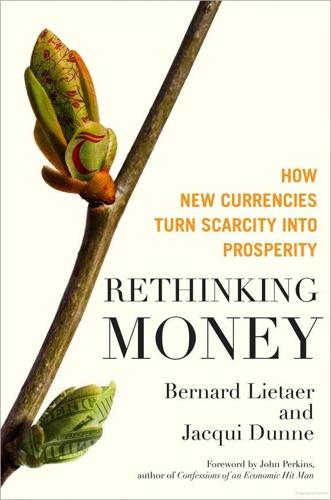
Rethinking Money: How New Currencies Turn Scarcity Into Prosperity
by
Bernard Lietaer
and
Jacqui Dunne
Published 4 Feb 2013
It would illustrate how TimeBanking can be used in many ways, including social projects with many others throughout the world and including Hub members. The goal is to be “an exploration of the heart of happiness,” which is compassion, community, and deep connections between each other, envisioning ways to move beyond GDP to Gross National Happiness based on other metrics.” 132 PROSPERITY FRIENDLY FAVORS One of the most consistent outcomes reported by participants involved in cooperative currency initiatives is the development of a renewed sense of community and support from that community. Perhaps surprisingly, as a result of using a currency to acknowledge caring, assistance, or even random acts of kindness, the need to use the very currency that cultivated those behaviors and in a way kept score dissipates over time.
…
See Trash Garden, 151, 161 Geuro, 149 GI Bill, 153 Gift, 47– 49, 82 Glass-Steagall Act, 69–70 Globalization, 86, 221 Global Trading Network, 182–183 Golden ghetto, 19 Gold standard, 24–26; Free Lakota Bank and, 113; homogeneity and, 65– 66; as reference currency, 140; Terra and, 135; in Utah, 201; in Weimar Republic, 236n10 INDEX Goodwill: in Friendly Favors, 132–133; TimeBank and, 82 Google, 200 Google Wallet, 115–116 Government Accountability Office (GAO), 170–171 Government debt, 42– 43, 70, 145–147, 227n21 Gramm-Leach-Bliley Act, 70 Great Depression, 24, 175, 180–181; GDP and, 35; GNP and, 33– 34; WIR and, 99, 102 Greece, 149 Greed, 4 Green products, 152, 186 Greenwashing, 198 Gross domestic product (GDP), 34– 35, 131, 146 Gross National Happiness, 131 Gross national product (GNP), 33– 35 Growth pressure, 2, 42– 43, 52– 53 Happy Futures Global Challenge, 131 Hate group, 182 Health care, 14, 16; free clinic, 162–165; in Mae Hong Son, 205 Helplessness, 17 High-powered money, 40 Hitler, Adolf, 180, 236n10 Holacracy, 191 Homogeneity, 65– 66, 86 Honey, 130–131 HOURS, 162–165, 163 Housing: buying, 110–111, 142–143; improvised, 141 Hubbee, 130–131 Hub Network, 130–131 Human construct, 2, 13, 217 Human right, 49 Human Right, A, 165–166 Hyperinflation, 70, 176, 178–179 ICCO, 105 Identity, 19 Immediacy.
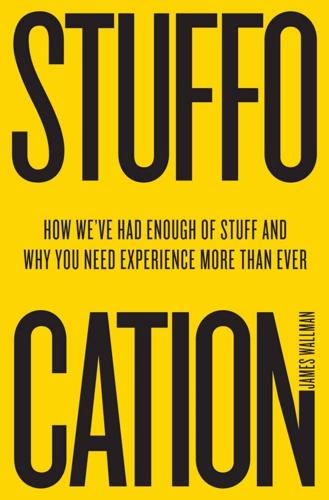
Stuffocation
by
James Wallman
Published 6 Dec 2013
They are all a bunch of splitters – because not only do they not agree with each other, they have all bypassed the other, internationally sanctioned challengers of GDP as measures of progress, like the Organisation for Economic Co-operation and Development (OECD)’s Better Life Index, based on eleven topics, the UN’s Human Development Index (HDI), featuring three dimensions and four indicators, and the granddaddy of all wellbeing measures: Bhutan’s Gross National Happiness (GNH), which was coined by Bhutan’s Dragon King in 1972 and is based on four “pillars”. It is all, as you can see, a very long way from the simplicity of GDP’s headline figure, a simple number that tells us if things are good, bad, up, down, and better, or not, than our neighbours. And we are still a long way from finding a dominant method for measuring society’s progress, as GDP does for economic progress.
…
Useful websites for progressive measures of social progress include: www4.hrsdc.gc.ca for Canada's Indicators of Well-being in Canada (IWC); uwaterloo.ca/canadian-index-wellbeing for The Canadian Index of Wellbeing (CIW); Australian Bureau of Statistics's www.abs.gov.au for Measuring Australia's Progress (MAP); www.oecdbetterlifeindex.org for the Organisation for Economic Co-operation and Development (OECD)’s Better Life Index; hdr.undp.org for the UN’s Human Development Index (HDI); www.grossnationalhappiness.com for Bhutan’s Gross National Happiness (GNH); and www.stateoftheusa.org for The State of the United States of America (SUSA). “Barry Schwartz recently proposed a psychological parallel to the Council of Economic Advisers that was created in 1946, a ‘Council of Psychological Advisers for the US President’.” Source: Barry Schwartz, “Move Over Economists: We Need a Council of Psychological Advisers”, The Atlantic, 12 November 2012.

The Age of Stagnation: Why Perpetual Growth Is Unattainable and the Global Economy Is in Peril
by
Satyajit Das
Published 9 Feb 2016
It measures neither our wit nor our courage; neither our wisdom nor our learning; neither our compassion nor our devotion to our country; it measures everything, in short, except that which makes life worthwhile.3 As the European debt crisis gathered momentum, French president Nicolas Sarkozy lamented GDP fetishism, lashing out at “a cult of figures.” He commissioned Nobel Prize–winning economists Joseph Stiglitz and Amartya Sen to develop a new measure, the gross national happiness championed by Bhutan, which would take into account the quality of health services, welfare systems, leisure, and intergenerational issues. But like GDP, gross national happiness is difficult to measure. The enthusiasm for it was, in reality, based on the president's desire to boost France's moribund economic performance, especially relative to the US. In 2014, Europeans started to include drugs, prostitution, and other unreported businesses in GDP calculations.
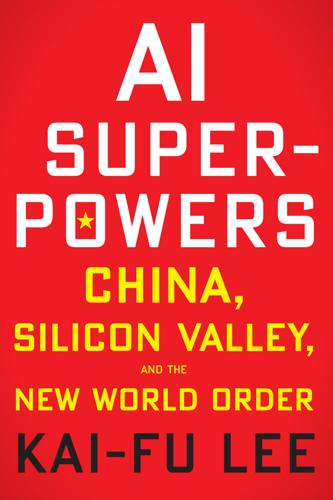
AI Superpowers: China, Silicon Valley, and the New World Order
by
Kai-Fu Lee
Published 14 Sep 2018
Chinese culture can also be a source of wisdom when it comes to caring for elders and in fostering intergenerational households. As public policy and personal values blend, we should really take the time to study new experiments in defining and measuring progress, such as Bhutan’s decision to pursue “Gross National Happiness” as a key development indicator. Finally, our governments will need to consistently look to one another in evaluating thorny new tradeoffs in data privacy, digital monopolies, online security, and algorithmic bias. In tackling these issues, we can learn much from comparing the different approaches taken by regulators in Europe, the United States, and China.
…
See wealth and class inequality See also business AI; human coexistence with AI Edison, Thomas, 13, 86 education employment and, 205 OMO-powered, 121–24 revamping, 228–29 social investment stipend and, 221–22 Einstein, Albert, 103 electrification, compared to AI, 13–15, 25, 50, 86, 149–50, 152, 154, 228 Element AI, 111 engineering bottlenecks, 158 enterprise software, 111–12 Estonia, 137 European Union, 124–25, 229 expertise to data, transition from, 14, 15, 56 expert systems, 7–8 F F5 Future Store, 163 Face++, 90, 117 Facebook Cambridge Analytica and, 107–8, 125 Chinese companies compared to, 28 Chinese researchers at, 90 cloning of, 22–23, 24, 31, 32–33 deep-learning experts and, 11 as dominant AI player, 83, 91 Face++ and, 90 global markets and, 137 iFlyTek compared to, 105 innovation mentality at, 33 monopoly of social networks, 170 resistance to product modifications, 34 split with Messenger, 70 Tencent compared to, 109 top researchers at, 93 U.S. digital world dominance and, 2 Facebook AI Research, 91 facial recognition AI chips and, 96 Apple’s iPhone X and, 117 Chinese investment in, 99 device security and, 117 education, AI-powered, and, 122 Face++ and, 90, 117 mobile payments and, 118 privacy and, 124 public transportation and, 84 fake news detection, 109 Fanfou (Twitter clone), 23, 46 Fermi, Enrico, 85, 103 financial crisis (2008), 46, 100, 165, 205 financial sector, 111, 112–13, 116 Fink, Larry, 215–16 Fo Guang Shan monastery, 187, 218–20 “Folding Beijing” (Hao), 144–45, 172, 230 food delivery, 69, 72, 79 Forbidden City, 29 Ford, 135 Ford, Martin, 165 4th Paradigm, 111 four waves of AI, 104–39 autonomous AI, 105–6, 128–36 business AI, 105–6, 110–17 economic divides and, 145 global markets and, 136–38 internet AI, 105–6, 107–10 perception AI, 105–6, 117–28 France, 20, 169 freemium revenue model, 36 Frey, Carl Benedikt, 158 Friendster, 22 G Gates, Bill, 33 general AI, 10, 13 General Data Protection Regulation, 124–25 general purpose technologies (GPTs), 148–55 gig economy, 164 global AI markets, 136–38 global AI story, 226–32 AI future without AI race, 227–28 global wisdom for AI age, 228–29 hearts and minds, 231–32 writing, 230 global economic inequality, 146, 168–70 globalization, 150 GMI (guaranteed minimum income), 206–7 Go (game), 1–2, 4, 5, 167 going light vs. going heavy, 71–73, 76–77, 209 Google AI chips and, 96 AlphaGo and, 1, 2, 11 Baidu compared to, 37, 38, 109 China at time of founding of, 33 Chinese entrepreneurs compared to, 24–25 Chinese market and, 39 data captured by, 77 as dominant AI player, 83, 91, 93–94 elite expertise at, 138–39 Europe’s fining of, 229 Face++ and, 90 global markets and, 137 grid approach and, 95 iFlyTek compared to, 105 innovation mentality at, 33 internet AI and, 107, 109 mobile payments and, 75 monopoly of search engines, 170 vs. other technology companies, 92–94 resistance to product modifications, 34 self-driving cars and, 131–32, 135 TensorFlow, 95, 228 top researchers at, 93 U.S. digital world dominance and, 2 See also DeepMind Google Brain, 45 Google China, 29–30, 31–32, 37–38, 41, 52, 57 Google Wallet, 75, 76 GPTs (general purpose technologies), 148–55 Grab, 137 great decoupling, 150, 170, 202 grid approach, 94–95 “Gross National Happiness,” 229 ground-up disruptions and job threats, 162–63, 164 Groupon, 23, 24, 45–46, 47–48, 49 Grubhub, 72 guaranteed minimum income (GMI), 206–7 guiding funds, 63, 64, 98–99 Guo Hong, 51–52, 56, 61–62, 63, 64, 68 H Hall of Ancestor Worship, 29–30 Hangzhou, China, 75, 94, 99 Hao Jingfang, 144–46, 168, 172, 230 Harari, Yuval N., 172 hardware innovation, 125–28 Hassabis, Demis, 141 Hawking, Stephen, 141 healthcare, 103, 113–15, 116, 195, 211–13.
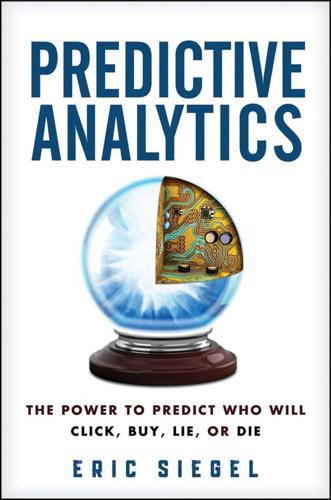
Predictive Analytics: The Power to Predict Who Will Click, Buy, Lie, or Die
by
Eric Siegel
Published 19 Feb 2013
The leading story of this chapter is from this research: Eric Gilbert and Karrie Karahalios, Department of Computer Science, University of Illinois at Urbana–Champaign, “Widespread Worry and the Stock Market,” Association for the Advancement of Artificial Intelligence (www.aaai.org), March 12, 2010. http://comp.social.gatech.edu/papers/icwsm10.worry.gilbert.pdf. Governments such as Bhutan’s measure mass mood, e.g., via their gross national happiness index, as a means to track prosperity: Jyoti Thottam/Thimphu, “The Pursuit of Happiness,” TIME, Vol. 180, No. 17, October 22, 2012. www.time.com/time/magazine/article/0,9171,2126639,00.html. Can blogs and tweets predict the future?: Jim Giles, “Blogs and Tweets Could Predict the Future,” New Scientist Online, June 21, 2010. www.newscientist.com/article/mg20627655.800.

Lonely Planet's Best in Travel 2020
by
Lonely Planet
Published 21 Oct 2019
Expect masked dances featuring fearsome deities, mystical music, clowns armed with wooden phalluses and just a little mountain magic. • Take a spectacular trek – even in Bhutan’s fast-growing capital, mountain trails are just minutes away, offering perfumed air and serene, sublime silence. ‘The people of Bhutan have a great philosophy: we’re the first carbon- negative country, and gross national happiness is more important to us than gross national product.’ -Ugyen Tshering, guide and driver TIME YOUR VISIT March to May and September to November are peak season in Bhutan, coinciding with the best weather and the clearest mountain views. Deep winter (November–March) can be bitterly cold, but there’ll be fewer tourists and savings to be made; the June–August monsoon brings cloudy skies and leeches on mountain trails.

Lonely Planet Lonely Planet's Best in Travel 2022
by
Lonely Planet
Published 26 Oct 2021
Expect masked dances featuring fearsome deities, mystical music, clowns armed with wooden phalluses and just a little mountain magic. • Take a spectacular trek – even in Bhutan’s fast-growing capital, mountain trails are just minutes away, offering perfumed air and serene, sublime silence. ‘The people of Bhutan have a great philosophy: we’re the first carbon- negative country, and gross national happiness is more important to us than gross national product.’ -Ugyen Tshering, guide and driver TIME YOUR VISIT March to May and September to November are peak season in Bhutan, coinciding with the best weather and the clearest mountain views. Deep winter (November–March) can be bitterly cold, but there’ll be fewer tourists and savings to be made; the June–August monsoon brings cloudy skies and leeches on mountain trails.
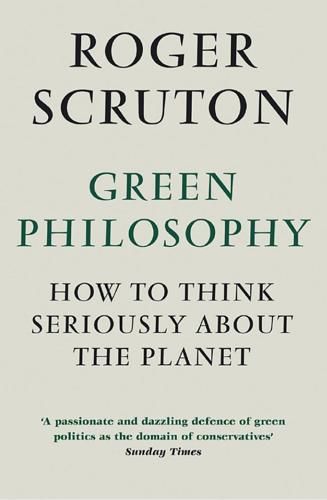
Green Philosophy: How to Think Seriously About the Planet
by
Roger Scruton
Published 30 Apr 2014
The same is true for GHG emissions per real dollar of GDP (although there is only data available for 1990–2008) and carbon dioxide emissions per real dollar of GDP (decreased 65% from 1949 to 2009). 353 Fred Hirsch, Social Limits to Growth, Cambridge, MA, 1976. 354 P. M. Vitousek, et al., ‘Human Appropriation of the Products of Photosynthesis’, BioScience, 36.6, June 1986, pp. 368–73. See the discussion of this article in Sagoff, op. cit., pp. 169–74. 355 See Arthur Brooks, Gross National Happiness, New York, 2008. 356 The point is vigorously made in Goldsmith, op. cit. 357 J. S. Mill, Principles of Political Economy, book 4, ch. 6, ‘Of the Stationary State’, London, 1848. 358 Herman Daly, Steady-State Economics, San Francisco, 1977; Beyond Growth, Boston, 1996. 359 Ridley, op. cit., p. 249, dismisses it as ‘Pareto piffle’.
…
Bramwell, Anna, Ecology in the 20th Century: A History, New Haven, Yale University Press, 1989. Brent Spar Dossier, Shell Oil website: www-static.shell.com/static/gbr/downloads/e_and_p/brent_spar_dossier.pdf, 2008. Brody, Hugh, The Other Side of Eden, London, North Point Press, 2001. Brooks, Arthur C., Gross National Happiness, New York, Basic Books, 2008. Brooks, Arthur C., The Battle: How the Fight Between Free Enterprise and Big Government Will Shape America’s Future, New York, Basic Books, 2010. Broome, John, Weighing Lives, London and New York, Oxford University Press, 2004. Brower, David, Wilderness: America’s Living Heritage, San Francisco, Sierra Club Books, 1961.
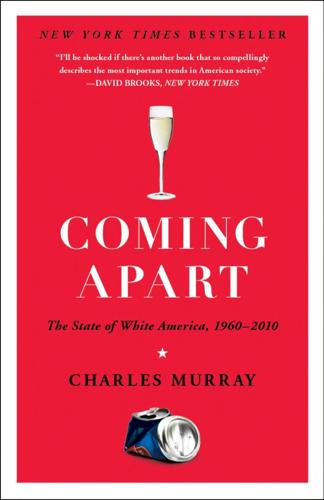
Coming Apart: The State of White America, 1960-2010
by
Charles Murray
Published 1 Jan 2012
New York: Hachette Book Group. Bronte-Tinkew, Jacinta, Kristin A. Moore, and Jennifer Carrano. 2006. The influence of father involvement on youth risk behaviors among adolescents: A comparison of native-born and immigrant families. Social Science Research 35:181–209. Brooks, Arthur C. 2008. Gross National Happiness. New York: Basic Books. Brooks, David. 2000. Bobos in Paradise: The New Upper Class and How They Got There. New York: Simon & Schuster. Brown, Susan L. 2004. Family structure and child well-being: The significance of parental cohabitation. Journal of Marriage and the Family 66 (May): 351–67. ———. 2006.
…
In table 15.1, I grouped these indexes into five categories running from “very low” to “very high.” For indexes with many values, the cutoff points for the categories were the 10th, 33rd, 67th, and 90th centiles of the distribution. For indexes with fewer values, I followed those guidelines as closely as possible.6 TABLE 15.1. PERCENTAGE OF WHITES AGES 30-49 WHO REPORT THAT THEY ARE VERY HAPPY Index category Social capital index Very low Very high Group involvement 32% 47% Organized group interactions 29% 49% Giving and volunteering 32% 57% informal social interactions 29% 48% Electoral politics 29% 48% Source: Social Capital Benchmark Survey. Sample limited to whites ages 30-49. High levels of community involvement were consistently associated with much higher levels of “very happy” people than low levels of community involvement.
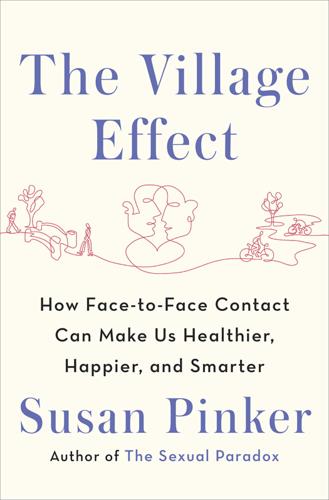
The Village Effect: How Face-To-Face Contact Can Make Us Healthier, Happier, and Smarter
by
Susan Pinker
Published 30 Sep 2013
Thoresen, “Religion and Spirituality: Linkages to Physical Health,” American Psychologist 58 (2003); Arthur Brooks, Gross National Happiness (New York: Basic Books, 2008). 2. Elizabeth Corsentino et al., “Religious Attendance Reduces Cognitive Decline Among Older Women with High Levels of Depressive Symptoms,” Journal of Gerontology 64A, no. 12 (2009). 3. Zev Chafets, “Is There a Right Way to Pray?” New York Times Magazine, September 20, 2009. 4. Arlie Russell Hochschild, The Outsourced Self: Intimate Life in Market Times (New York: Metropolitan Books, 2012). 5. Brooks, Gross National Happiness; Paul Bloom, “Does Religion Make You Nice? Does Atheism Make You Mean?”
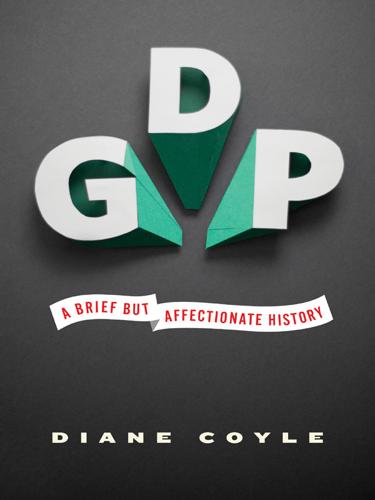
GDP: A Brief but Affectionate History
by
Diane Coyle
Published 23 Feb 2014
In the United Kingdom there is even a Campaign for Happiness. The government leapt on its bandwagon, ordering the Office for National Statistics to start a survey to measure happiness levels around the country.31 Grotesquely, there are cheerleaders for the king of Bhutan because of his claim that he seeks to increase gross national happiness, when Bhutan is one of the poorest and one of the more authoritarian countries in the world. The fashion for measuring happiness is based on two approaches to the evidence. One kind is the approach using top-down aggregate economic data that Richard Easterlin used in his original paper.
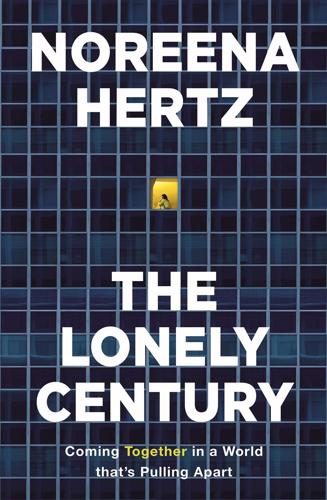
The Lonely Century: How Isolation Imperils Our Future
by
Noreena Hertz
Published 13 May 2020
Instead, ‘led by kindness and compassion’, her government pledged to incorporate a wider, more socially conscious and rounded set of criteria.15 These included how well the country is doing when it comes to protecting the environment, providing a decent education, increasing life expectancy and – importantly for our purposes – metrics related to loneliness, trust in fellow citizens, trust in government and an overall sense of belonging.16 Scotland and Iceland are considering similar approaches to their own budgeting processes.17 Whilst other governments in recent years – most notably the UK and France – have begun measuring wellbeing, New Zealand’s wellbeing budget is considered to be the boldest step taken so far by an OECD country given its explicit tie-in with political and budgetary decision making.18 The French and UK initiatives have not, to date, steered policy or government spending decisions in a substantive way.19 It would be remiss here not to mention the tiny and remote country of Bhutan that actually blazed the trail in this regard, having incorporated its Gross National Happiness metrics into policymaking for decades.20 If capitalism is to be reconciled with care, we need to reconnect the economy with social justice as a matter of urgency and acknowledge that traditional ways of defining success are no longer fit for purpose.21 Change the calculus of capitalism Even this is not enough.
…
Easterlin, ‘Well-Being, Front and Center: A Note on the Sarkozy Report’, Population and Development Review 36, no. 1 (March 2010), 119–124, https://www.jstor.org/stable/25699039?seq=1#metadata_info_tab_contents; ‘PM Speech on Wellbeing’, Gov.uk, 25 November 2010, https://www.gov.uk/government/speeches/pm-speech-on-wellbeing; Emma Bryce, ‘The flawed era of GDP is finally coming to an end’, Wired, 3 August 2019, https://www.wired.co.uk/article/countries-gdp-gross-national-happiness. 19 Dan Button, ‘The UK should stop obsessing over GDP. Wellbeing is more telling’, Guardian, 10 June 2019, https://www.theguardian.com/commentisfree/2019/jun/10/uk-obsessing-gdp-wellbeing-new-zealand; for more on the legacy of the Sarkozy Commission, see Paul Allin and David J. Hand, The Wellbeing of Nations: Meaning, Motive, and Measurement (New York: Wiley, 2014). 20 Noreena Hertz, The Silent Takeover (Random House, 2002), 17–20. 21 See here too Diane Coyle’s work in this area, e.g., GDP: A Brief But Affectionate History (Princeton University Press, 2014). 22 ‘Business Roundtable Members’, Business Roundtable, https://www.businessroundtable.org/about-us/members. 23 Milton Friedman, ‘The Social Responsibility of Business is to Increase Its Profits,’ New York Times magazine, 13 September 1970. 24 ‘Business Roundtable Redefines the Purpose of a Corporation to Promote “An Economy That Serves All Americans”’, Business Roundtable, 19 August 2019, https://www.businessroundtable.org/business-roundtable-redefines-the-purpose-of-a-corporation-to-promote-an-economy-that-serves-all-americans. 25 Julia Carrie Wong, ‘Amazon execs labeled fired worker “not smart or articulate” in leaked PR notes’, Guardian, 3 April 2020, https://www.theguardian.com/technology/2020/apr/02/amazon-chris-smalls-smart-articulate-leaked-memo. 26 Chris Smalls, ‘Dear Jeff Bezos, instead of firing me, protect your workers from coronavirus’, Guardian, 2 April 2020, https://www.theguardian.com/commentisfree/2020/apr/02/dear-jeff-bezos-amazon-instead-of-firing-me-protect-your-workers-from-coronavirus. 27 Julia Carrie Wong, ‘Amazon execs labeled fired worker “not smart or articulate” in leaked PR notes’. 28 ‘AG James’ Statement on Firing of Amazon Worker Who Organized Walkout’, Office of the New York State Attorney General, https://ag.ny.gov/press-release/2020/ag-james-statement-firing-amazon-worker-who-organized-walkout. 29 Brad Smith, ‘As we work to protect public health, we also need to protect the income of hourly workers who support our campus’, Microsoft, 5 March 2020, https://blogs.microsoft.com/on-the-issues/2020/03/05/covid-19-microsoft-hourly-workers/. 30 See for example Republican Senator Josh Hawley’s bill in July 2019 to curb smartphone addiction by banning the ‘infinite scroll’ of social media feeds, and limiting an individual’s social media usage to thirty minutes a day across all devices, Emily Stewart, ‘Josh Hawley’s bill to limit your Twitter time to 30 minutes a day, explained’, Vox, 31 July 2019, https://www.vox.com/recode/2019/7/31/20748732/josh-hawley-smart-act-social-media-addiction); or EU industry chief Thierry Breton’s warnings in February 2020 that should major tech platforms fail to adequately curb hate speech and disinformation, tougher rules and penalties would be forthcoming (‘EU threatens tougher hate-speech rules after Facebook meeting’, DW, 17 February 2020, https://www.dw.com/en/eu-threatens-tougher-hate-speech-rules-after-facebook-meeting/a-52410851). 31 ‘Camden Council tackles the climate crisis’, see video at: https://youtu.be/JzzWc5wMQ6s.
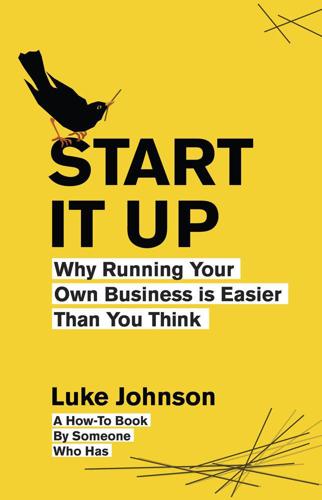
Start It Up: Why Running Your Own Business Is Easier Than You Think
by
Luke Johnson
Published 31 Aug 2011
Stress and risk: the secrets of happiness I once participated in a debate entitled ‘The good society: virtues for a post-recession world’. A couple of my fellow panellists emphasized the importance of promoting happiness rather than material wealth as a true measure of human progress. They believe that advances in gross domestic product are an inferior way to achieve greater well-being, and that a concept such as ‘gross national happiness’ might be a better tool. As I listened to their definitions of happiness, I realized that not many coincided with my view of what made entrepreneurs tick. There is no stereotypical entrepreneurial personality, but one can identify characteristics that most entrepreneurs share. At heart they are highly competitive.
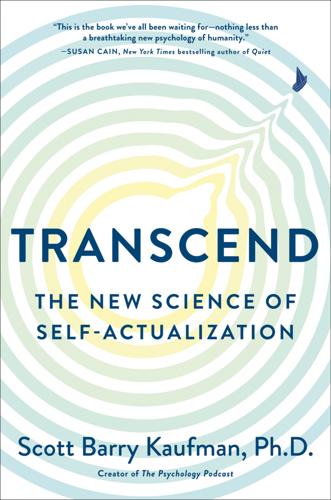
Transcend: The New Science of Self-Actualization
by
Scott Barry Kaufman
Published 6 Apr 2020
After my psychic rebirth I also feel for everyone’s pain. Everything was clear and bright.46 There are indications that such transformations are possible for anyone who has the opportunity to repeatedly confront the ultimate unknown. Eric Weiner, author of The Geography of Bliss, visited Bhutan, a Buddhist kingdom well-known for its Gross National Happiness—a collective index used to measure the happiness and well-being of large swaths of its citizens. In Bhutan, death and gruesome images of death are openly confronted every day, and no one, not even children, is protected from the constant awareness of mortality.47 There are many ways to die in Bhutan, and elaborate, lengthy rituals are performed when someone does die.
…
“evil,” 240–41 gossip, 43, 96–97 “gradient of autonomy,” 165 grandiose narcissism, 64, 71–76, 77, 78, 80, 122 Grant, Adam, 33, 166 Graves, Clare, 226 greed, 4, 131, 244 Greenberg, Jeff, 59 Griffiths, Roland, 209 grit and equanimity, 89, 171, 172–75, 178, 183 Grogan, Jessica, 185 Gross National Happiness, 237 group cohesion, 39–40, 44 growth, xviii, xix, xx, xxi, xxiv, xxv, xxvi, xxvii, xxviii, xxx–xxxi, xxxii, xxxiii–xxxiv, xxxv, xxxix, 29, 69–71, 72, 81, 81–185, 238 growth challenges, 279–309 growth-driven life motivations, 79, 80 growth-mindedness, 135 growth purchases vs. material purchases, 49–50 Haidt, Jonathan, 92, 201, 204, 206 “hangry” (from “hungry” and “angry”), 12 happiness, xx, xxi, xxv, xxvi, xxxiv, xxxvii growth, 84, 93, 100, 131, 132, 146–47, 153–54, 155–56, 170 healthy transcendence, 197, 208, 213, 214, 219, 223, 229, 237 security, 11, 26, 41, 43, 48–50, 51, 70, 79 Harari, Yuval, 213 Harlow, Harry, 35, 36, 54, 55 harmonious passion, 145, 171, 175–76 Hatt, Beth, 32 Hayes, Steven, 70 “health-fostering” victory, 215 health insurance, Americans’, 7 “healthy childishness,” 225 healthy transcendence, xxxi, 187–244 See also transcendence Heaphy, Emily, 42 heart disease and loneliness, 45 Heavy Head, Martin, 4 “hedonic treadmill,” 49 hedonism, 100, 229–30 Heitzman, A.
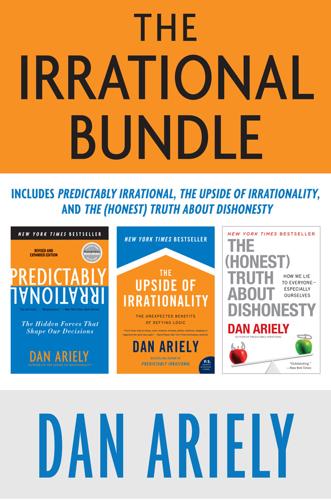
The Irrational Bundle
by
Dan Ariely
Published 3 Apr 2013
In our first experiment, we asked some participants to look at a list of three problems one at a time and generate their own proposed solution for each. (We called this the creation condition.) The problems were: Question 1: How can communities reduce the amount of water they use without imposing tough restrictions? Question 2: How can individuals help to promote our “gross national happiness”? Question 3: What innovative change could be made to an alarm clock to make it more effective? Once the participants finished generating their three solutions, we asked them to go back and rate each one on practicality and probability of success. We also asked them to tell us how much of their own time and money they would donate to promote their proposed solutions.
…
But even if their ideas weren’t superior to ours overall, it could have been that our participants’ notions fit better with their own unique perspectives of the world. This principle is called an idiosyncratic fit. As an extreme example of this, imagine that a devoutly religious individual answered the question “How can individuals help to promote our ‘gross national happiness’?” by suggesting that everyone attend religious services daily. A steadfast atheist might respond to the same question by suggesting that everyone give up religion and focus instead on following the right kind of diet and exercise program. Each person may prefer his or her idea to ours—not because he or she came up with it but because it idiosyncratically fits with his or her underlying beliefs and preferences.
…
Remember that each participant saw only three of these problems with our proposed solutions and came up with solutions for the remaining three. Problem 1: How can communities reduce the amount of water they use without imposing tough restrictions? Proposed solution: Water lawns using recycled gray water recovered from household drains. Problem 2: How can individuals help to promote our “gross national happiness”? Proposed solution: Perform random acts of kindness on a regular basis. Problem 3: What innovative change could be made to an alarm clock to make it more effective? Proposed solution: If you hit snooze, your coworkers are notified via e-mail that you overslept. Problem 4: How can social networking sites protect user privacy without restricting the flow of information?
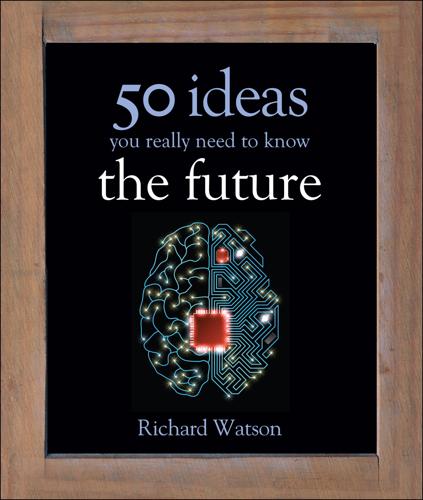
50 Future Ideas You Really Need to Know
by
Richard Watson
Published 5 Nov 2013
Add to this a shared vision of where we’re all heading, and one by-product of our restless quest might eventually be happiness. 2032 Happiness League Table 1 Denmark 2 Finland 3 Norway 4 Sweden 5 Netherlands 6 = Costa Rica 6 = New Zealand 8 = Canada 8 = South Sudan 8 = Australia 8 = Switzerland 12 = Panama 12 = Brazil 14 = United States 14 = South Belgium 16 Scottish Republic 17 New England 18 = Mexico 18 = Unified Korea 20 Republic of Western Australia 21 Venezuela 22 Unified Ireland 23 = Puerto Rico 23 = Iceland 25 Welsh Republic 26 Moon Base Alpha Source: Hallup World Poll 2032 the condensed idea Measuring what really matters timeline 1972 Term “Gross National Happiness” coined by the King of Bhutan 2004 Downshifting movement gains momentum 2010 Self-storage industry worth more than Hollywood 2012 The cloud facilitates a move away from physical ownership 2013 Rising demand for psychological and therapeutic services 2023 Government attempts to measure individual happiness on an annual basis 2039 Happiness industry bigger than self-storage industry and Hollywood combined 2050 Study says search for happiness is making most people miserable 31 Human beings version 2.0 “Steve Austin.

Robots Will Steal Your Job, But That's OK: How to Survive the Economic Collapse and Be Happy
by
Pistono, Federico
Published 14 Oct 2012
In literature, there is now more talk about happiness, while interest in GDP and economic growth is eroding. My initial motivation for writing this book was given by the realisation that societies should move away from the GDP indicator and try to maximise happiness instead, using new measures such as the GNH (Gross National Happiness), the Happy Planet Index, or the Satisfaction with Life Index. That seemed to go well with the fact that technology was displacing workers more and more, and I thought a fresh new look at the topic could give some insights into how to approach this challenge. Given what I have read and heard, there seemed to be overwhelming evidence, from sociological, anthropological, and other scientific studies, that monetary acquisition did not make one proportionally happier.
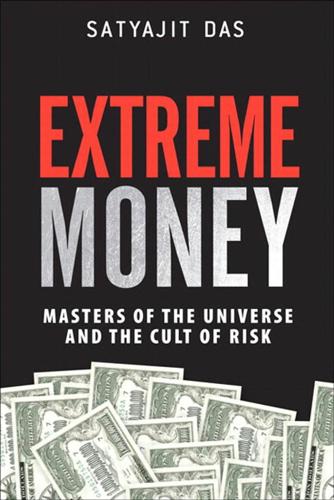
Extreme Money: Masters of the Universe and the Cult of Risk
by
Satyajit Das
Published 14 Oct 2011
[If governments did not take action] we must expect the progressive breakdown of the existing structure of contract and instruments of indebtedness, accompanied by the utter discredit of orthodox leadership in finance and government, with what ultimate outcome we cannot predict.48 Zen Finance Prospects of a less wealthy world with lower growth prompted erudite papers, books, and seminars, including The Future of Capitalism and The Economics of Happiness. There were downshifting and slowness movements, advocating a higher quality of life, and more leisure rather than material wealth. French President Nicolas Sarkozy commissioned a report by two Nobel prize-winning economists to develop a new measure—GNH or gross national happiness. One commentator termed it “gross domestic fudging if feminine attractiveness, length of vacations, and quantity of garlic in the food can be included, France will rank much higher than in more old-fashioned measures.”49 An economic system built on a Zen Buddhist renunciation of wealth and materialism is unlikely.
…
See also John Maynard Keynes genocide, 38 George, Lloyd, 48, 340 Gere, Richard, 326 Germany, 312 gold, 359 inflation in, 22 get-rich investment and trading-secrets books, 98 Gherkin, 79 Gibson Greetings, 135 Gipp, George, 97 Girl with the Dragon Tattoo, The, 360 Girls Gone Wild, 344 Gladwell, Malcolm, 329 Glass, Carter, 66 Glass-Steagall Act of 1933, 66, 201 Glassman, James, 97, 99 Gleacher, Eric, 148 Glengarry Glen Ross, 185 global credit process, 88 Global Crossing, 154 global financial crisis, 310, 346-347 aftermath, 361-366 European debt crisis, 357-359 Greece, 354-356 solutions, 352-354 global saving glut thesis, 303 globalization, 38, 41 GNH (gross national happiness), 364 Go-Between, The, 185 Godfather, The, 147 gold, 21, 25-27, 58 China’s investment in, 87 circulation of, 32 effect of speculators on price, 28 Germany, 359 reserves, 30 Sons of Gwalia (SoG), 216 standard, 29-31 golden ring, 314 golden years, 46. See also retirement Goldfinger, 26 Goldilocks Economy, 296, 348 Goldman Sachs, 76, 81, 122, 191, 195, 289 David Viniar, 126 indictment of, 325 Jim O’Neill, 90 Milken’s mobsters, 146 Ron Beller, 321 SEC suit against, 196 Trading Corporation, 198, 338 Goldman, David, 287 Goldsmith, Sir James, 137 Gono, Gideon, 22, 345 Goodspeed, Bennett W., 96 Gorbachev, Mikhail, 101 Gorton, Gary, 232 governance, 290 Government Accountability Office (GAO), 353 government-sponsored entities (GSEs), 180 Göttingen (Germany), 101 Graduate Business School (GBS), 116 Graduate, The, 262, 308 Grais, David, 284 Gramm, Phil, 67 Grand Central Station (New York), 80 Grant’s Interest Rate Observer, 71 Grant, Duncan, 25 Grant, Emily, 71 Grant, James, 71, 178 Grantham, Jeremy, 265 Grapes of Wrath, The, 360, 365 Gravity; Our Enemy Number One, 347 gravity, financial, 347 Great Crash (1929), 332 Great Crash, The, 157 Great Depression, 29, 42, 102-103, 307 mortgage defaults, 179 great expectation machine, 54 Great Gatsby, The, 343 Great Moderation, 296 Great Moderation, 267, 277, 348 Great Slump of 1930, The, 306 Great Society, 30 Great Wave of Kanagawa, The, 324 Greece, 223, 225 global financial crisis, 354-356 greenbacks, 21, 28 Greenberg, Hank, 170 Greenberg, Maurice R., 230 Greenberger, Michael, 300 Greenburg, Ace, 326 greenmail, 137 Greenspan put, 280 Greenspan, Alan, 32, 44, 57, 129, 180, 215, 296 2002 interest rate cut, 154 adjusted rate mortgages (ARMs), 183 advocacy of derivatives, 213 Asian crisis, 280 as a celebrity central banker, 297 defense of record, 303-304 derivatives, 235, 238 dissenters, 300-302 FCIC testimony, 304-305 Great Moderation, 277 regulation, 279 U.S.
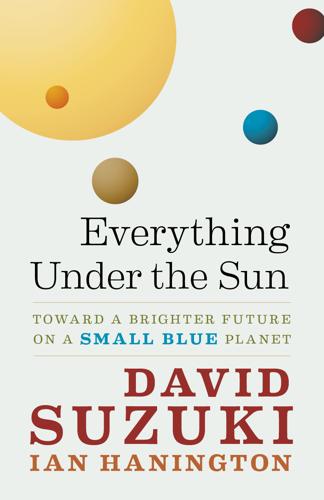
Everything Under the Sun: Toward a Brighter Future on a Small Blue Planet
by
Ian Hanington
Published 13 May 2012
The money that could be saved nationally on things like health care—not to mention the infrastructure required to keep so many cars on the road—reaches into the billions, but the money an individual can save on fuel, insurance, and maintenance costs alone is also substantial. And because biking is a lot of fun, it will probably increase what the people of Bhutan call “gross national happiness”! But we still have a ways to go. Canadians and Americans use bikes for fewer than one in a hundred trips—though in Vancouver it’s a bit higher, at about 4 per cent. Compare that with the 20 to 35 per cent of trips taken by bike in the European Union and 50 per cent in China. (Unfortunately, the trend is reversing in China as the country embraces car culture.)
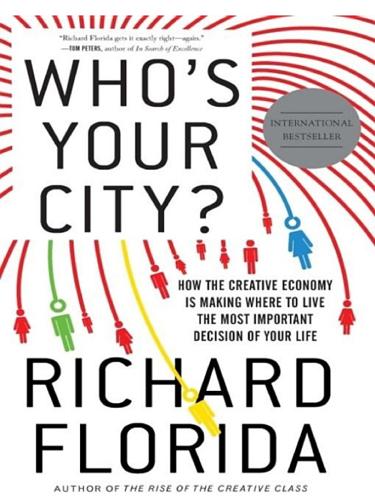
Who's Your City?: How the Creative Economy Is Making Where to Live the Most Important Decision of Your Life
by
Richard Florida
Published 28 Jun 2009
“Because goods and services are plentiful and because simple needs are largely satisfied in modern societies,” they write, “people today have the luxury of refocusing their attention on the ‘good life’—a life that is enjoyable, meaningful, engaging and fulfilling.”2 They note that “people rank happiness and satisfaction ahead of money as a life goal” and go on to suggest that advanced countries should account for well-being in the way they account for income and economic output. If there is GDP for gross domestic product, why not a GNH for “gross national happiness”? Happiness is associated with income—but only to a point. People in wealthier countries are generally happier than those in the poorest ones. A recent comprehensive review of the field, as well as new data on GDP and happiness by economists Justin Wolfers and Betsy Stevenson, suggests that happiness remains connected to income.
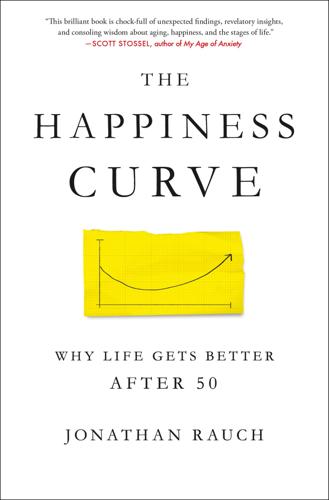
The Happiness Curve: Why Life Gets Better After 50
by
Jonathan Rauch
Published 30 Apr 2018
As soon as people realized their curiosity might be noticed by friends and neighbors, they reduced their tax snooping by almost 90 percent and redirected their energies to finding out who was snooping on them.) So Easterlin’s original conjecture appears to have been borne out: beyond a certain point, increases in the gross national product will not reliably increase gross national happiness, especially if inequality—real or perceived—also rises. It is not enough for a society as a whole to grow wealthier. In fact, if gains in social wealth are unequally spread, economic growth could increase frustration and anger—even if the wealth of the middle class is growing in absolute terms.
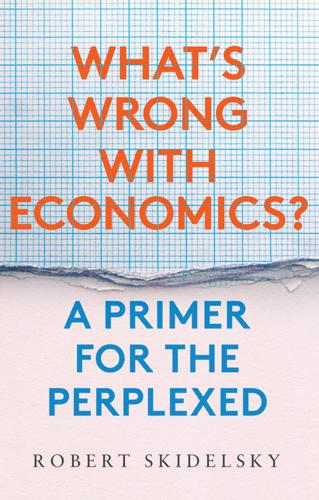
What's Wrong With Economics: A Primer for the Perplexed
by
Robert Skidelsky
Published 3 Mar 2020
‘Capability’ preserves the autonomy of individual choice.26 Sen realised that an alternative index was needed, so, with Mahbub ul Haq and others, he produced the Human Development Index, which includes indicators of a country’s income, education, and health. Other indices include the OECD’s Better Life Index, which contains eleven components, the King of Bhutan’s ‘Gross National Happiness’ goal and the OPHI and UNDP’s multidimensional poverty index.27 The International Labour Organization (ILO) says that social justice – not growth – should be the goal, but acknowledges that there is ‘no objective notion of social justice’. The ecological economist Herman Daly (b.1938) has suggested an index of ‘sustainable development’, which takes account of environmental degradation and depreciation of natural capital.
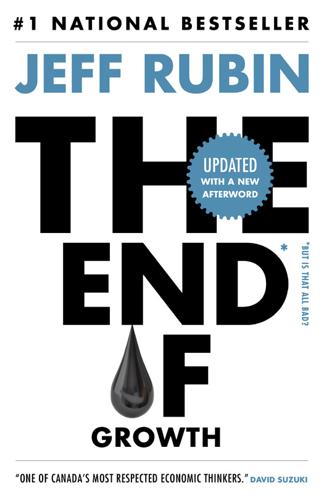
The End of Growth
by
Jeff Rubin
Published 2 Sep 2013
Sheltered in the Himalayas for centuries, when Bhutan decided to find out what lay beyond its borders, it sent young people to schools around the world. They returned and told the king what they had learned. To Bhutan, a standard such as GDP seemed illogical. Instead, the country chose to measure itself by a different yardstick: Gross National Happiness. Juxtaposed against growth-chasing economies and rising global temperatures, it’s a comforting story. Not everyone, it’s worth remembering, sees the world the same way we do. Economic growth is only one measure of well-being. And since it often comes at the cost of endangering our own survival, there are other standards we should take into account.
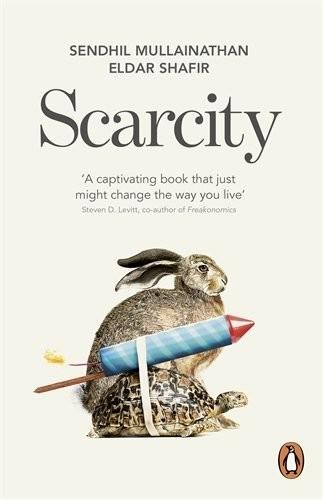
Scarcity: The True Cost of Not Having Enough
by
Sendhil Mullainathan
Published 3 Sep 2014
What if while unemployment was climbing, the quality of decisions was dropping? We do not have the data to answer these questions. And while it is too late to gauge this for 2008, it is not too late to collect these data for future booms and recessions. There has been an effort in recent years to measure societal well-being, to create a measure of Gross National Happiness to go along with Gross National Product. Why not also measure Gross National Bandwidth? From this, we might learn not just about our country as a whole but also about how different subgroups in our country are doing. When the unemployment rate jumps from 5 percent to 10 percent, that means an additional one in twenty working-age people are now struggling financially.
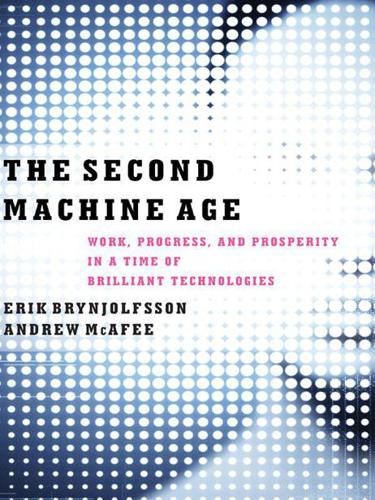
The Second Machine Age: Work, Progress, and Prosperity in a Time of Brilliant Technologies
by
Erik Brynjolfsson
and
Andrew McAfee
Published 20 Jan 2014
Joe Stiglitz, Amartya Sen, and Jean-Paul Fitoussi have created a detailed guide for how we can do a comprehensive overhaul of our economic statistics.32 Another promising project is the Social Progress Index that Michael Porter, Scott Stern, Roberto Loria, and their colleagues are developing.33 In Bhutan, they’ve begun measuring “Gross National Happiness.” There is also a long-running poll behind the Gallup-Healthways Well-Being Index.34 These are all important improvements, and we heartily support them. But the biggest opportunity is in using the tools of the second machine age itself: the extraordinary volume, variety, and timeliness of data available digitally.
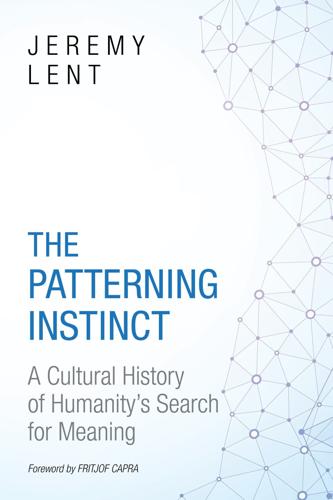
The Patterning Instinct: A Cultural History of Humanity's Search for Meaning
by
Jeremy Lent
Published 22 May 2017
The indicators we choose to define success become the things we strive for.” Recognizing this, various groups, including the United Nations and the European Community, have begun to explore alternative ways to measure society's true performance. The Himalayan state of Bhutan has broken new ground by creating a “Gross National Happiness” index, incorporating values such as spiritual well-being, health, and biodiversity.72 These alternative measures offer a very different story of the human experience over the last fifty years than the one presented by GDP. When researchers applied a measure known as the Genuine Progress Indicator to seventeen countries around the world, they discovered that although GDP has continually increased since 1950, worldwide GPI reached its peak in 1978 and has been declining ever since.73 In spite of this, the mainstream media unquestionably accept the mantra of our locked-in ideology that economic growth, measured by GDP, is the societal objective to be pursued above all else.
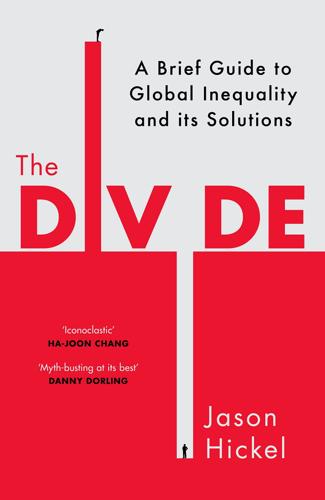
The Divide: A Brief Guide to Global Inequality and Its Solutions
by
Jason Hickel
Published 3 May 2017
So, comrades, let us not pay tribute to Europe by creating states, institutions and societies which draw their inspiration from her. Humanity is waiting for something other from us than such an imitation. We are already seeing this ‘something other’ emerge in pockets across the global South, sprouting up like shoots through concrete. Bhutan has famously rejected GDP growth and replaced it with Gross National Happiness as its measure of social progress. But this is only the very tip of the iceberg – the bit that makes its way into our media, almost as a quaint curiosity. Across Latin America, indigenous activists have brought the concept of ‘sumak kawsay’ to prominence – an indigenous Quechua term that translates as ‘living in harmony and balance’.
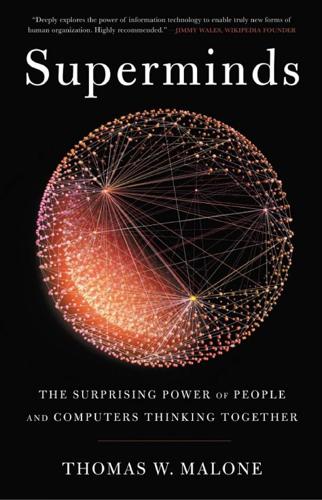
Superminds: The Surprising Power of People and Computers Thinking Together
by
Thomas W. Malone
Published 14 May 2018
At the bottom end of the scale, 38 percent of the plants in the bottom fifth were still there 10 years later.21 Whole fields of management and economics are attempting to determine what causes these differences, but this stability of performance over time suggests a kind of collective intelligence in these plants, high in some and low in others. In addition to measuring the same variables over an extended period of time, it is also possible to measure the general intelligence of a group by observing many different variables at once. For instance, the country of Bhutan focuses a great deal of attention on what they call gross national happiness, a measure of societal well-being that combines a wide variety of indicators, such as health, living standards, education, and psychological well-being. If a society does well on all these different measures, then we could say the society has more collective general intelligence than if it just does well on one or two.
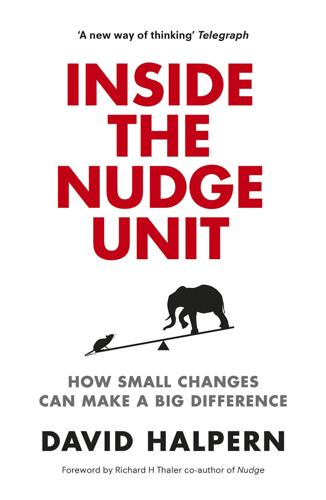
Inside the Nudge Unit: How Small Changes Can Make a Big Difference
by
David Halpern
Published 26 Aug 2015
It was not until the run-up to the 2010 election that David Cameron, by then the new leader of the Conservative party, began to talk about well-being. It was Cameron, albeit encouraged by Steve Hilton, who raised eyebrows by talking about whether the UK should take a leaf out of Bhutan’s view of the world and consider not just GDP, but Gross National Happiness, too. For some this was just part of Hilton’s rebranding of the Conservative party, but it turned out that Cameron was serious. Well-being goes mainstream On 25 November 2010, the press corps were assembled in the Treasury for a major speech and announcement by the Prime Minister.

Happy City: Transforming Our Lives Through Urban Design
by
Charles Montgomery
Published 12 Nov 2013
But the firing synapses of our brains, the chemistry of our blood, and the statistical heft of our collected choices and opinions do offer a map that approximates the wisdom of philosophers. These things confirm that most people, in most places, have the same basic needs and most of the same desires. They tell us truths we already know in our gut, but which we have too rarely acknowledged. They suggest that there is wisdom in the mountain kingdom of Bhutan’s adoption of gross national happiness as a measure of progress rather than gross national product, and in the decision by policy makers around the world, including the governments of Great Britain, France, and Thailand and cities such as Seattle, to pay attention to new measures of well-being that include not just how much citizens earn, but how we feel.
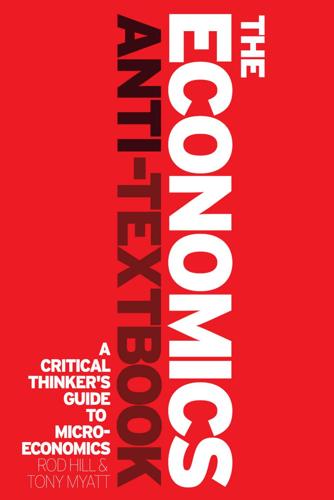
The Economics Anti-Textbook: A Critical Thinker's Guide to Microeconomics
by
Rod Hill
and
Anthony Myatt
Published 15 Mar 2010
G. Anderson (1986) ‘Replication in empirical economics: the Journal of Money, Credit, and Banking Project’, American Economic Review, 76(4): 587–603. Di Tella, R. and R. MacCulloch (2006) ‘Some uses of happiness data in economics’, Journal of Economic Perspectives, 20(1): 25–46. — (2008) ‘Gross national happiness as an answer to the Easterlin Paradox?’, Journal of Development Economics, 86(1): 22–42. Dinse, G. E., D. M. Umbach, A. J. Sasco, D. G. Hoel and D. L. Davis (1999) ‘Unexplained increases in cancer incidence in the United States from 1975 to 1994: possible sentinel health incidators?’, Annual Review of Public Health, 20(1): 173–209.
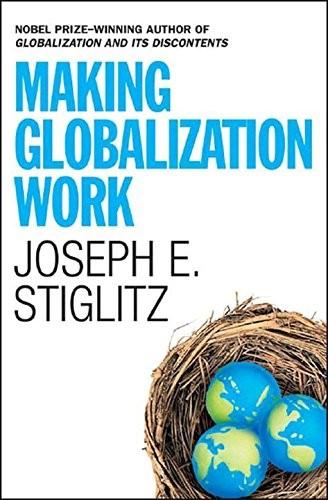
Making Globalization Work
by
Joseph E. Stiglitz
Published 16 Sep 2006
A VISION OF DEVELOPMENT In the array of statistics and anecdotes describing developing countries—some totally depressing, some conveying enormous hope—it’s important to remember the big picture: success means sustainable, equitable, and democratic development that focuses on increasing living standards, not just on measured GDP. Income is, of course, an important part of living standards, but so too is health (measured, for instance, by life expectancy and infant mortality) and education.17 The king of Bhutan has spoken of GNH, gross national happiness, as he sought growth strategies that improved education, health, and the quality of life in rural areas as well as in the towns, all the while maintaining traditional values. GDP is a handy measure of economic growth, but it is not the be-all and end-all of development. Growth must be sustainable.
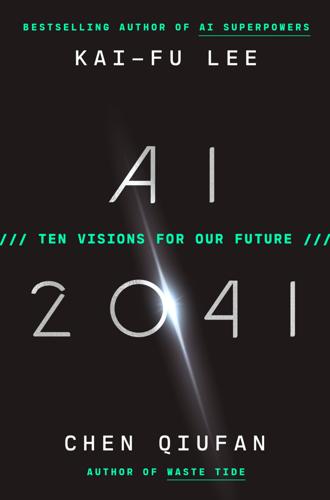
AI 2041: Ten Visions for Our Future
by
Kai-Fu Lee
and
Qiufan Chen
Published 13 Sep 2021
Take, for example, the “gifted and talented” education programs in Korea, primary education in Scandinavia, university innovations (like massive open online courses, or MOOCs, and Minerva Schools) in the United States, the culture of craftsmanship in Switzerland, service excellence in Japan, the vibrant tradition of volunteering in Canada, caring for elders in China, and “gross national happiness” from Bhutan. We need to share our experiences and plot a way forward globally, where new technologies are balanced by new socioeconomic institutions. Where will we find the courage and audacity to take on this gargantuan task? We are the generation that will inherit the unprecedented wealth from AI, so we must also bear the responsibility of rewriting the social contract and reorienting our economies to promote human flourishing.
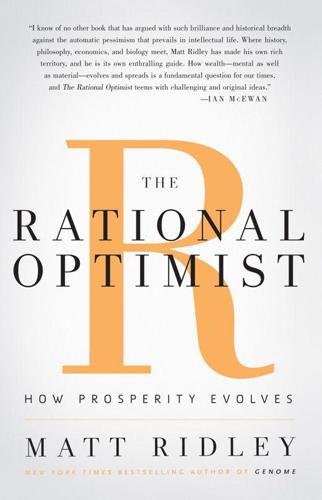
The Rational Optimist: How Prosperity Evolves
by
Matt Ridley
Published 17 May 2010
Beyond a certain level of per capita income ($15,000 a year, according to Richard Layard), money did not seem to buy subjective well-being. As books and papers cascaded out of the academy, Schadenfreude set in on a grand scale among commentators happy to see the unhappiness of the rich confirmed. Politicians latched on and governments from Thailand to Britain began to think about how to maximise gross national happiness instead of gross national product. British government departments now have ‘well-being divisions’ as a result. King Jigme Singye Wangchuck of Bhutan is credited with having been the first to get there in 1972 when he declared economic growth a secondary goal to national well-being. If economic growth does not produce happiness, said the new wisdom, then there was no point in striving for prosperity and the world economy should be brought to a soft landing at a reasonable level of income.
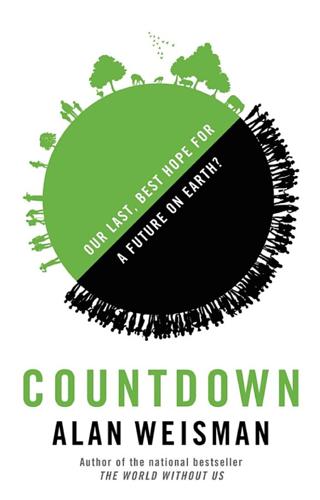
Countdown: Our Last, Best Hope for a Future on Earth?
by
Alan Weisman
Published 23 Sep 2013
The Leave Chronicle, March 22, 2012. http://www.theleafchronicle.com/article/20120323. Hasegawa, Kyoko. “Japan Faces ‘Extinction’ in 1,000 Years.” Agence France-Presse, May 11, 2012. Hayashi, Yuka. “Quake-Hit Area Was Already Reeling,” Wall Street Journal, March 11, 2011. Heinberg, Richard. “Gross National Happiness.” MuseLetter, no. 232, September 2011. _______.“Welcome to the Post-Growth Economy.” MuseLetter, no. 232, September 2011. “HIV/AIDS in Russia & Eurasia.” Center for Strategic and International Studies website, Russia and Eurasia Past Projects. http://csis.org/program/hivaids. “Immigrants Boost German Population.”

The 4-Hour Chef: The Simple Path to Cooking Like a Pro, Learning Anything, and Living the Good Life
by
Timothy Ferriss
Published 1 Jan 2012
Related to the above, don’t use one cooking vessel for multiple dishes: If I’m cooking Harissa Crab Cakes and Scrambled Eggs, I’d want to use my nonstick for both. This means I’ll need to keep one warm while cooking the second, or serve one and cook again while guests are waiting, or reheat something. Don’t do it. STEP 2: Set expectations low and early. In 2008, Denmark emerged as the world’s happiest country, beating out the “Gross National Happiness”–touting Bhutan, the longtime favorite of anthropologists everywhere. So why is the birthplace of LEGO (a contraction of leg godt or “play well”) such a happy spot? I asked my Danish readers, and the answer was unanimous: low expectations. Indeed, set expectations low and you’re never disappointed.

The Ministry for the Future: A Novel
by
Kim Stanley Robinson
Published 5 Oct 2020
Alternative measures that compensate for these deficiencies include: the Genuine Progress Indicator, which uses twenty-six different variables to determine its single index number; the UN’s Human Development Index, developed by Pakistani economist Mahbub ul Haq in 1990, which combines life expectancy, education levels, and gross national income per capita (later the UN introduced the inequality-adjusted HDI); the UN’s Inclusive Wealth Report, which combines manufactured capital, human capital, natural capital, adjusted by factors including carbon emissions; the Happy Planet Index, created by the New Economic Forum, which combines well-being as reported by citizens, life expectancy, and inequality of outcomes, divided by ecological footprint (by this rubric the US scores 20.1 out of 100, and comes in 108th out of 140 countries rated); the Food Sustainability Index, formulated by Barilla Center for Food and Nutrition, which uses fifty-eight metrics to measure food security, welfare, and ecological sustainability; the Ecological Footprint, as developed by the Global Footprint Network, which estimates how much land it would take to sustainably support the lifestyle of a town or country, an amount always larger by considerable margins than the political entities being evaluated, except for Cuba and a few other countries; and Bhutan’s famous Gross National Happiness, which uses thirty-three metrics to measure the titular quality in quantitative terms. All these indexes are attempts to portray civilization in our time using the terms of the hegemonic discourse, which is to say economics, often in the attempt to make a judo-like transformation of the discipline of economics itself, altering it to make it more human, more adjusted to the biosphere, and so on.

Nepal Travel Guide
by
Lonely Planet
There are also regular services to Kakarbhitta (Rs 190, four hours) from the Mahendra Hwy. Local buses run to Dharan (Rs 60, 1½ hours) throughout the day. There are also early morning buses to Dhankuta (Rs 170, three hours) and Hile (Rs 300, 3½ hours). Nepal’s Bhutanese Refugees Bhutan boasts a concept of Gross National Happiness and upholds an image as a modern-day Shangri-La, so it’s surprising that in 1990, over 100,000 Lhotshampa people – an astonishing 18% of Bhutan’s entire population – became refugees in Nepal. Of Nepalese descent, the Lhotshampa people were well established in southern Bhutan after workers migrated here from Nepal in the 19th century.
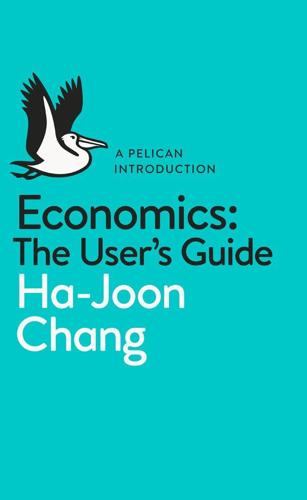
A Pelican Introduction Economics: A User's Guide
by
Ha-Joon Chang
Published 26 May 2014
It is interesting to note that, in open recognition of this difficulty, the OECD Better Life Index website lets you make up your own index by varying the weights between different elements according to your own judgements. REAL-LIFE NUMBERS Happiness index numbers, whether they are completely subjective or combined with more objective indicators, are not really meaningful in themselves. You simply cannot compare different types of happiness indexes with each other. The only thing that you can reasonably do with them is track changes in happiness levels for individual countries according to one index or, less reliably, rank countries according to one index. Different happiness indexes include very different elements. As a result, the same country can rank very differently depending on the index.
…
This index looks at people’s subjective judgements on life satisfaction, together with ten other more (although not completely) objective indicators, ranging from income and jobs to community life and work–life balance (and each of these indicators has more than one constituent element). Even while a happiness index that includes more elements is conceptually more defensible, its numerical outcome is more difficult to defend. As we try to incorporate more and more dimensions of our life into the happiness index, we are made to include more and more dimensions that are very difficult, if not impossible, to quantify. Civic engagement and the quality of community life in the OECD index are such examples.

A Year of Living Danishly: My Twelve Months Unearthing the Secrets of the World's Happiest Country
by
Helen Russell
Published 14 Sep 2015
The UN World Happiness Report put this down to a large gross domestic product (GDP) per capita, high life expectancy, a lack of corruption, a heightened sense of social support, freedom to make life choices and a culture of generosity. Scandinavian neighbours Norway and Sweden nuzzled alongside at the top of the happy-nation list, but it was Denmark that stood out. The country also topped the UK Office of National Statistics’ list of the world’s happiest nations and the European Commission’s well-being and happiness index – a position it had held onto for 40 years in a row. Suddenly, things had taken a turn for the interesting. ‘Happy’ is the holy grail of the lifestyle journalist. Every feature I’d ever written was, in some way, connected to the pursuit of this elusive goal. And ever since defacing my army surplus bag with the lyrics to the REM song in the early 1990s, I’d longed to be one of those shiny, happy people (OK, so I missed the ironic comment on communist propaganda, but I was only twelve at the time).
…
A 2014 survey carried out for Berlingske newspaper found that almost every fifth Dane identifies him- or herself as an atheist. I tell Manu that I find this fascinating. Lots of studies link religion with happiness and researchers from Columbia University found that faith can even ward off depression. Yet despite Denmark’s top spot on the happiness index and its high levels of church membership, it’s actually one of the least religious countries in the world, with low church attendance, secular schools and civic institutions and a population that regularly reaffirms its atheism (or at least agnosticism) in national surveys and polls. ‘Most people don’t use the church much apart from for baptisms, weddings, funerals and at Christmas,’ says Manu.
…
What’s more, it’s cheap: ‘A straightforward divorce costs 900 DKK [around £100 or $170].’ But how can all this divorce make for happy Danes? Isn’t the breakdown of a marriage, along with bereavement and moving house, one of the three most stressful life events that can occur? I ask Anja how Denmark can keep coming top of the world happiness index in spite of this and she tells me simply: ‘It’s because we have equality and freedom.’ A depressingly high divorce rate does at least suggest that Danes have choices. They can take their own destiny in their hands and take action if their lives aren’t panning out as they’d hoped. They are free, and freedom makes you happy, even if divorce doesn’t.
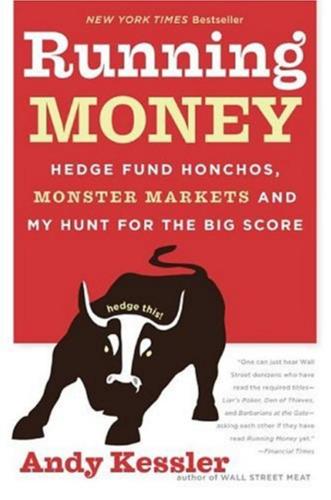
Running Money
by
Andy Kessler
Published 4 Jun 2007
But most things that work are counterintuitive, or dare I say, a paradox, at least at first. I wanted to bounce this idea off anyone who would listen to see if there were holes in my logic. It’s hard to stay unemotional. “Yes, but the more successful a country is, the lower their inhabitants score on the Steen-Seligman Happiness Index, so what’s the point?” and so finished the diatribe by a short guy with a funny beard. I had leaned over to my friend who sucked me into this dreadful meeting and asked, “Who is this bozo?” “A Harvard professor,” she answered. “Jeez,” I moaned under my breath. “The what quotient?” I asked the professor.
…
We think we have found a way to bypass the industrial step and go directly to an intellectual property economy.” “Really? Is that even possible?” “It turns out that people in Ghana are very musical.” “Like Jamaicans, I suppose.” “Their music is the key to their high scores on the SteenSeligman Happiness Index. It has almost mystical qualities, very soothing to the soul.” This is usually where I tune out, when the yoga talk starts, but I just had to hear his plans. I did order another drink, to improve my own happiness quotient. “And?” “Well, I go to Ghana several times a year, and what I have been recommending to their leaders is that rather than build factories, they work on leveraging their music.”
…
J., 250–51 Roditi, Nicholas, 293 Roebuck, John, 55, 56 Rothschild, Mayer, 25 Rothschild family, 26 routers, 191, 199 Roxio, 206 Rubin, Robert, 164 Russia, 1, 29, 101, 163, 164, 168 Rutter, Nancy, 194–95 Sanders, Jerry, 129, 132 satellite technology, 179 scale, 42, 48, 91, 95, 103 competitive pricing and, 180, 187 computer augmentations and, 121–23 309 local area networks and, 190, 191 steam engine and, 59, 123, 183, 190 trends and, 77–79 SDC (State Data Center), 187 SDL, 96 search services (Internet), 142–43, 146, 247 second derivatives, 26–28, 72, 77, 226 Securities and Exchange Commission, 204, 205 semiconductors, 101–3, 124–26 fabrication facilities, 91, 129–34, 250 See also memory chips September 11 attacks, 288 Sequoia Ventures, 45, 212 Sharp Electronics, 154, 155–59, 161, 253 Sheehan, Andy, 44 Sherwin-Williams, 236 Shim, Sang Win, 5–6, 208, 234 shipping, 92–94 shorting, definition of, 171 Sierra Semiconductor, 45 Silicon Graphics, 179, 193–94 Silicon Valley, 15, 16, 103, 270 change and, 27 as design innovation center, 99, 135, 175, 251, 253, 268, 294 end market and, 246 fabrication facilities, 129 investment and, 172, 175, 194, 197, 291–92 specialness of, 41–42, 43 wealth generation basis in, 233–34 Simpsons, The (TV program), 134–35 310 Index Singapore, 100, 134, 175, 281 Sirius (steamship), 93–94 Six Flags theme park, 69 slavery, 66–67 Sloan, Alfred P., 172 Sloan Foundation, 172 smelting, 52–53 Smith, Adam, 54, 279 Smith, Junius, 93–94 Social Security, 261 software, 118, 120, 196–99 company blowups, 177–78 investment factors, 136, 146, 197 payment for, 137 Soho Manufactory, 55 Sony, 44, 206, 251, 253, 277 Soros, George, 10, 14, 117, 163, 164, 166, 168, 169, 261, 276, 295 Soros Management, 112, 113, 293 Southwest, 292 spinning frame, 65, 66, 125 spinning jenny, 64–65 spinning mule, 65, 125, 272 Sprint, 72 Sputnik I, 101 Sri Lanka, 246 Ssangyong, 3–6, 166, 208, 234, 260 Stac, 97 standard of living, 234–35, 246, 256, 279 Stanford Research Institute, 120, 185, 187 Stanford University, 152, 187, 191 steam engine, 64, 78, 91–95, 183 industrial significance of, 55–56, 58–59, 65–67, 68, 123, 125, 190, 271, 272 microprocessor parallel with, 125 Watt designs, 53–55, 57, 89, 91, 95, 125–26, 190 steam locomotive, 92 steamships, 92, 93–95, 183 Steen-Seligman Happiness Index, 280, 282 Steinhardt, Michael, 10 Stephenson, George, 92 stock market, 10, 180, 208, 256–58, 261, 262, 269 art of stock buying and, 181–82 British, 92–93 bubble, 209–16, 223–27 burst of bubble, 227, 234, 248, 290–93 drop in, 166, 168, 169, 224–25 foreign investors in, 29, 275, 276 function of, 89–90 industrial economists and, 237 intellectual property’s profitability and, 269 international economic role of, 279 on-line trading, 84–85 September 11 attacks and, 288 shorting, 171 software blowups, 177 theory of efficient, 176 stock options, 261 Stockton and Darlington Railway, 92 stress, 280, 282, 287 Suez Canal, 94 Sullivan, Scott, 225 Sun Microsystems, 191, 194, 245 Sure Thing, The (film), 218 Index Taiwan, 68, 204, 251, 252, 281 low manufacturing costs, 130–35, 136, 148, 175, 235, 259 offshore subsidiaries and, 251, 252 U.S. debt and, 257 Taiwan Semiconductor Manufacturing Company, 130, 131–35, 148, 252, 259 Take Two Interactive, 176–77 tariffs, 272, 277–78 Tartikoff, Brandon, 196 TASS, 169 taxes, 254, 272, 288 T-bill, 254 technology, 16, 42–43, 73, 168, 290 changes from, 67–68, 79 development factors, 79 human relationship with, 246–47 lowered prices from, 187 textile manufacture, 64–65 top market cap companies, 111 See also intellectual property; specific technologies technology stocks, 11, 109, 223–27, 228–29, 293 telecommunications industry, 61–62 Telecosm conference, 183 telegraph, 187 telephone, 183–84, 185–86 teleputer, 193, 194 Telesave, 72–73 television sets, 127, 158, 277 Teligent, 179 Texas Instruments, 11, 101, 126, 128, 154 textile manufacture, 64–68, 78, 89, 272 311 Thailand, 117, 234, 270 13-D filings, 204 Tiger Management, 11, 112, 113, 117, 276, 292–93, 295 yen and, 162–66, 168, 169 TimeWarner, 194, 223, 229 Titanic (ocean liner), 95 Token Ring, 191 Tolkien, J.
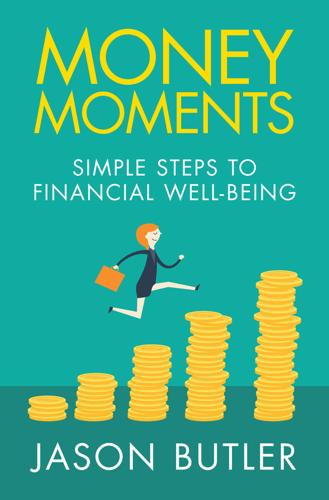
Money Moments: Simple Steps to Financial Well-Being
by
Jason Butler
Published 22 Nov 2017
Oxford: Oxford University Press. 31Clarke, Andrew E. 2010. “Work, Jobs, and Well-Being across the Millennium.” In Ed Diener, John F. Helliwell and Daniel Kahnerman, eds, International Differences in Well-Being, 436-468. Oxford: Oxford University Press. 32City & Guilds. 2012. http://www.cityandguilds.com/news/November-2012/careers-happiness-index-2012#.WYtwM3eGOYU (accessed 9.08.17). 33Goldstein, Robin, et al, “Do more expensive wines taste better? Evidence from a large sample of blind tasting.” American Association of Wine Economists, Working paper No. 16, April 2008 https://timedotcom.files.wordpress.com/2015/05/aawe_wp16.pdf (accessed 27.10.17) 34Plassmann, H, J.
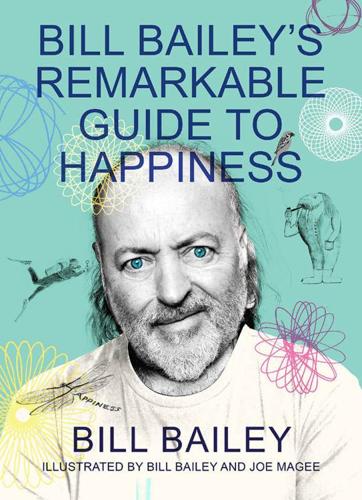
Bill Bailey's Remarkable Guide to Happiness: THE FEELGOOD BOOK OF THE YEAR
by
Bill Bailey
Published 14 Oct 2020
Away from our video calling and remote communication, our physical worlds have shrunk down to a few households in the immediate vicinity, and the people in our neighbourhood feel more like family. We have run a few errands and done some shopping for our neighbours, and likewise others have helped us out in all kinds of ways. It seems only right that it is on these small acts that a country’s happiness index can be gauged. But I think reliance goes beyond what is in the UN’s report. It specifies that having someone to rely on elicits happiness. I would say that’s true; it gives you a sense of relief, and a reassurance that someone has your back. But I would suggest from my own experience that it works both ways.
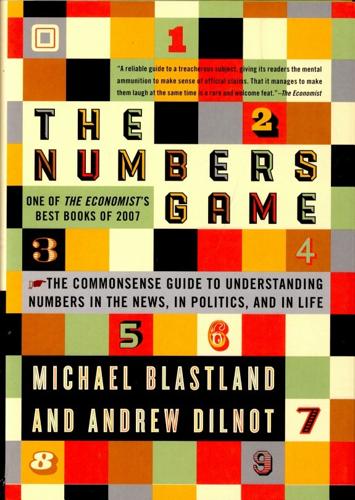
The Numbers Game: The Commonsense Guide to Understanding Numbers in the News,in Politics, and inLife
by
Michael Blastland
and
Andrew Dilnot
Published 26 Dec 2008
It was judged incorrect in temperate countries, correct in very cold countries (where putting in “more windows” was assumed to mean more layers of glazing—triple-glazing is common), and a stupid question in very hot countries (why would you want to stop heat from escaping from a building?). International rankings are proliferating. We can now read how the United States compares with other countries on quality of governance, business climate, health, education, transport, and innovation, to name a few, as well as more frivolous surveys like an international happiness index—”the world grump league,” as one tabloid reported it. “Welcome,” says Christopher Hood from Oxford University, who leads a research project into international comparisons, “to Ranking World.” The number of international governance rankings, he says, has roughly doubled every decade since the 1960s.
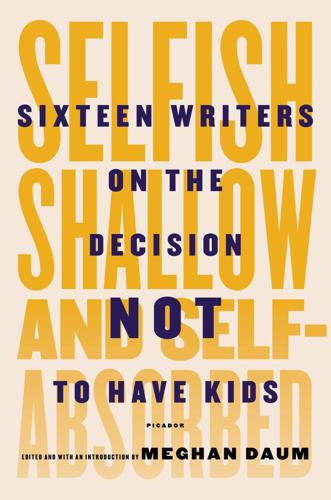
Selfish, Shallow, and Self-Absorbed: Sixteen Writers on the Decision Not to Have Kids
by
Meghan Daum
Published 29 Mar 2015
However rewarding at times, raising children can also be hard, trying, and dull, inevitably ensnaring us in those sucker values of self-sacrifice and duty. The odds of children making you happier are surely no better than fifty-fifty. Studies have repeatedly documented that the self-reported “happiness” index is lower among parents than among the childless. Little wonder that so many women like me have taken a hard look at all those diapers, playgroups, and nasty plastic toys and said no, thanks. To illustrate my existential explanation for the knee-high birthrate among women of European extraction like me, let’s look at three other examples, and why they haven’t had children.
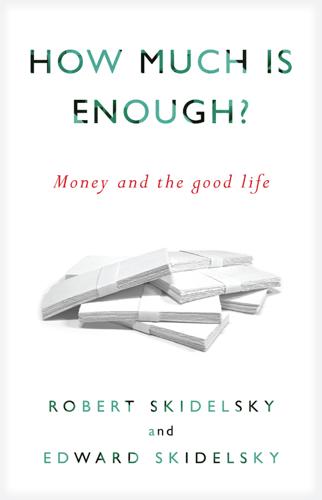
How Much Is Enough?: Money and the Good Life
by
Robert Skidelsky
and
Edward Skidelsky
Published 18 Jun 2012
Sport England, Trends in Sport Participation 1987–2002 (London: Sport England, 2002); Fidelis Ifedi, Sport Participation in Canada (Ottawa: Statistics Canada, 2005); Robert Putnam, Bowling Alone: The Collapse and Revival of American Community (London: Simon X Schuster, 2000), p. 113. 54. Dale Southerton et al., Trajectories of Time Spent Reading as a Primary Activity: A Comparison of the Netherlands, Norway, France, UK and USA since the 1970s, CRESC Working Paper 39 (www.cresc.ac.uk/sites/default/files/wp39.pdf; accessed January 12, 2012). 55. See Randeep Ramesh, “Happiness index planned to influence government policy,” Guardian, July 25, 2011. CHAPTER 7. EXITS FROM THE RAT RACE 1. Adam Lent and Mathew Lockwood, Creative Destruction: Placing Innovation at the Heart of Progressive Economics (London: Institute for Public Policy Research, 2010). 2. Adair Turner, Economics after the Crisis: Objectives and Means, Lecture 3: Economic Freedom and Public Policy: Economics as a Moral Discipline, Lionel Robbins Memorial Lecture (http://www2.lse.ac.uk/publicEvents/pdf/20101013%20Adair%20Turner%20transcript.pdf; accessed January 12, 2012). 3.
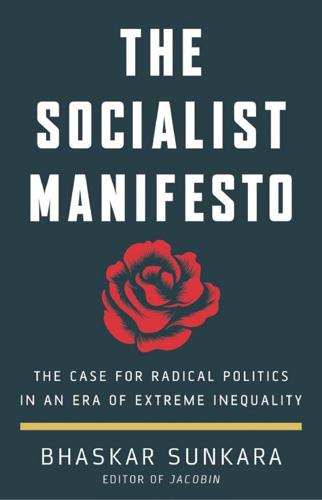
The Socialist Manifesto: The Case for Radical Politics in an Era of Extreme Inequality
by
Bhaskar Sunkara
Published 1 Feb 2019
With more decisions in the hands of ordinary people, civil life is full of political debate and new ideas. Even distributional questions are still not settled: a center-right party advocates for more market incentives and a reduction in the basic income; a center-left party questions traditional metrics of growth, proposing a happiness index instead; an internationalist left calls for more vigorous support for the workers’ movement abroad and more extensive democratic planning at home. And yes, there is a Right calling for the restoration of capitalism, but its support diminishes over time, much like monarchism slowly lost supporters in the nineteenth and twentieth centuries.

Fodor's Dordogne & the Best of Southwest France With Paris
by
Fodor's Travel Publications Inc.
Published 18 Apr 2011
Experts credited France for its long-term formula of economic fairness, with a less-pronounced gap between rich and poor than in other countries. Education is inexpensive; and the health care system, often called the world’s best, is available to all. President Sarkozy even floated the idea, however briefly, of adopting a happiness index to replace traditional measures of progress, taking into account quality of life factors. UNDER SIEGE: THE FRENCH CAFÉ The 2007 anti-smoking law came as a breath of fresh air in France, making meals in cheek-to-jowl bistros far more enjoyable for those who prefer their foie gras without their neighbor’s Gaulois an accompaniment.
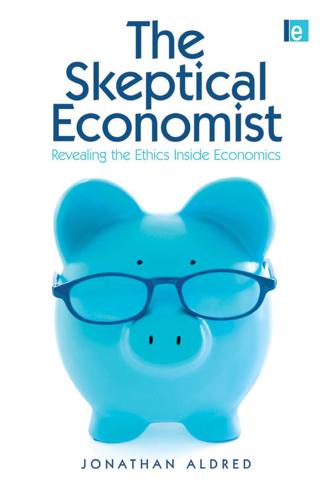
The Skeptical Economist: Revealing the Ethics Inside Economics
by
Jonathan Aldred
Published 1 Jan 2009
The hybrid theories escape these problems because our basic needs (or our perfect preferences) for income are quite similar, so the very poor warrant increased resources even while they are accustomed to their circumstances. Second, there is the problem of ‘interpersonal comparability’ mentioned in Chapter 3. Happiness economics assumes, roughly, that a two-point improvement in my happiness index is equivalent to a two-point improvement in yours, so that even if a policy involves both winners and losers, we can calculate the overall effect on happiness. But many philosophers have long argued we cannot perform these interpersonal comparisons without getting inside another’s head, experiencing feelings as others do - and this is impossible.

Making the Modern World: Materials and Dematerialization
by
Vaclav Smil
Published 16 Dec 2013
Germany, Europe's richest large economy, impresses with its material affluence and consumption of nonessentials: its private homes look substantial and well maintained, Germans drive their heavy Audis, BMWs, and Mercedes without speed limit on Autobahnen (a deliberately and extraordinarily wasteful activity), and they fly more frequently to distant locales than any other Europeans. But Germans rank 43rd on the global Happy Index (Helliwell and Wang, 2012), and they are actually less satisfied with their lives than people in Colombia, the Philippines, or even Rwanda, who enjoy a small fraction of German affluence. Similarly, Asia's richest major economy has left behind any Buddhist simplicity in its post-World War II dash toward affluence: Japan's housing is a cramped affair, but those small houses and apartments are stuffed with an enormous variety of products, Japan's roads are clogged with vehicles, the Japanese enjoy the world's best functioning public transportation infrastructure and are indefatigable travelers to foreign lands – and yet, according to White's index, they are the least satisfied population in the affluent world (ranking 90th), behind dozens of poor countries including Papua New Guinea and Uzbekistan.

Exponential: How Accelerating Technology Is Leaving Us Behind and What to Do About It
by
Azeem Azhar
Published 6 Sep 2021
These devices scan emails, Slack messages and even facial expressions for hints of a worker’s mood. The Japanese tech giant Hitachi created name tags with sensors, designed to measure who employees speak to and for how long, to track and measure their movements, and to feed the data into the ‘organisational happiness’ index.66 In November 2020, Microsoft updated its Office software – the most widely used of its kind in the world – to include ‘Workplace Productivity’ scores which monitor how employees use everyday apps like Word.67 And as the technology gets more advanced, it gets more invasive. Some factories in China have garnered headlines for introducing brainwave-reading hats to track their workers’ emotions and focus so they can adjust the length of break times to reduce fatigue.68 Increasingly, automated monitoring systems are used even before a worker joins a company, in the recruitment process.
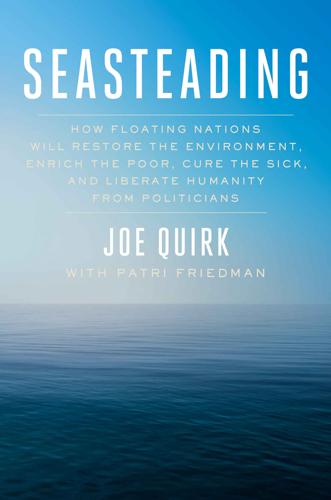
Seasteading: How Floating Nations Will Restore the Environment, Enrich the Poor, Cure the Sick, and Liberate Humanity From Politicians
by
Joe Quirk
and
Patri Friedman
Published 21 Mar 2017
Everyone will have an ocean and a green view, and we’ve already had people reserve spots,” Takeuchi explained to Japan Times. Then he joked, “The president of Shimizu bought the first one.” Shimizu asks us to imagine being residents of Green Float and stepping out of our high-rise apartments. “Summer beaches spread out before your eyes, and the lagoons are teeming with fish and shellfish. Living here raises the happiness index, not economic indexes. New business models are born here. Future businesses that fuse nature and technology will begin.” The project has provoked much skepticism, but it’s hard to argue with the Shimizu Corporation, which makes about $15 billion US each year. When challenged about the 2025 deadline, the company confirms it is committed.
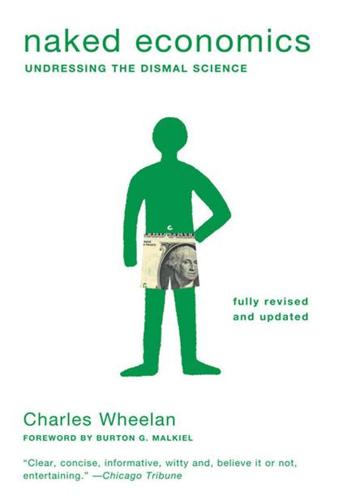
Naked Economics: Undressing the Dismal Science (Fully Revised and Updated)
by
Charles Wheelan
Published 18 Apr 2010
New York Times, May 19, 2001. 6. Daniel Kahneman, Alan B. Krueger, David Schkade, Norbert Schwarz, and Arthur Stone, “Toward National Well-Being Accounts,” American Economic Review, vol. 94, no. 2 (May 2004). 7. “Economics Discovers Its Feelings,” The Economist, December 23, 2006. 8. Alexander Stille, “A Happiness Index with a Long Reach: Beyond GNP to Subtler Measures,” New York Times, May 20, 2000, p. A17. 9. Edward Hadas and Richard Beales, “Sarkozy Imagines: No GDP,” Wall Street Journal, January 10, 2008; David Jolly, “G.D.P. Seen as Inadequate Measure of Economic Health,” New York Times, September 15, 2009. 10.

Greater: Britain After the Storm
by
Penny Mordaunt
and
Chris Lewis
Published 19 May 2021
In 2019, the US-based Commonwealth Fund, a respected global health think tank, ranked the British health system as the best of eleven other wealthy countries.12 In the past twenty years, British life expectancy has increased another three years.13 Like many other countries, the British are living longer, healthier, wealthier lives than ever before, and the Happiness Index is on the rise, too.14 Yet there remains a widespread belief that Britain is living in the worst of times, that these storms have brought only bad things. As Steven Pinker and many others have pointed out, this is also untrue: ‘People today live far more years in the pink of health than their ancestors lived altogether, healthy and infirm years combined.’15 The problem is, the facts are no longer enough.

Fodor's Normandy, Brittany & the Best of the North With Paris
by
Fodor's
Published 18 Apr 2011
Experts credited France for its long-term formula of economic fairness, with a less-pronounced gap between rich and poor than in other countries. Education is inexpensive; and the health care system, often called the world’s best, is available to all. President Sarkozy even floated the idea, however briefly, of adopting a happiness index to replace traditional measures of progress, taking into account quality of life factors. Under Siege: The French Café The 2007 anti-smoking law came as a breath of fresh air in France, making meals in cheek-to-jowl bistros far more enjoyable for those who prefer their foie gras without their neighbor’s Gaulois an accompaniment.
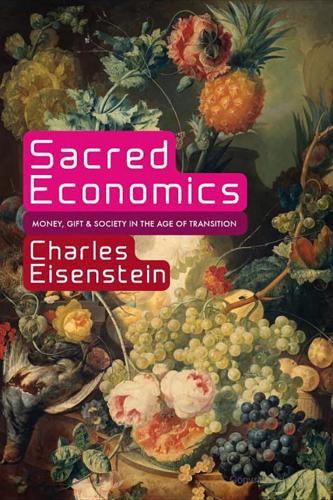
Sacred Economics: Money, Gift, and Society in the Age of Transition
by
Charles Eisenstein
Published 11 Jul 2011
Ultimately, what economics attempts to measure, underneath money, is the totality of all that human beings make and do for each other. That we should even attempt to measure this at all is quite odd. I have already leveled judicious criticism at the fat target of economics’ equation of money with the good. However, alternative measures of economic progress, such as the genuine progress indicator or national happiness index, suffer similar problems on a subtler level. Certainly they are improvements over GDP, for they no longer count such things as prisons and armaments as positive contributors to the good, and they add to economic wellness such things as leisure time. Nonetheless, they still assume that we can and should quantify the good, and that in order to do so, we must convert everything into a standard unit of measure.

Overbooked: The Exploding Business of Travel and Tourism
by
Elizabeth Becker
Published 16 Apr 2013
Tourists opt for vacations on organic European farms, while some add volunteer days at the end of their vacations in Asia to build homes for the poor. Few nations have shown more caution about the tourism industry and its downside than Bhutan. The Himalayan nation that measures progress through its happiness index has purposefully kept the number of tourists low to insure that the country’s culture, environment, faith and economy aren’t perverted by huge influxes of foreign tourists. The government says it limits tourists by regulating how many hotel rooms are available and limiting other tourist “infrastructure” as well as imposing a high tourist tariff.

New York 2140
by
Kim Stanley Robinson
Published 14 Mar 2017
Such as personal bankruptcies, divorces, food bank visits, suicides … It didn’t seem like listing these variables was a good idea at this moment. “Or maybe the Gini index, maybe that’s a kind of cross between the Cost of Living Extremely Well Index and the Misery Index. Or you could go the other way and check the Happiness Index.” “Indexes,” she said dismissively. “Well hey,” I said, feeling defensive. “Don’t you use any?” “I use the volatility indexes,” she admitted. “You kind of have to.” I nodded. “That was one of the inspirations for the IPPI. I like the way it’s trying to describe the future with its number.”